Partnership to End Homelessness Celebrates Four Years of Impact
On October 11th, friends and supporters of the Partnership to End Homelessness gathered at the Festival Center in Northwest DC to commemorate the fourth anniversary of the Partnership to End Homelessness and discuss the progress in the city’s fight to end homelessness.
“We believe that ending homelessness in DC is possible. And it will take all of us working together to accomplish it,” Jennifer Olney, Senior Community Investment Officer with the Partnership to End Homelessness shared. “We have made progress, but we know we have more work to do.”
Since its launch, the Partnership has leveraged and aligned over $18 million in private sector resources. At the same time, advocacy efforts have resulted in over 4,000 permanent supportive housing vouchers to end homelessness for 3,106 individuals and 1,217 families.
The event focused on the Partnership and our community’s collective progress in the work to end homelessness and featured remarks from Theresa Silla, Executive Director of the DC Interagency Council on Homelessness, key philanthropic partners such as Allison McWilliams, Executive Director of the Naomi and Nehemiah Cohen Foundation, and a panel of nonprofit leaders and advocates with lived experience of chronic homelessness.
Christy Respress, President of Pathways to Housing DC, has worked with individuals experiencing chronic homelessness since the ‘90s and has long been a champion of the “Housing First” approach adopted by the DC Government – a model that prioritizes permanent housing for individuals and families, which creates a platform for pursuing other goals.
“Housing First is a proven model,” Respress explained. “We know it works. Now we just need to get the resources and hold ourselves accountable to get things done.”
“We know we can end homelessness because we have made so much progress reaching families experiencing homelessness,” Silla shared. “What we need now is to apply that same thinking to our single adult population – and our unaccompanied youth – and invest in new resources to meet their specific needs.”
Attendees also heard from Rachelle Ellison, Assistant Director, and Robert Warren, Director, at the People for Fairness Coalition.
Rachelle Ellison (Assistant Director) and Robert Warren (Director) at the People for Fairness Coalition
“I was homeless for 17 years before the Housing First initiative model helped me,” Ellison shared.
“Once you have that housing, you have the foundation – you can do anything you want to do.”
Ellison and Warren pointed out that while housing is by far the most critical (and costly) need, there are a host of other supports needed that help people stay in housing, such as access to healthcare and addiction recovery treatment, and access to case workers and service providers. Strengthening case management and service provider capacity has been a key focus for the Partnership for the past two years. Part of this work included helping permanent supportive housing (PSH) providers access new Medicaid funding that increases our community’s resources to invest in critical supportive services.
They also shared the importance in leading with lived experience and giving advocates who have previously or are currently experiencing homelessness a seat at the table with funders and government partners so they can better advocate for themselves and the needs of their community.
“We are so grateful for private sector funding that has given Rachelle and I a chance to advocate for change,” Warren shared. “Now we need your continued support so more can join us.”
“I know you see Rachelle and I sitting here; my hope is that you can see every unhoused member of the Washington DC community as well.”

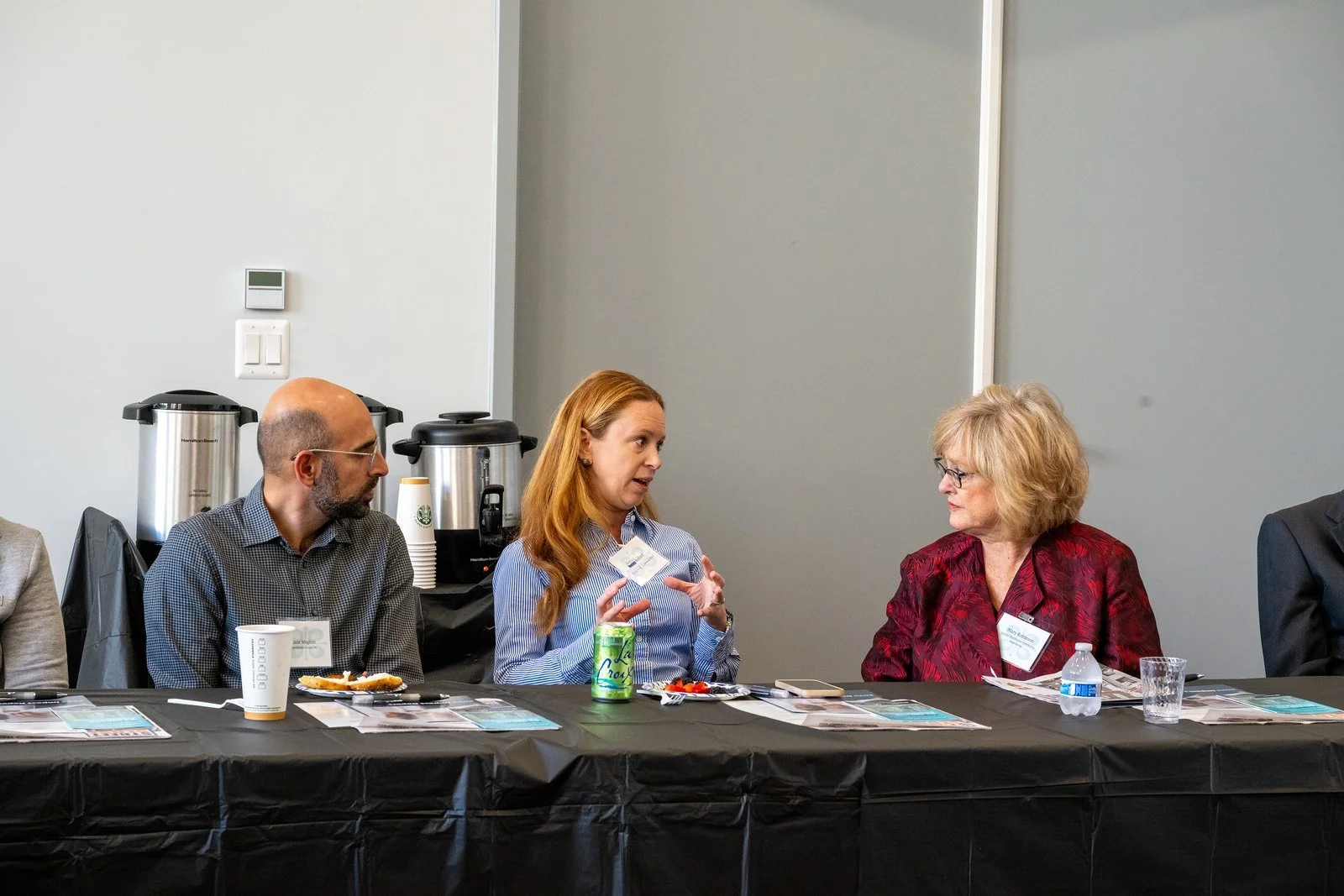
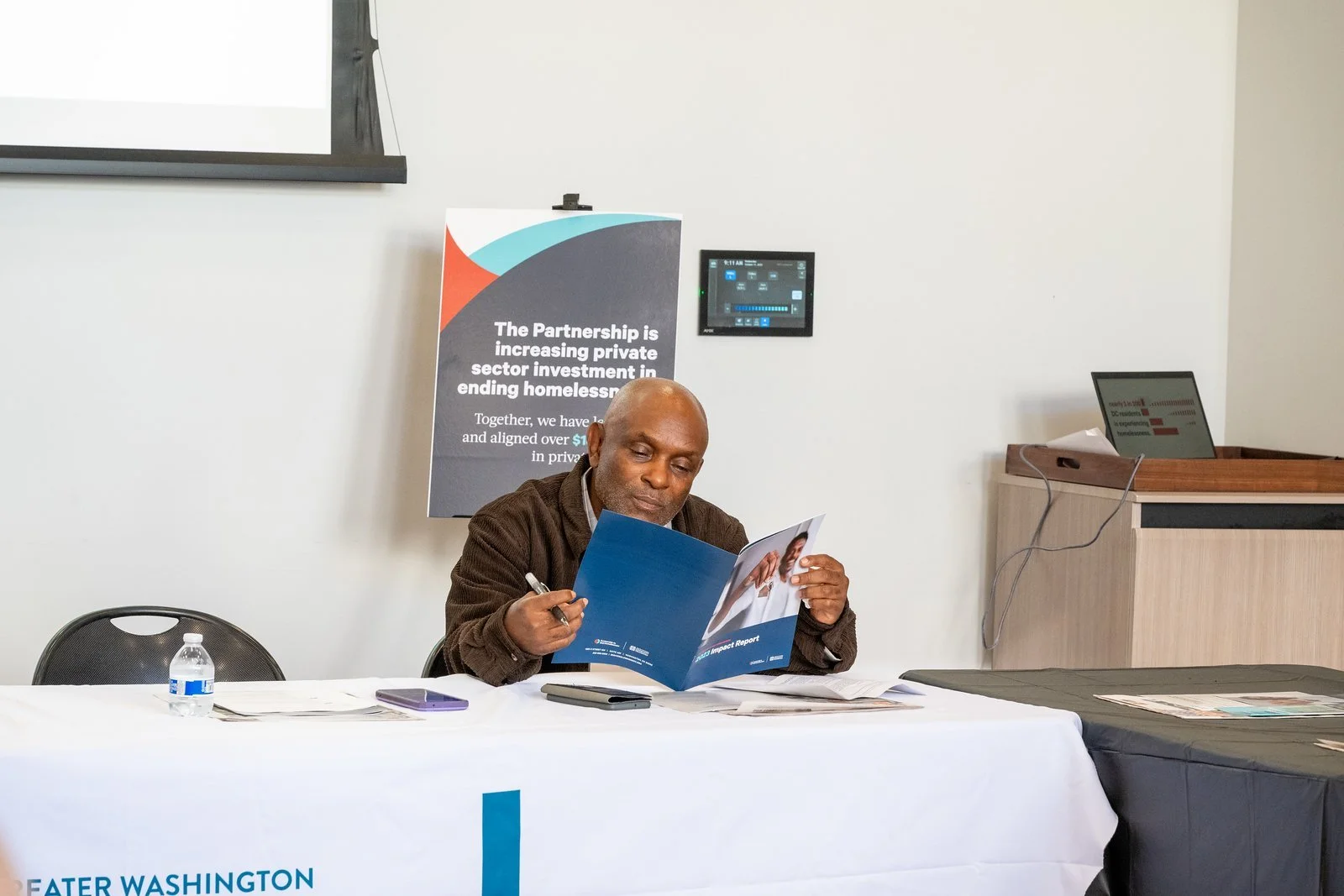
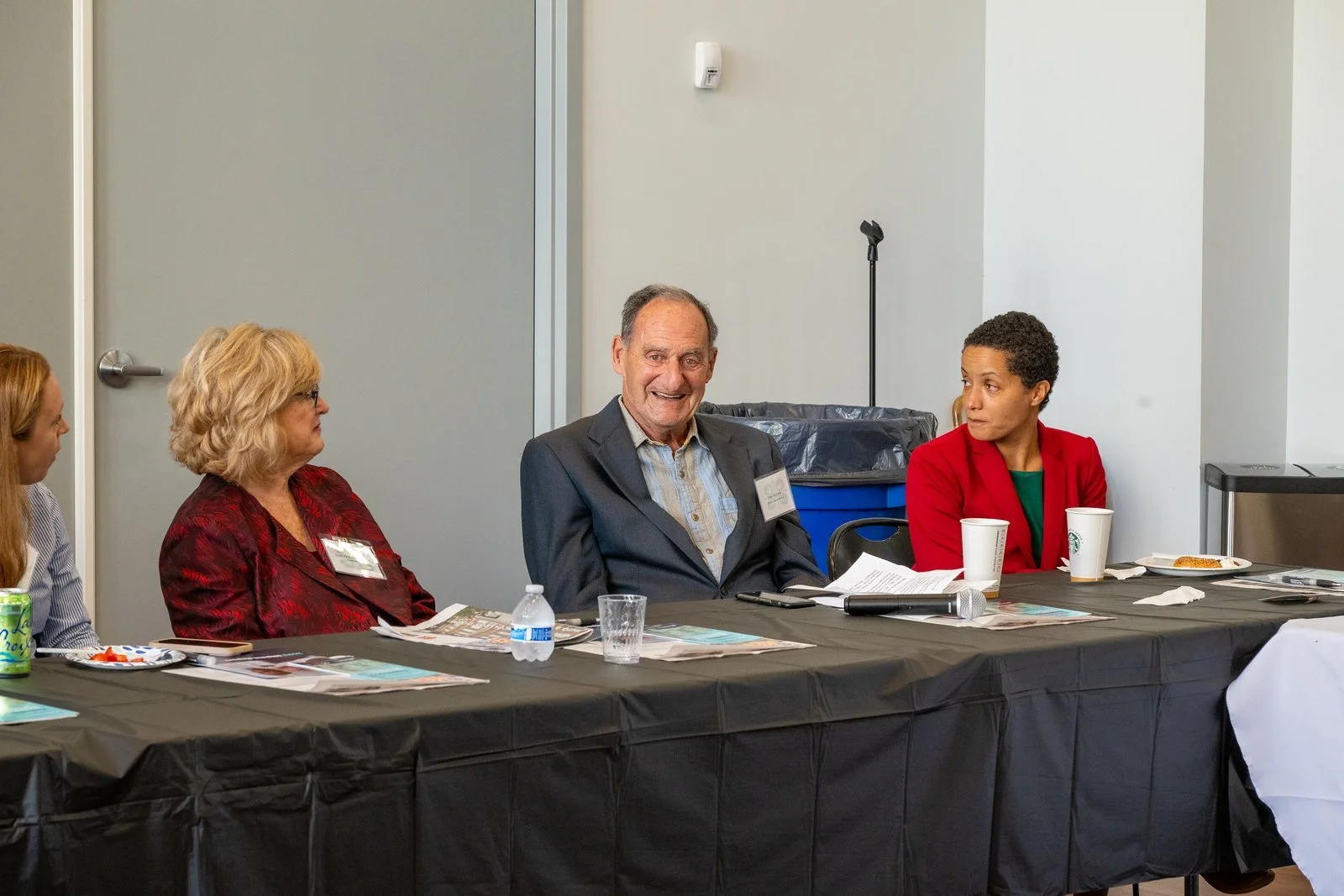
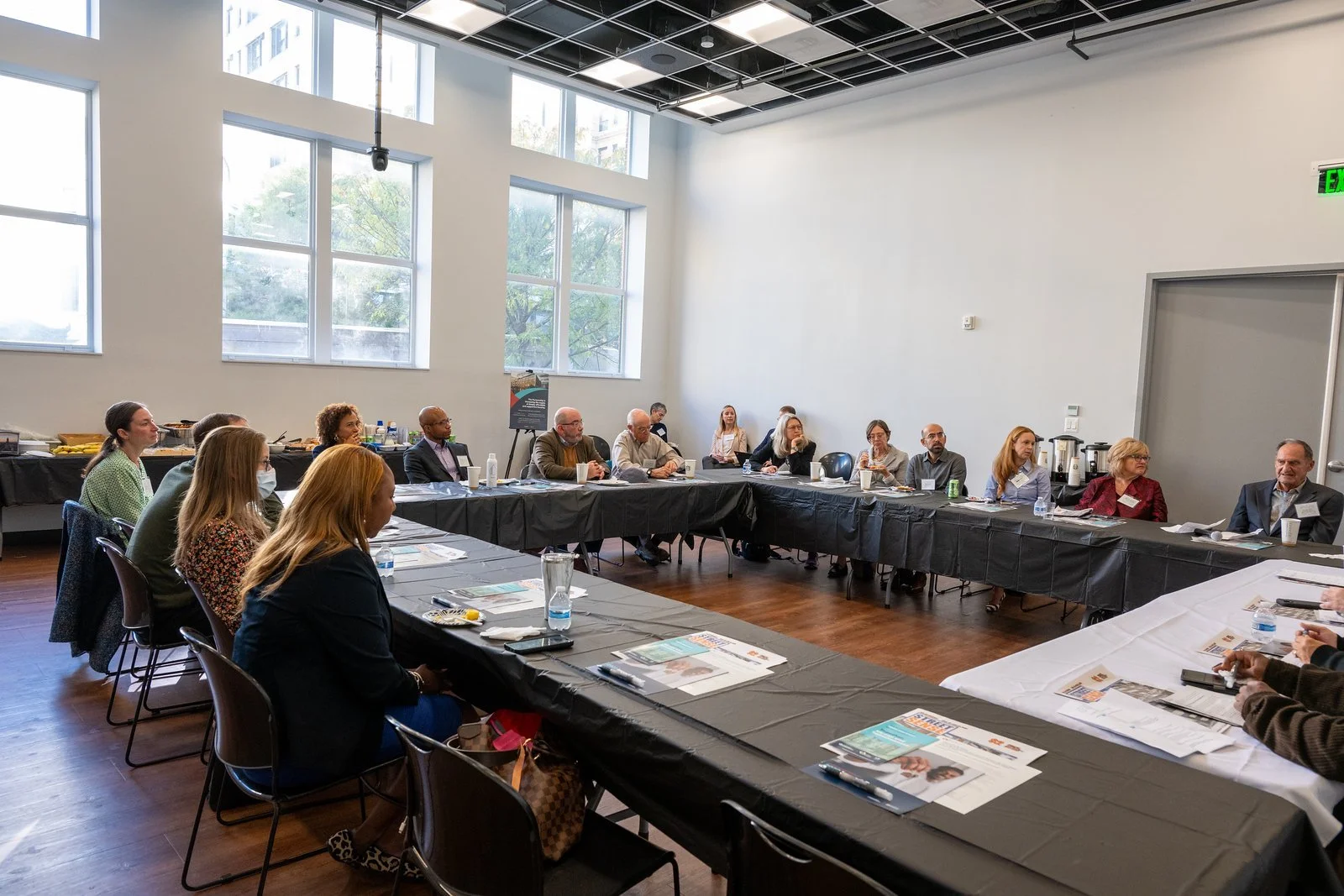
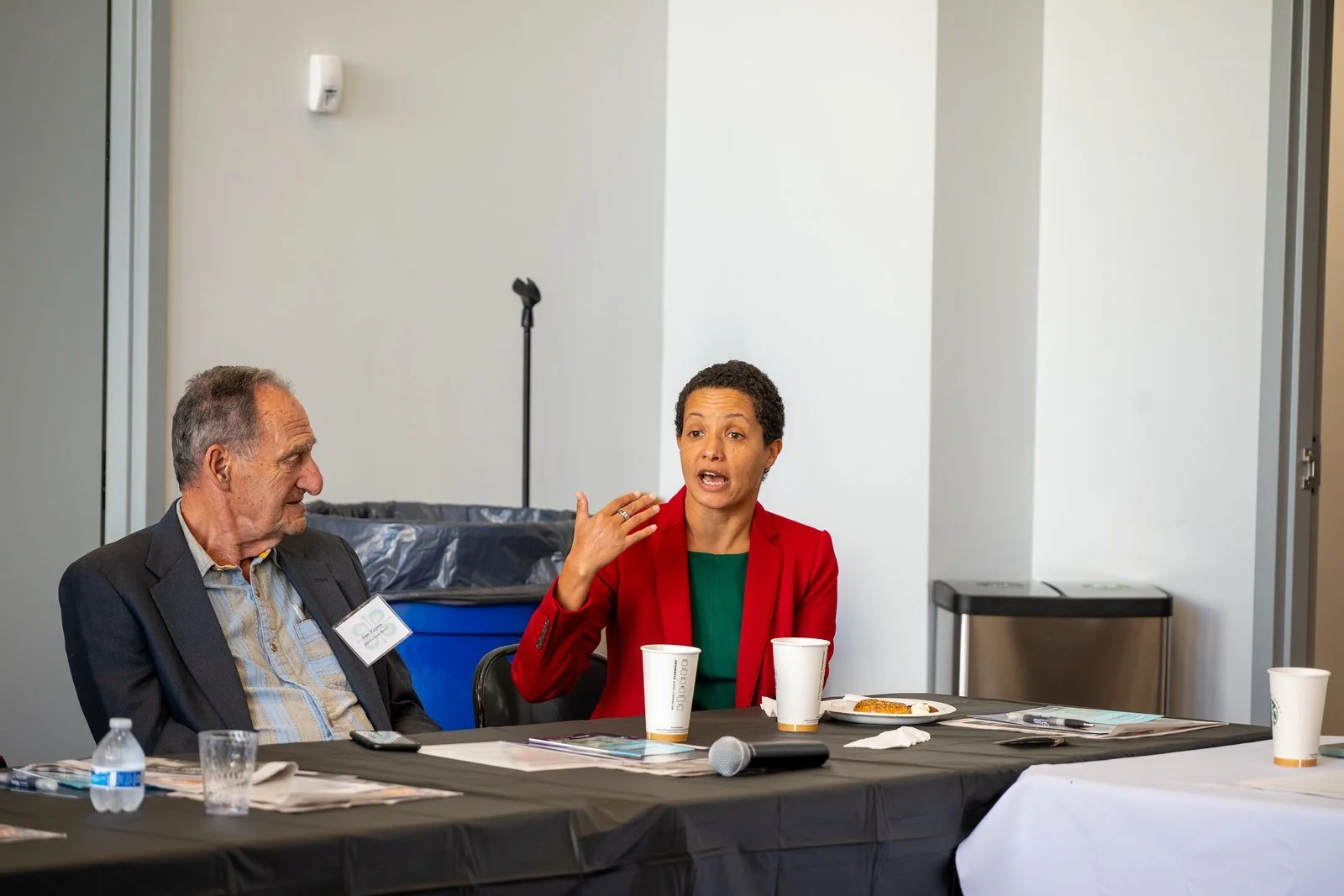
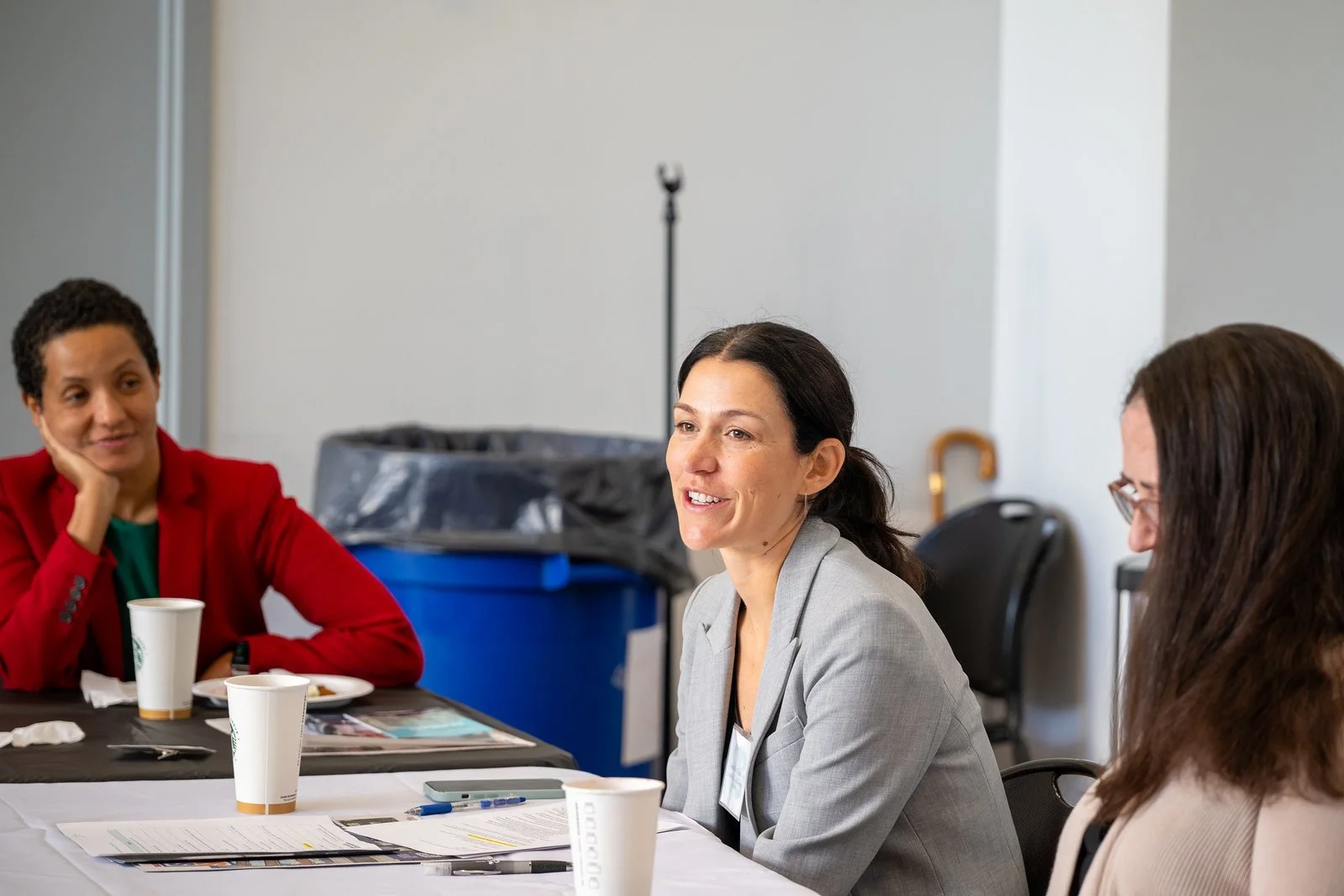

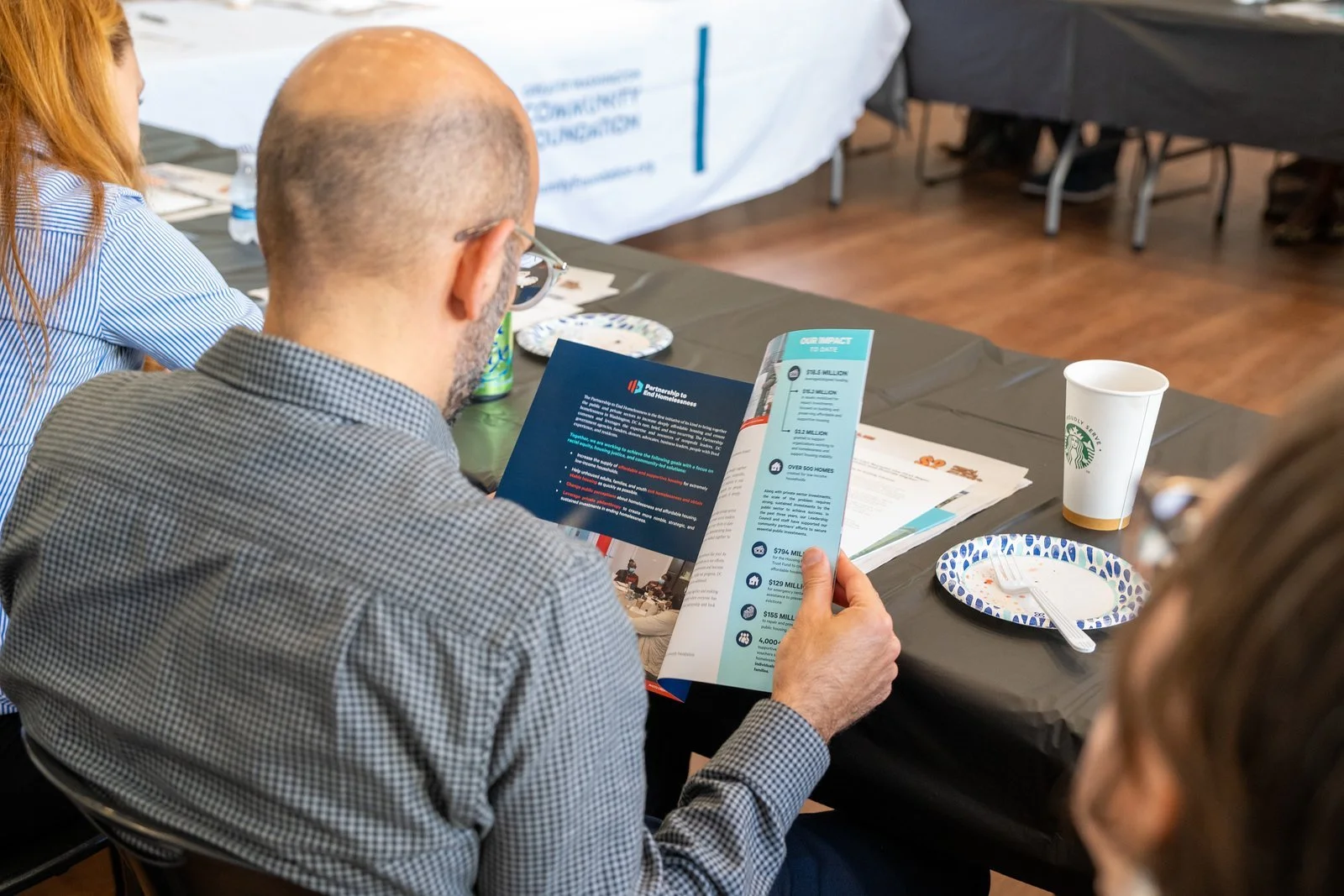
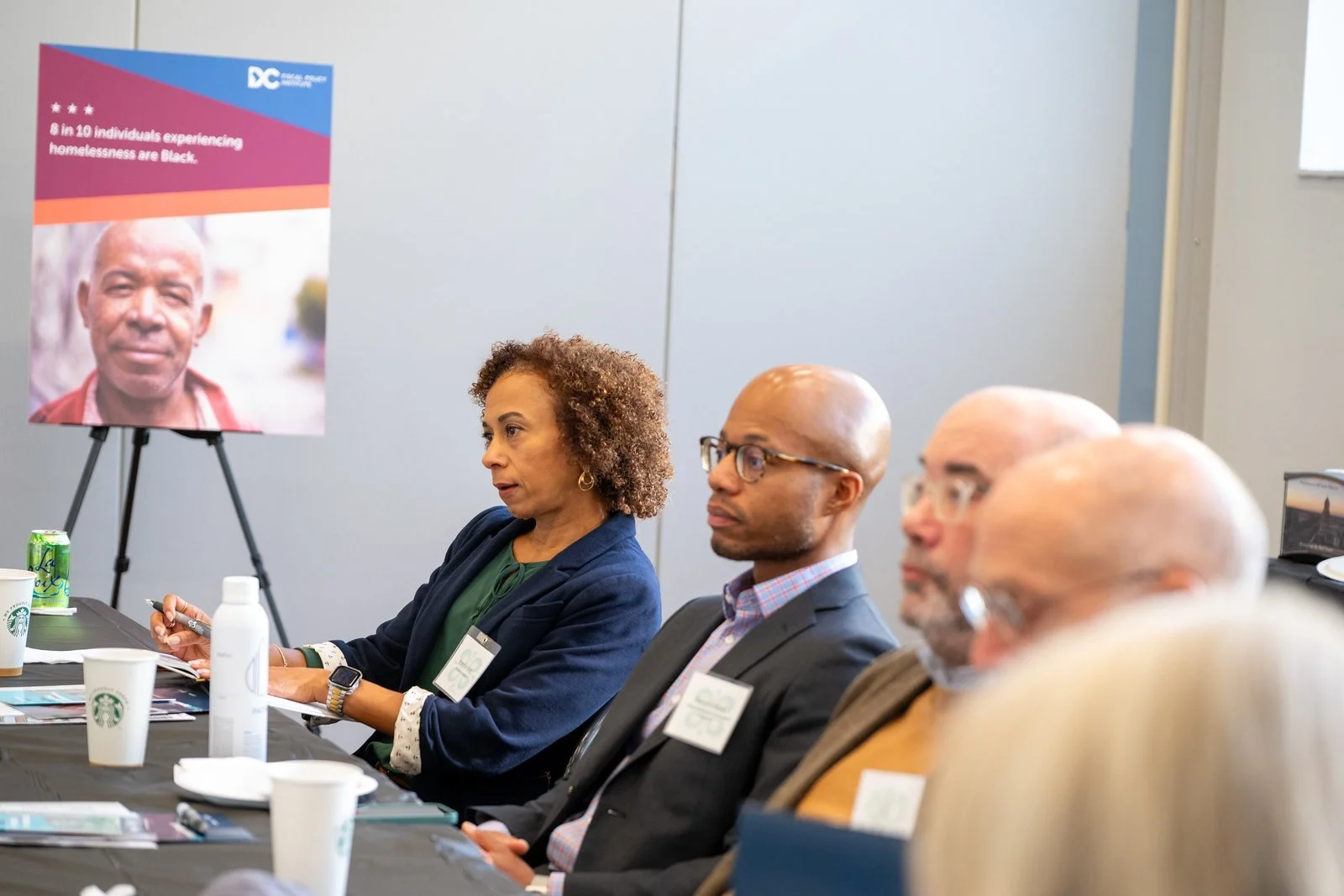
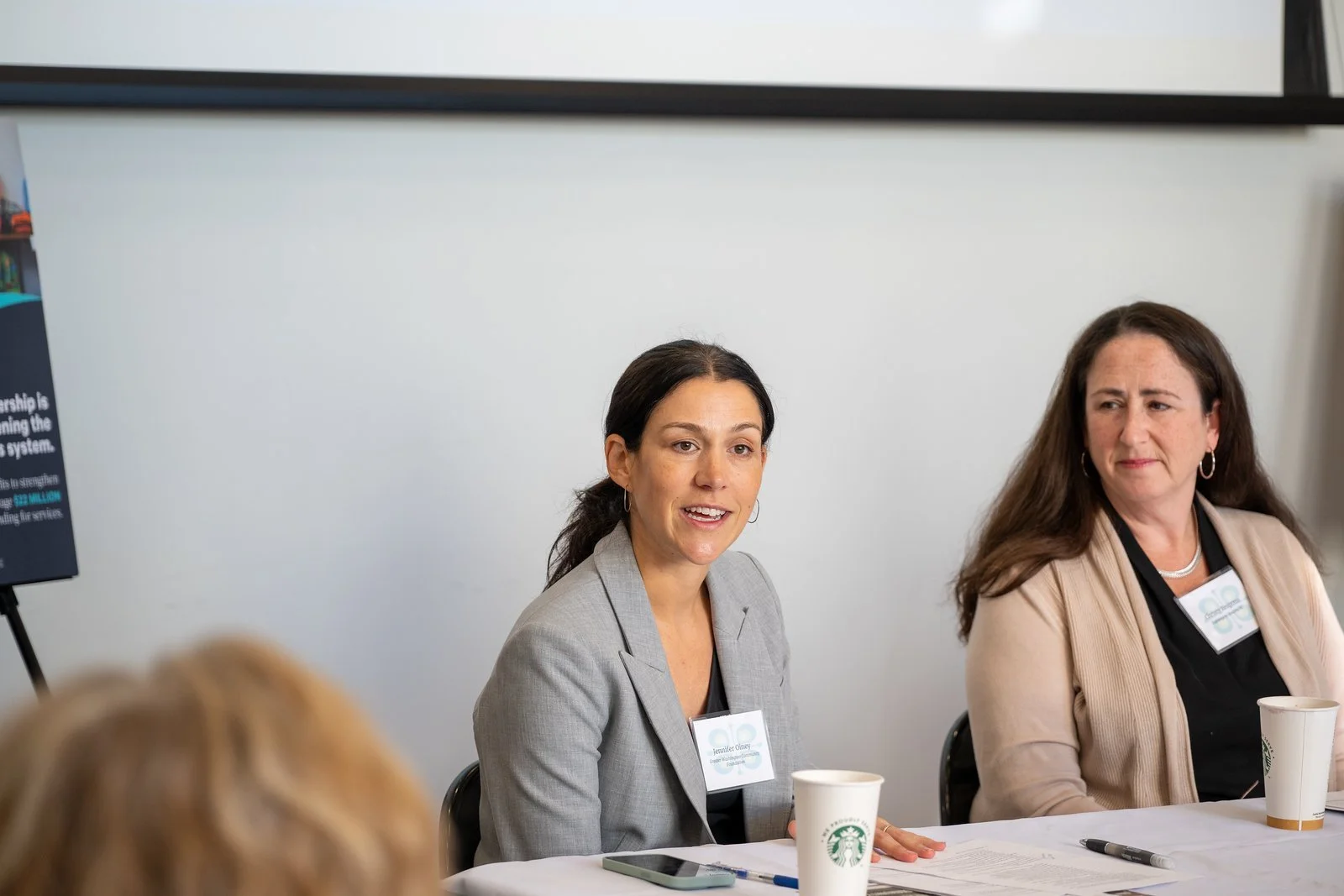
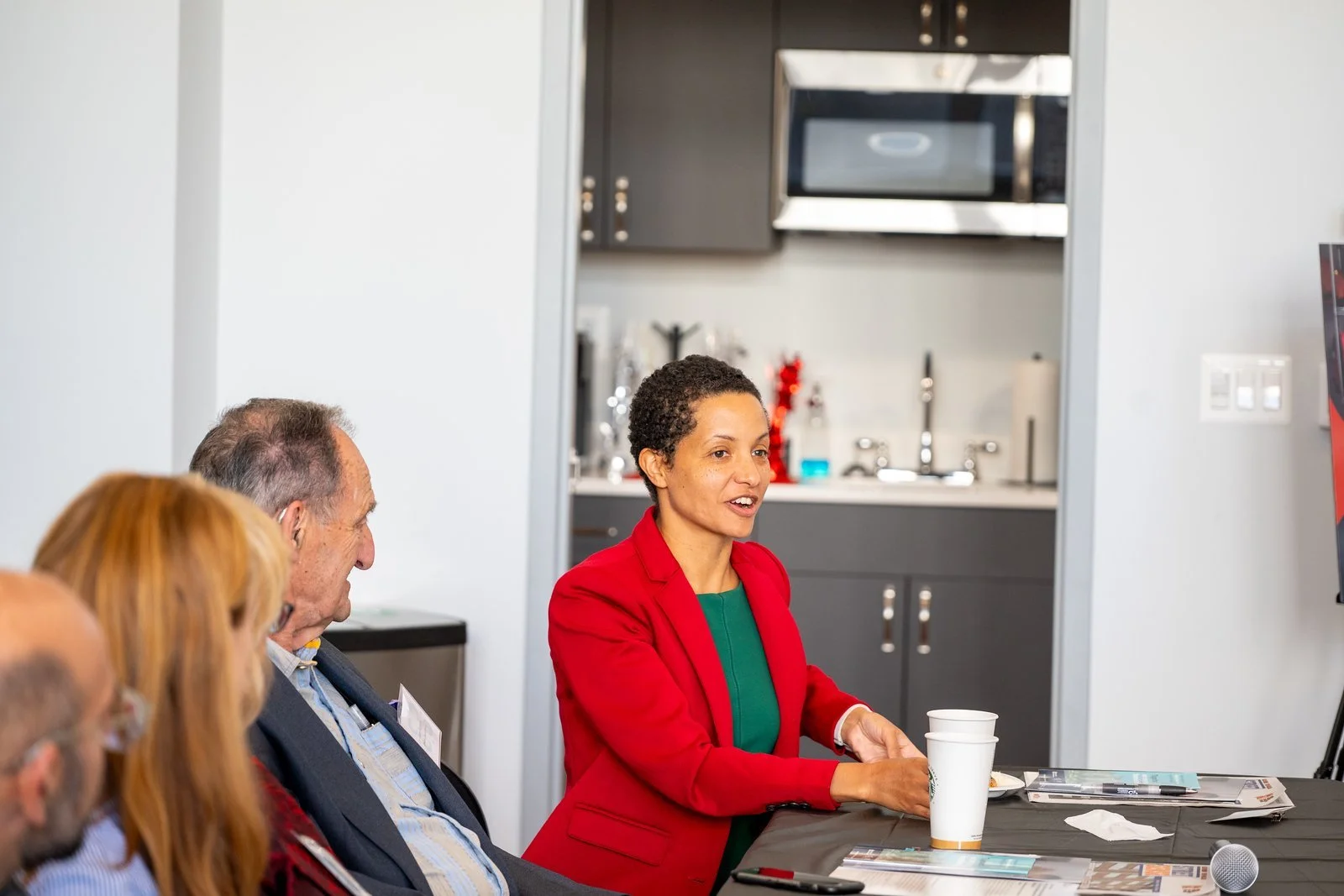
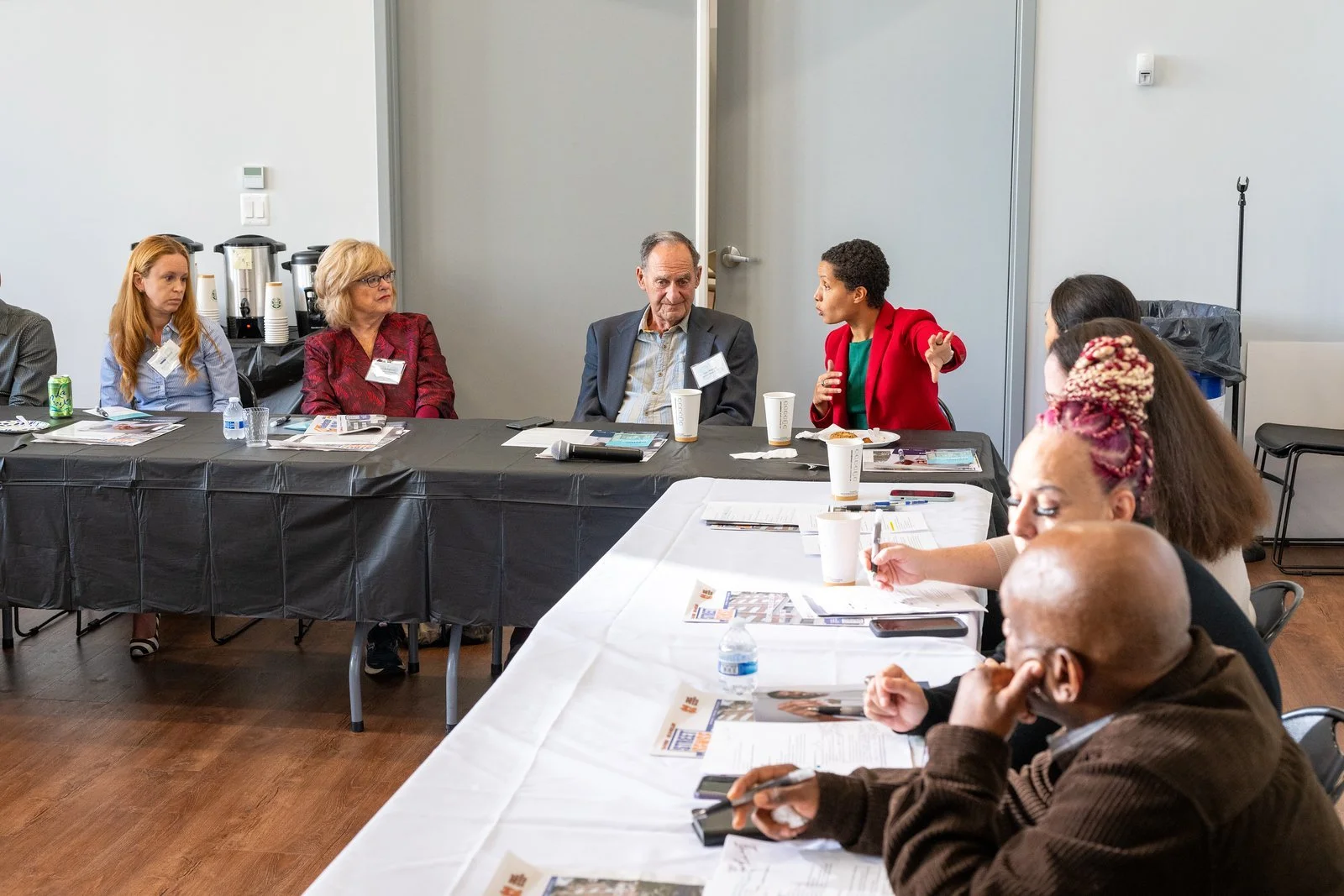
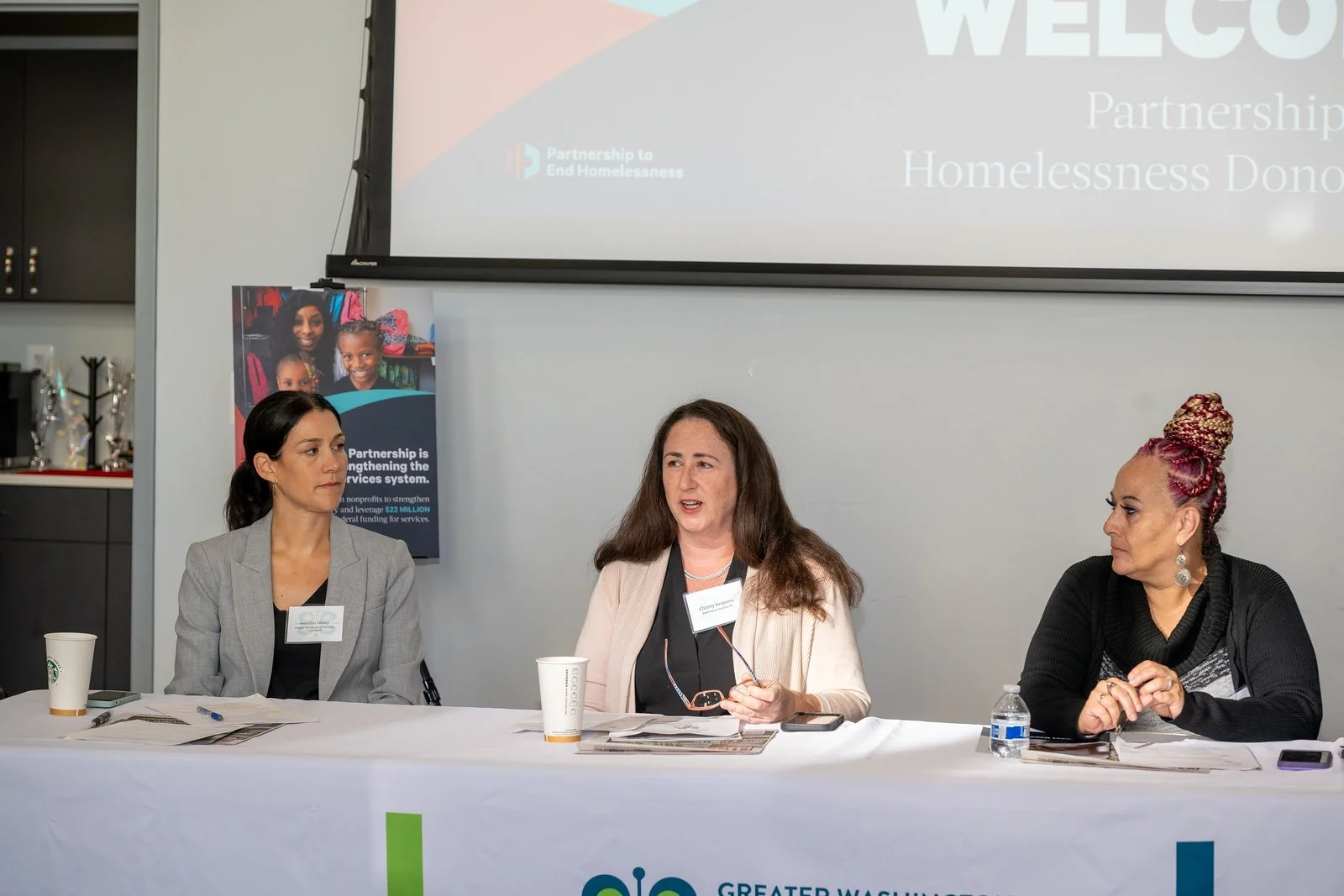
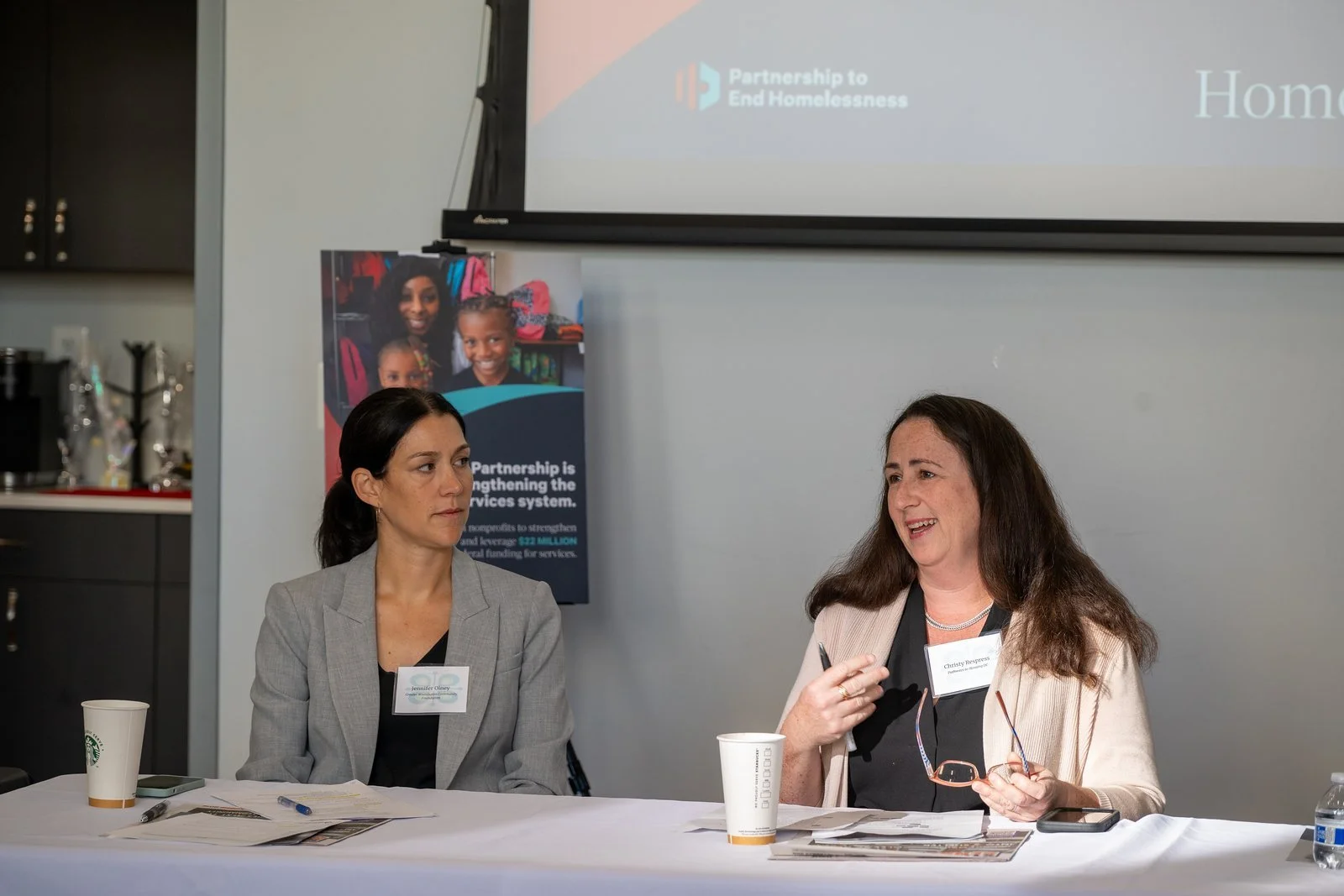
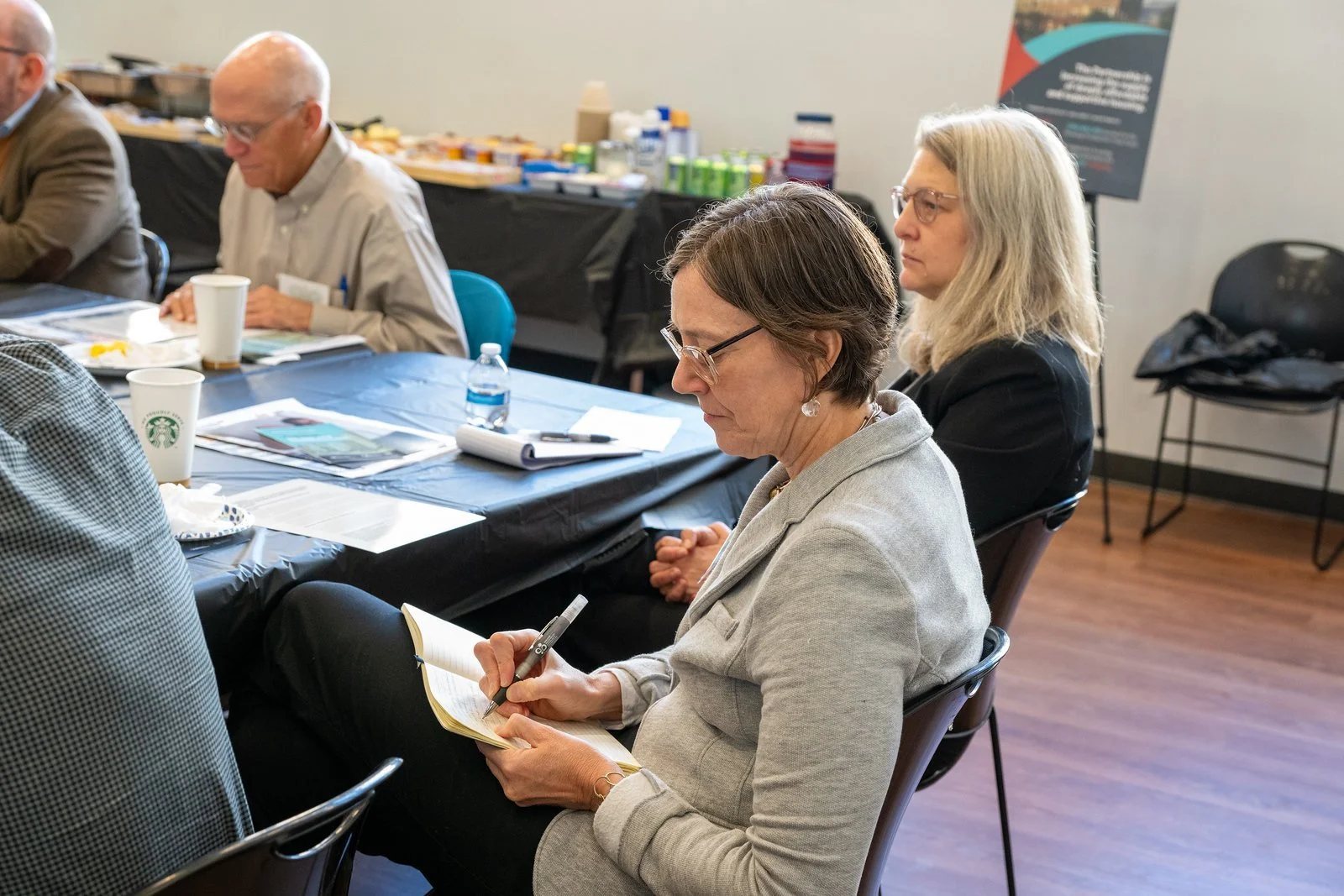
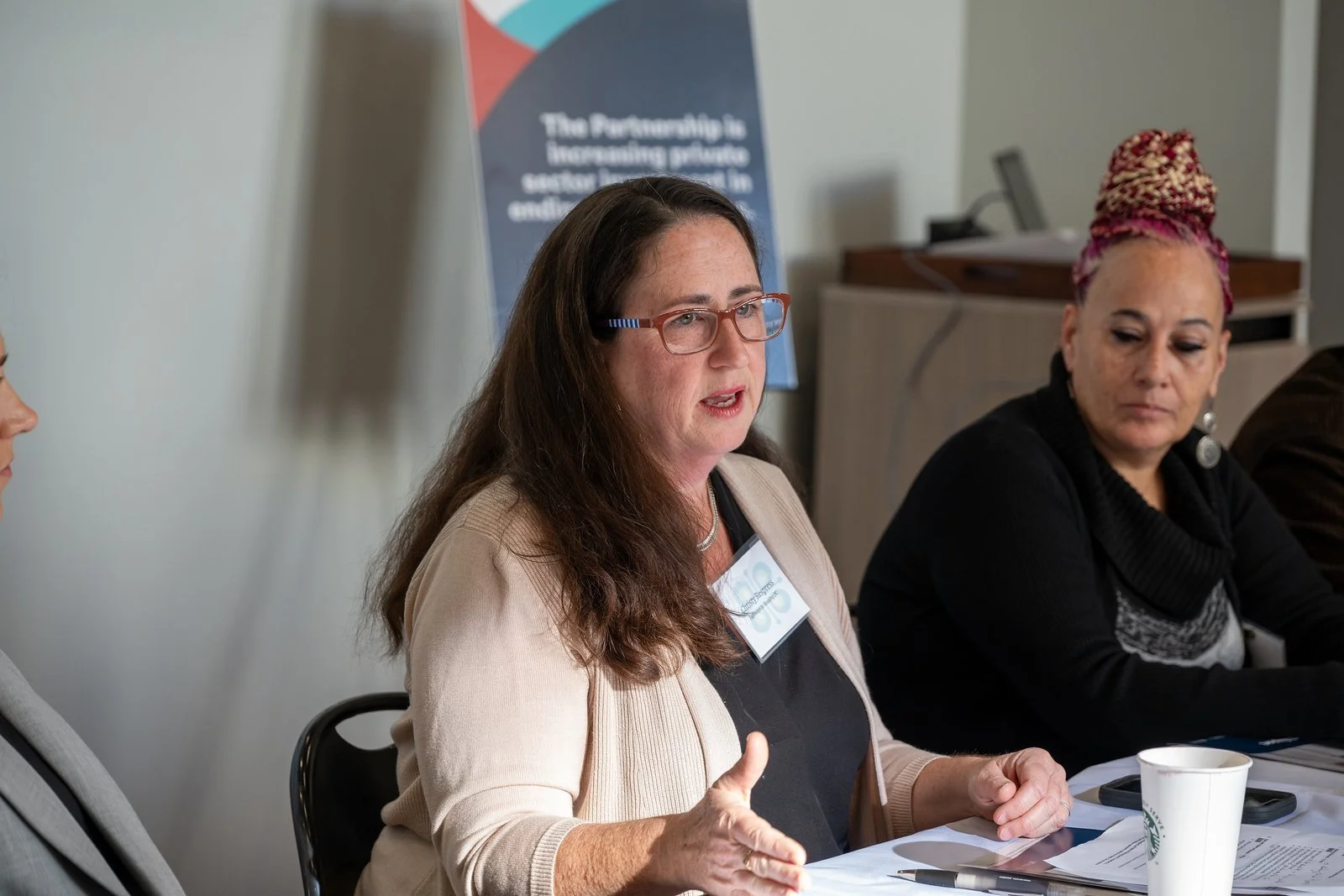

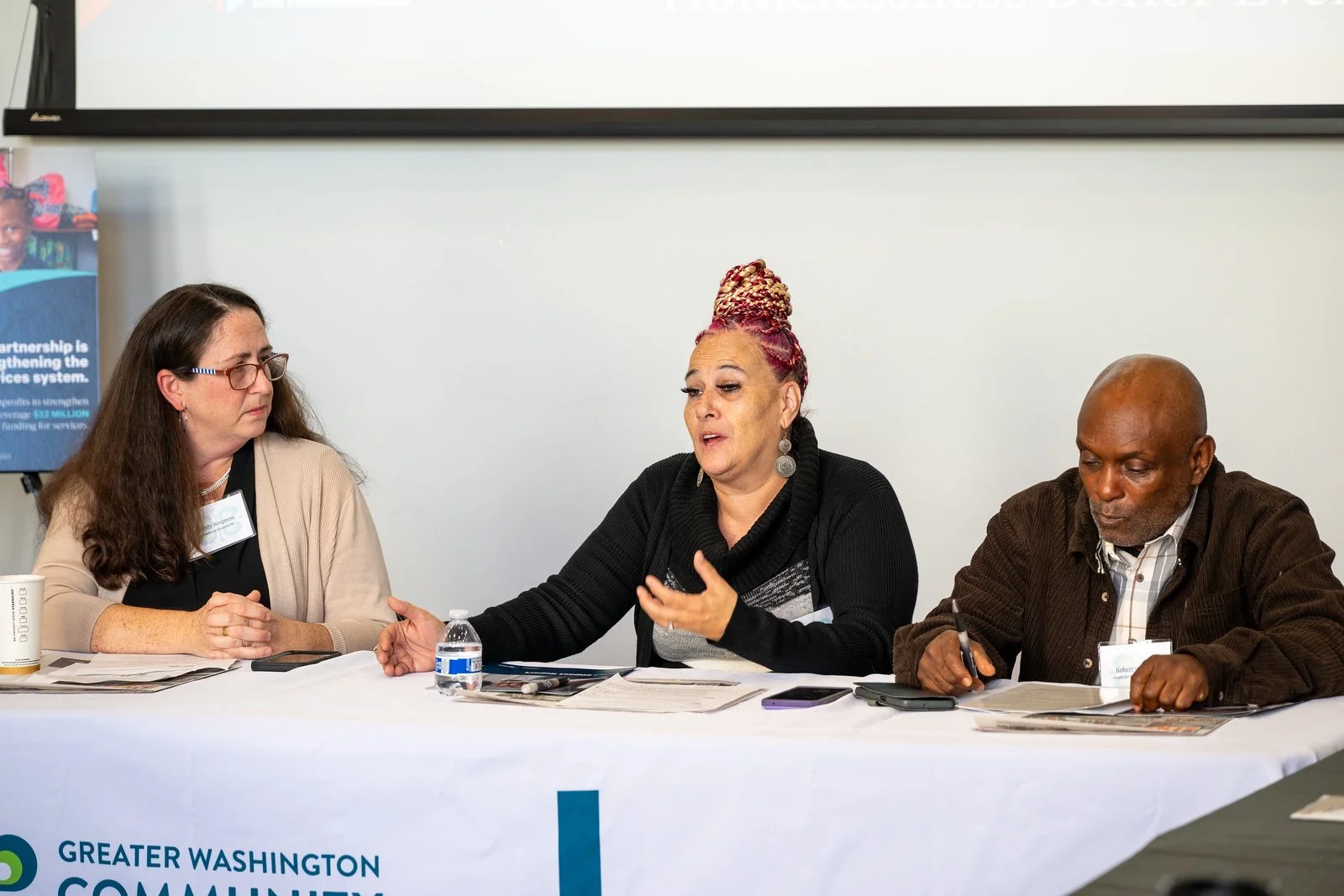
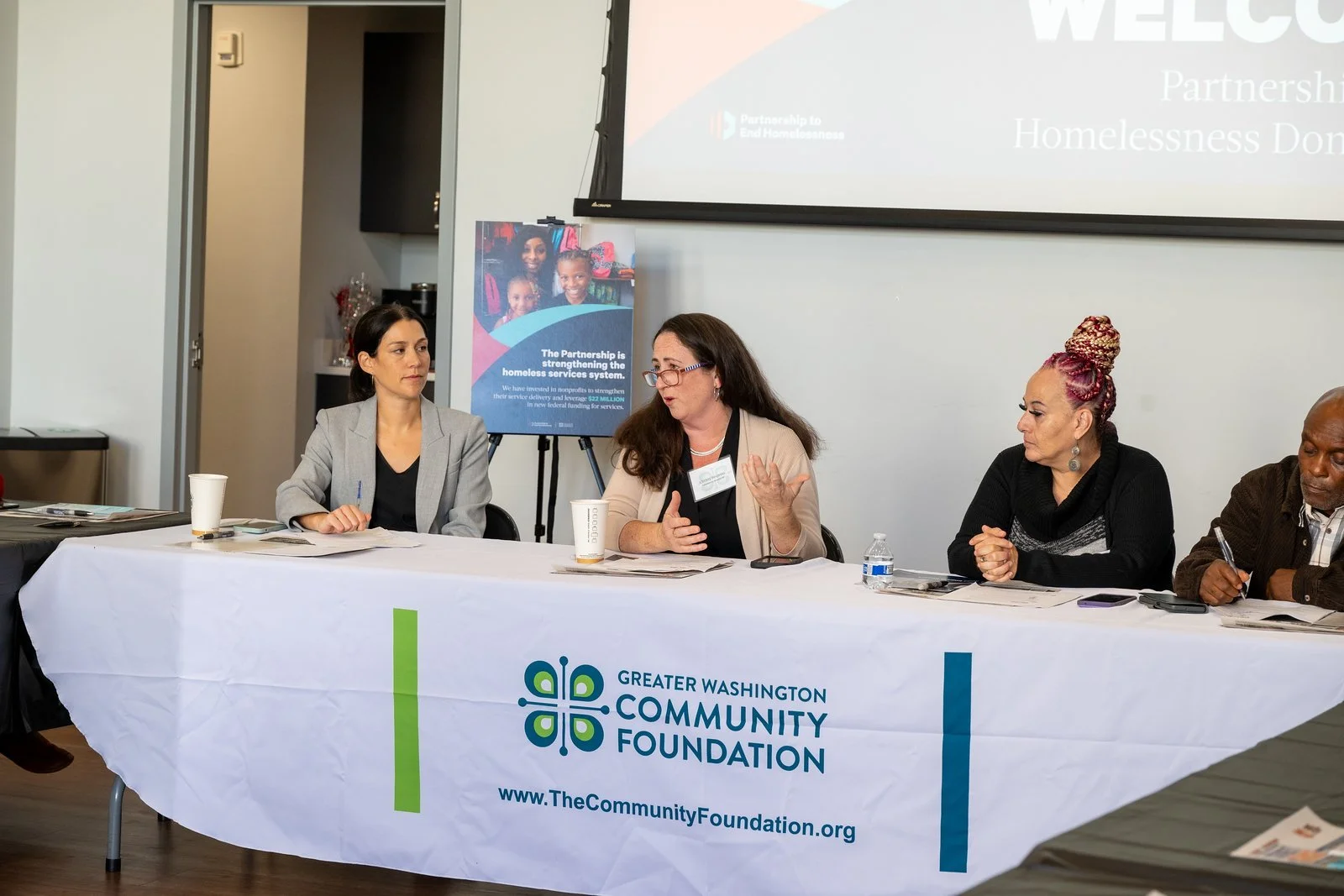
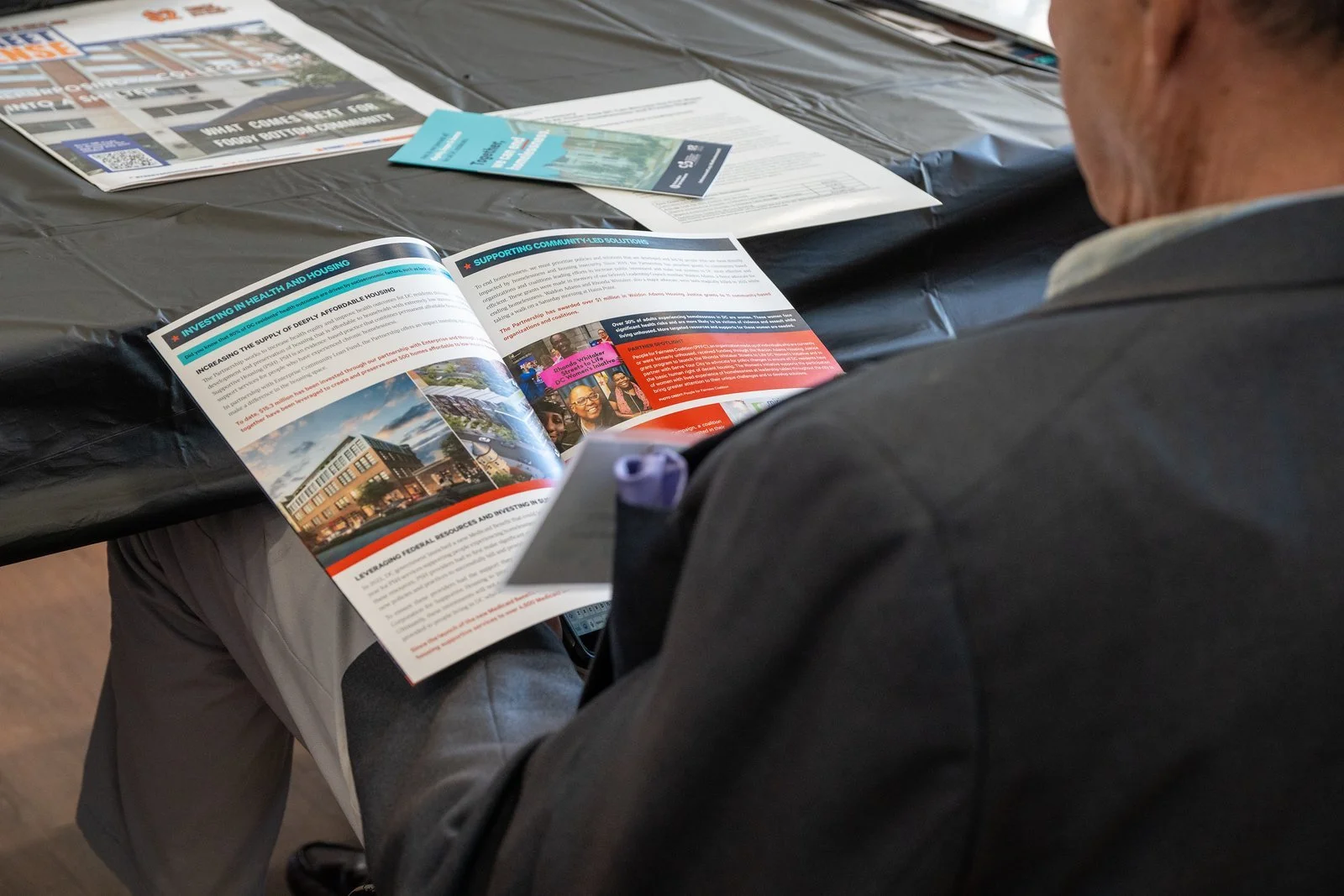
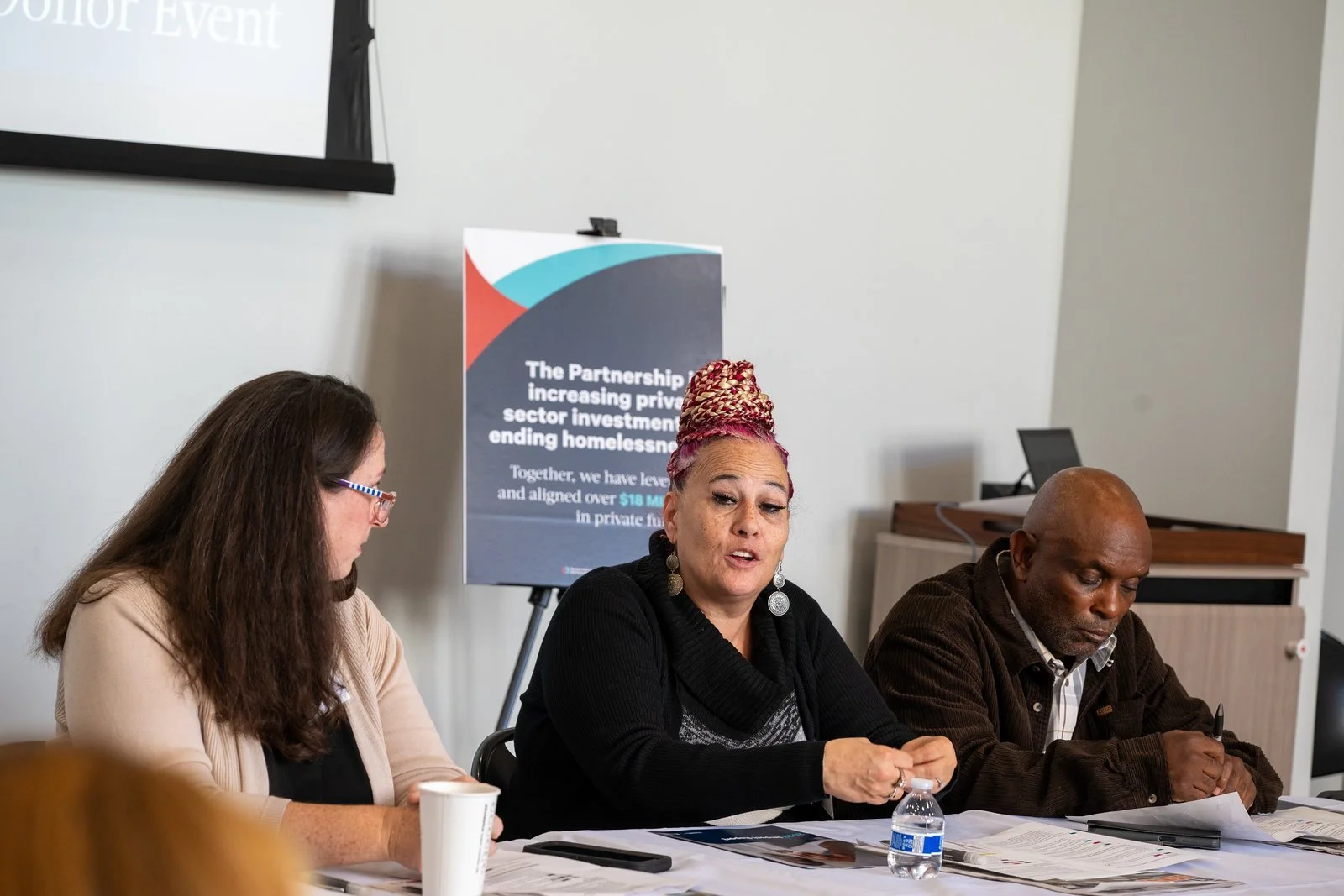
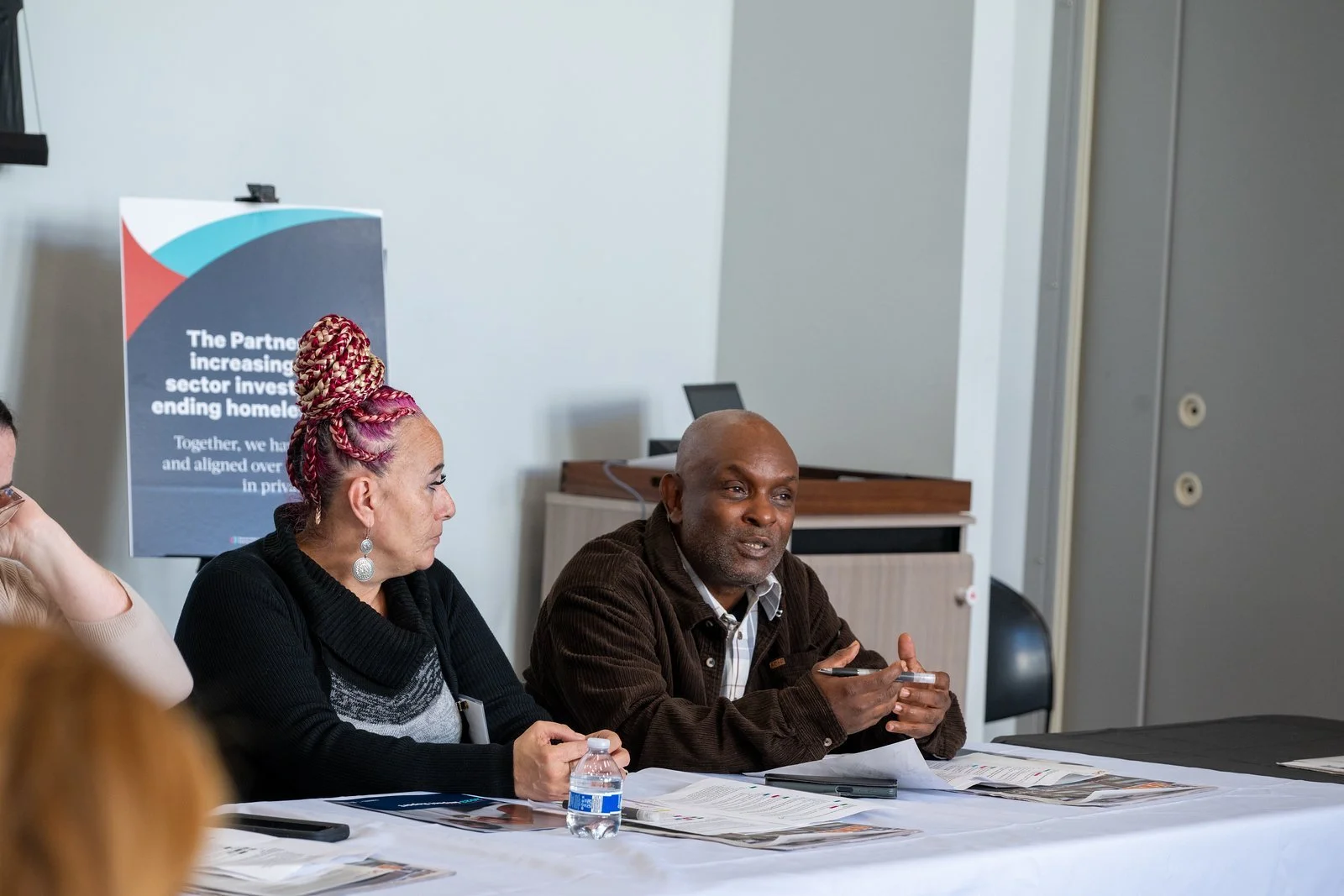
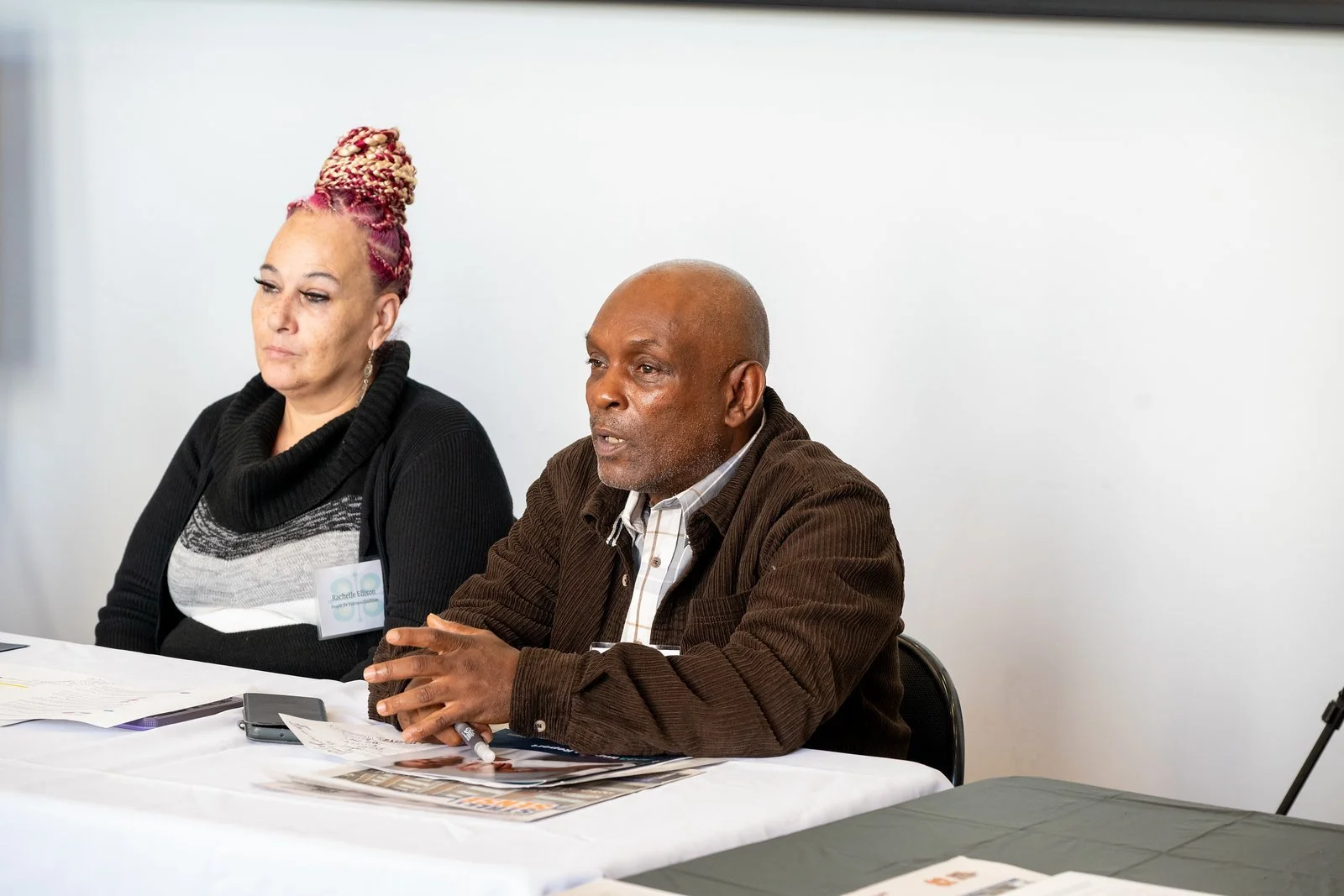
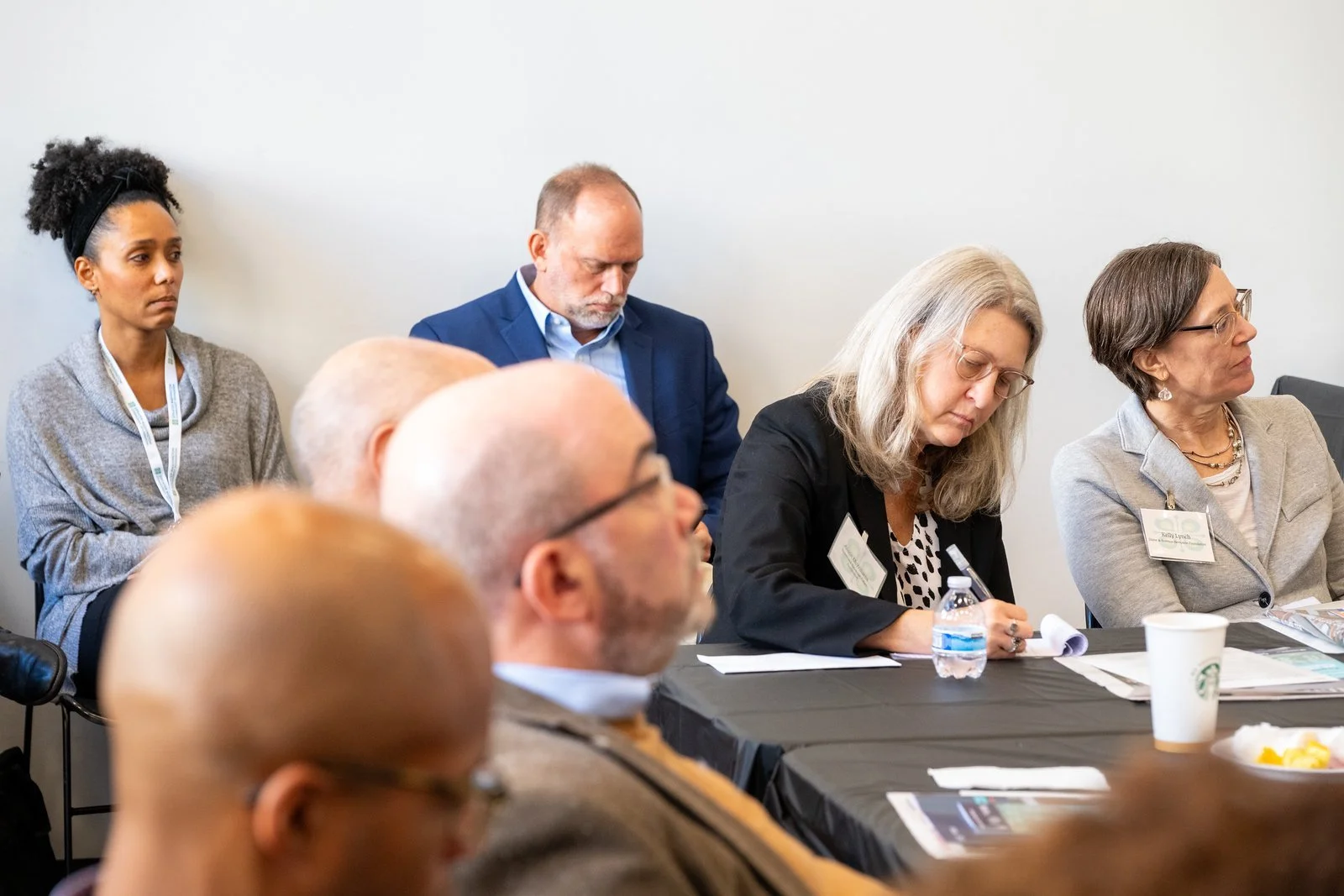
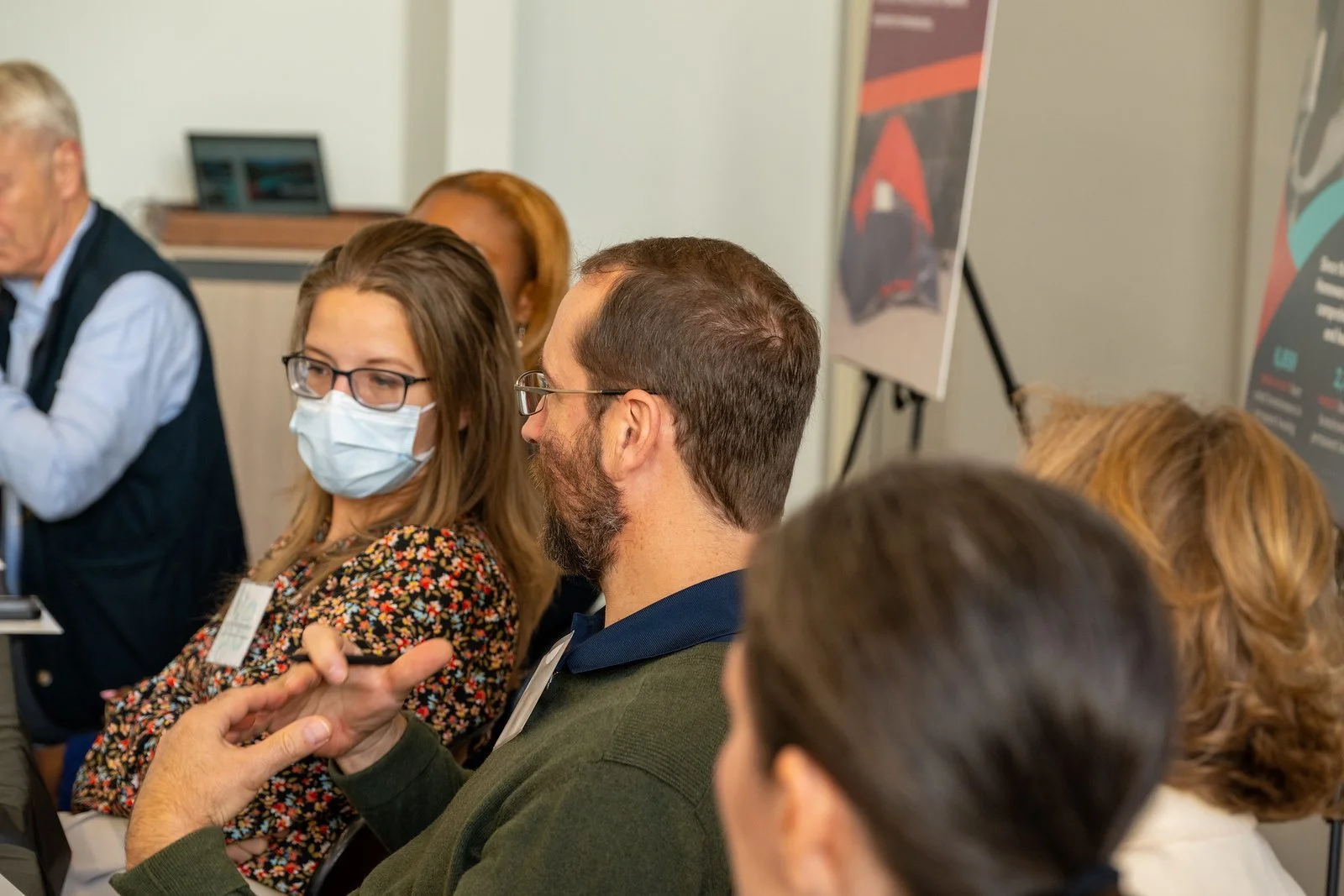
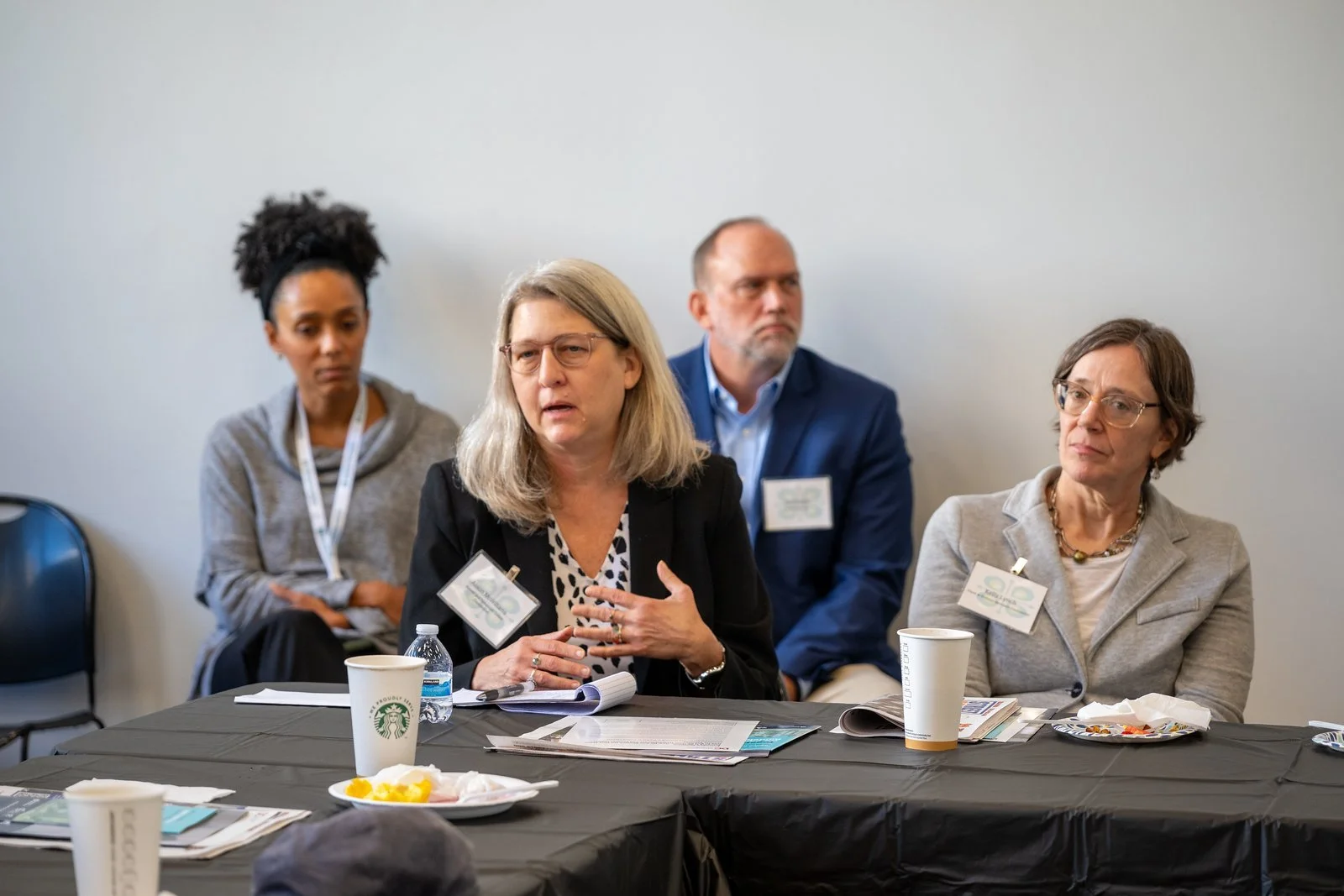
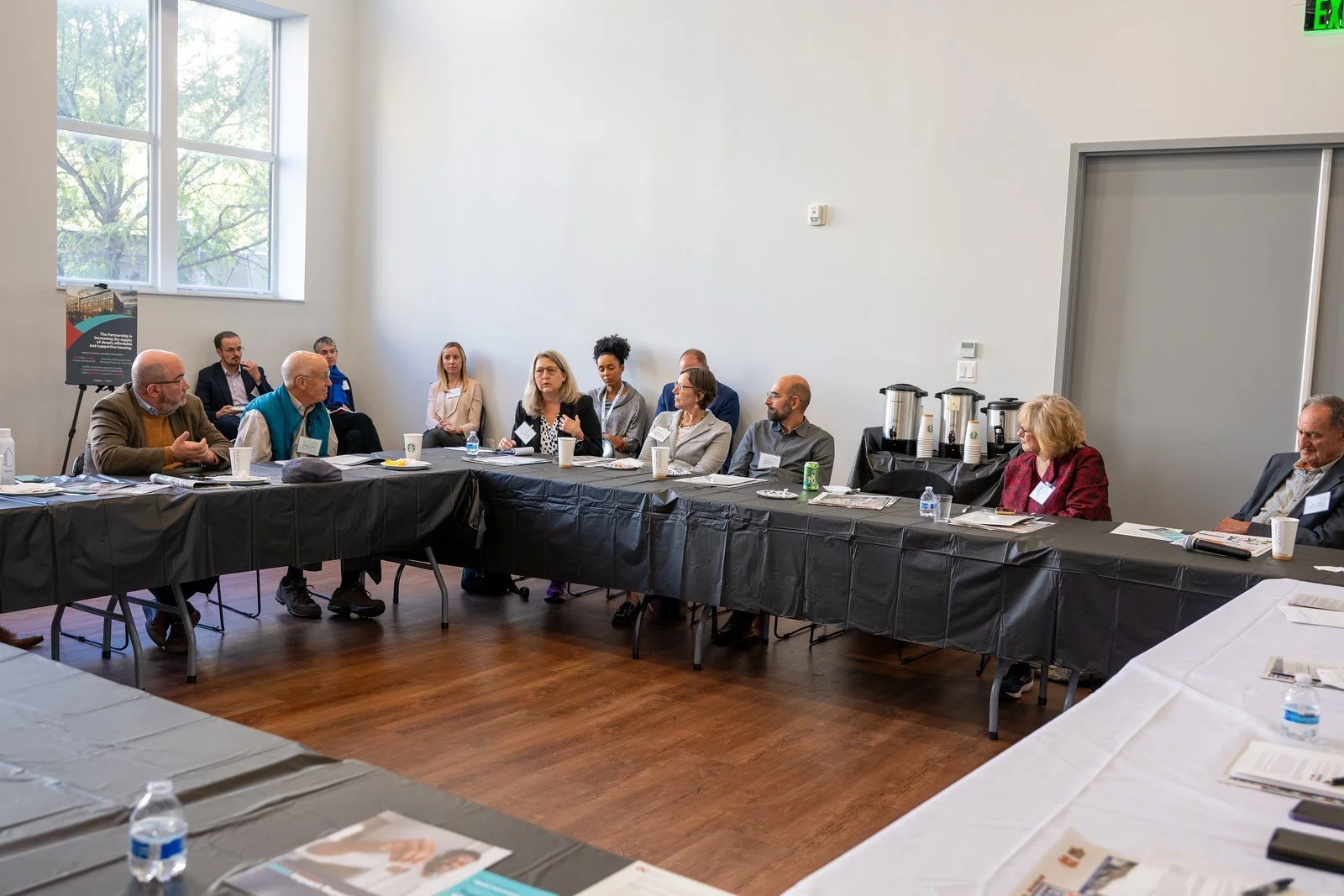
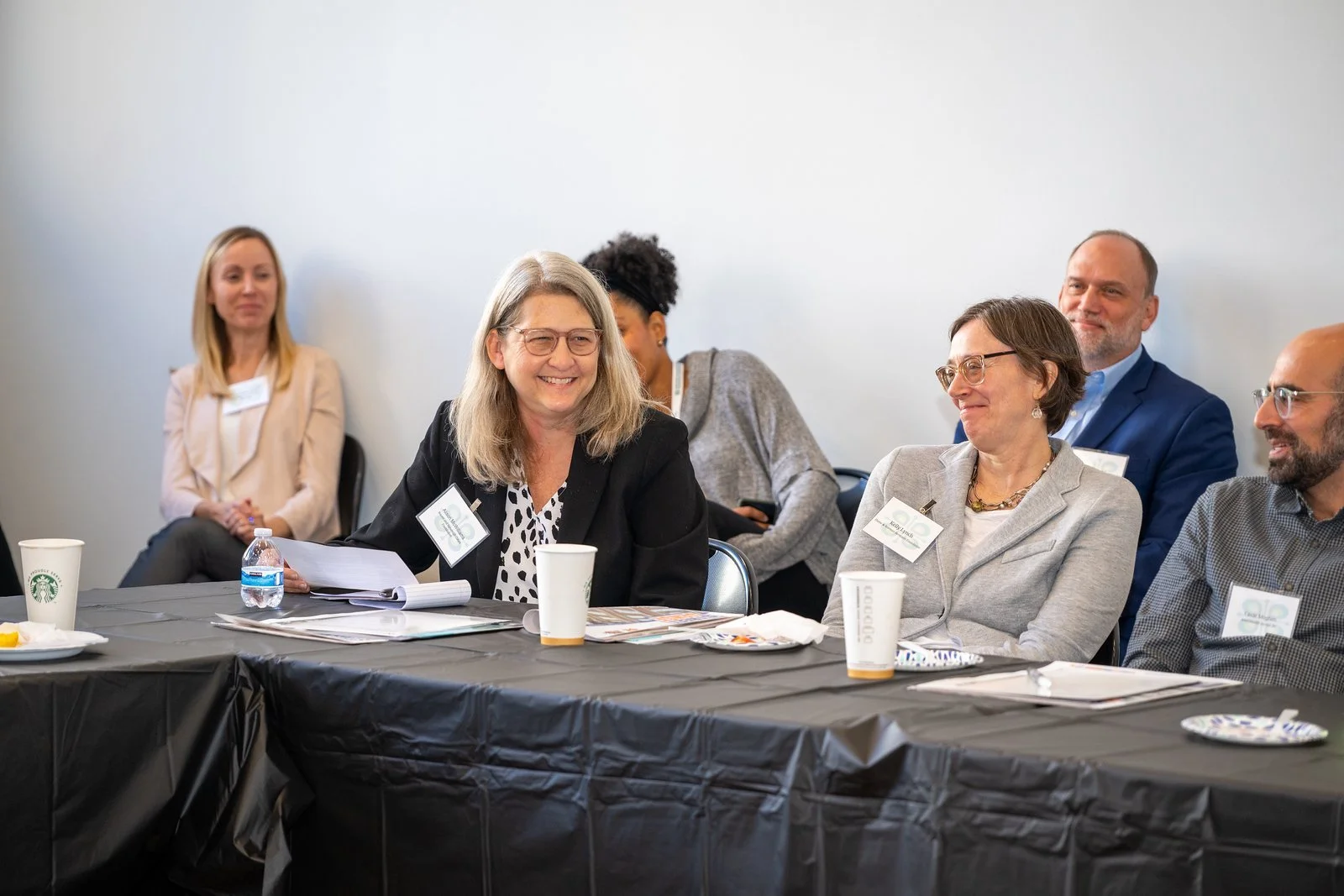
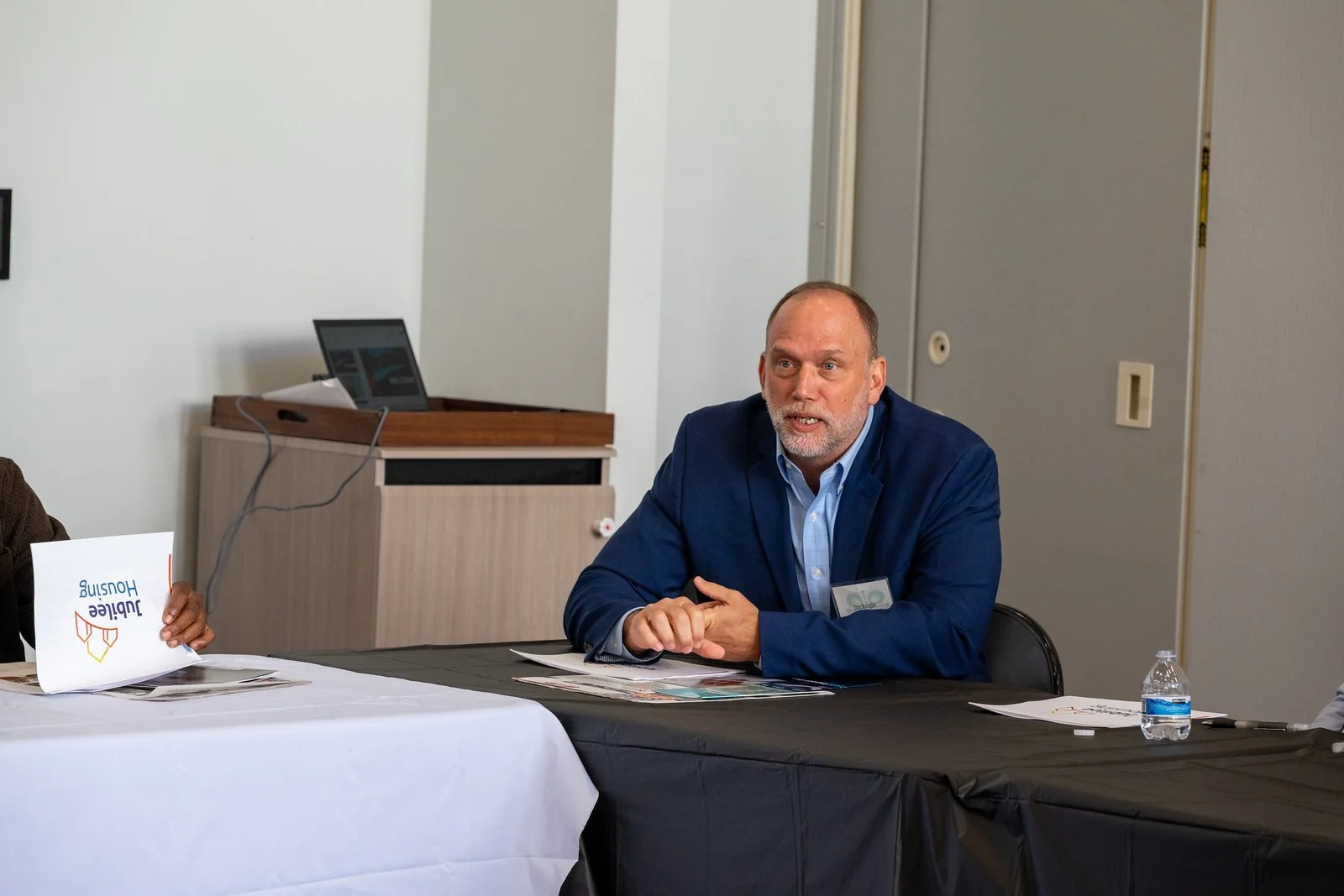
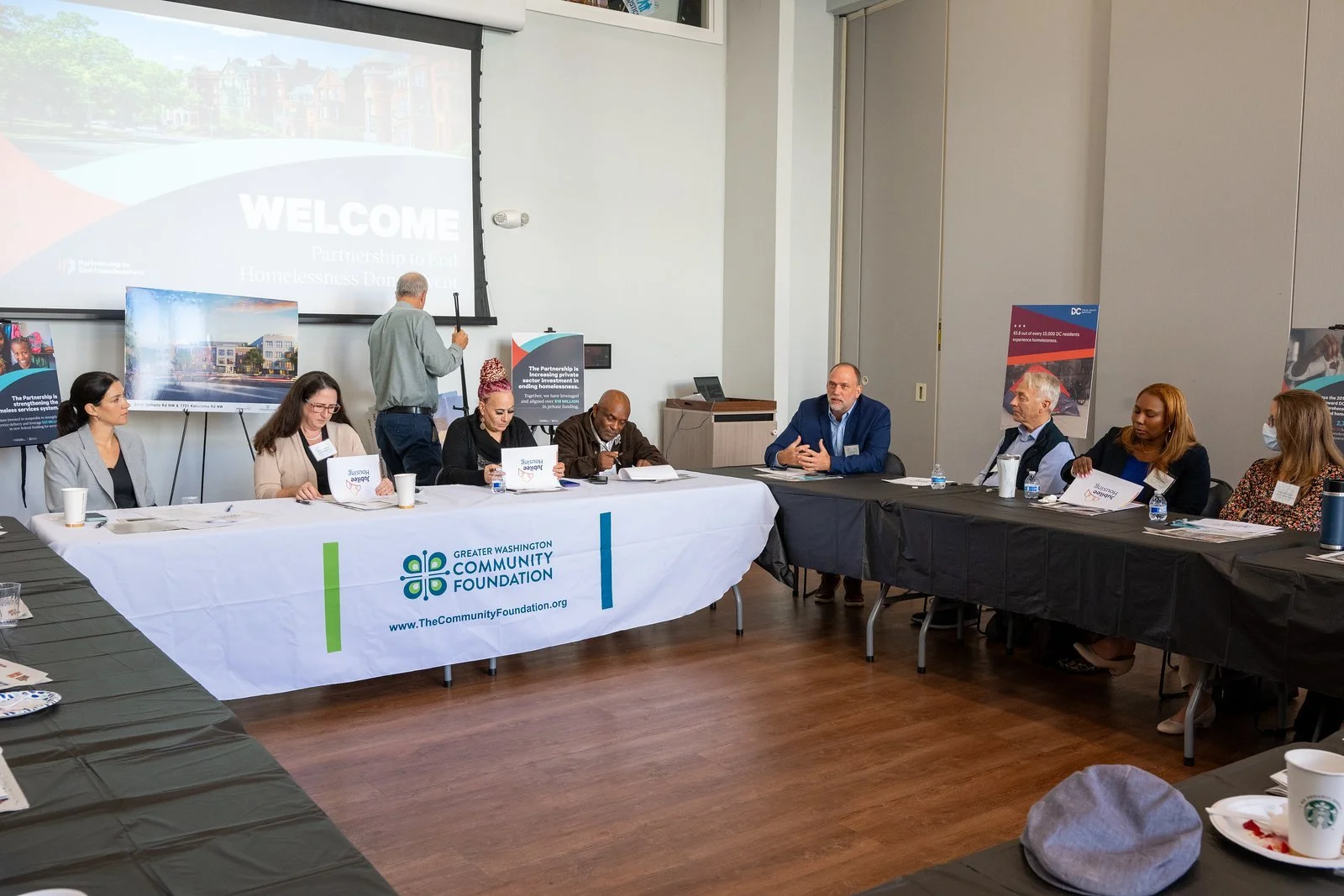
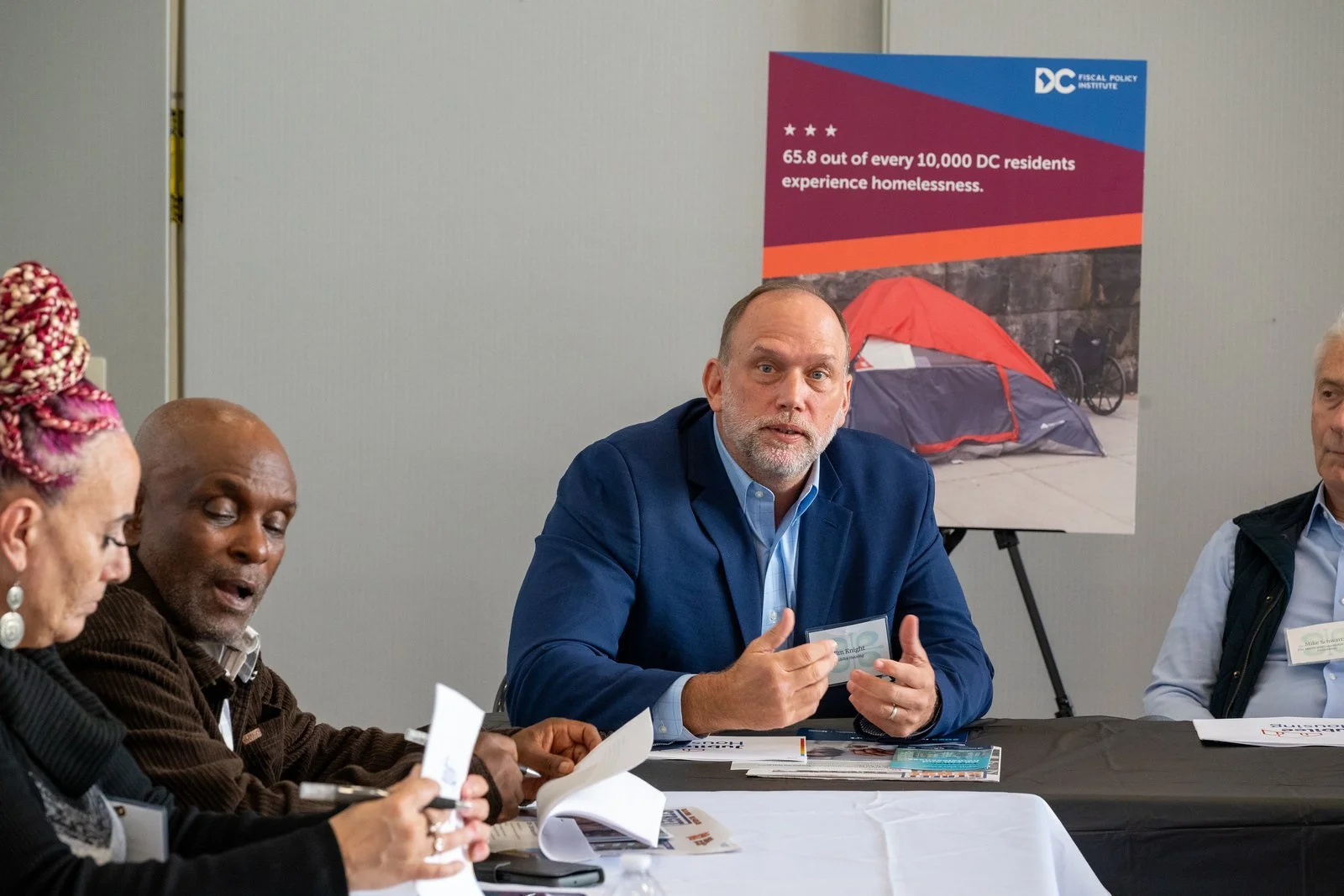
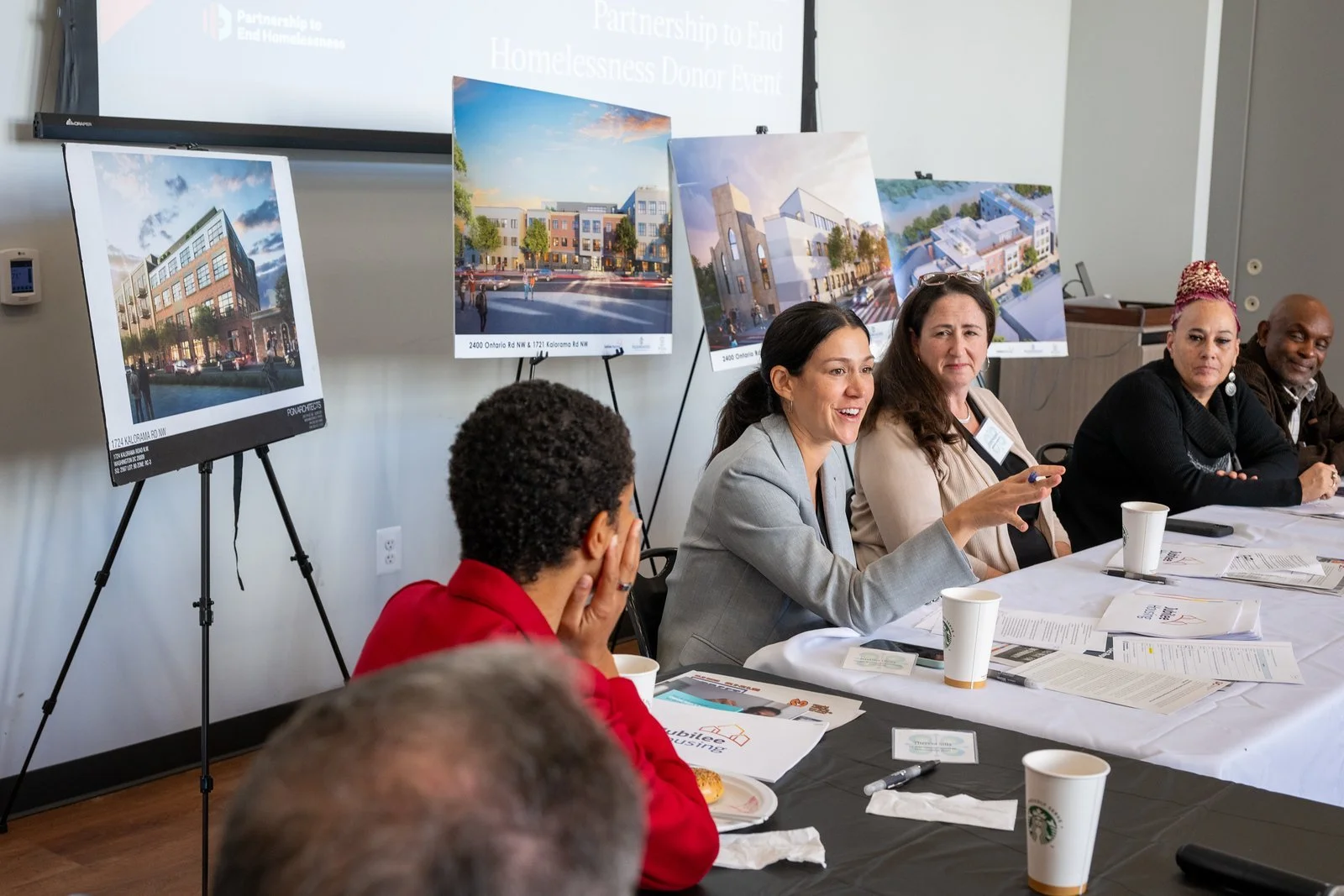
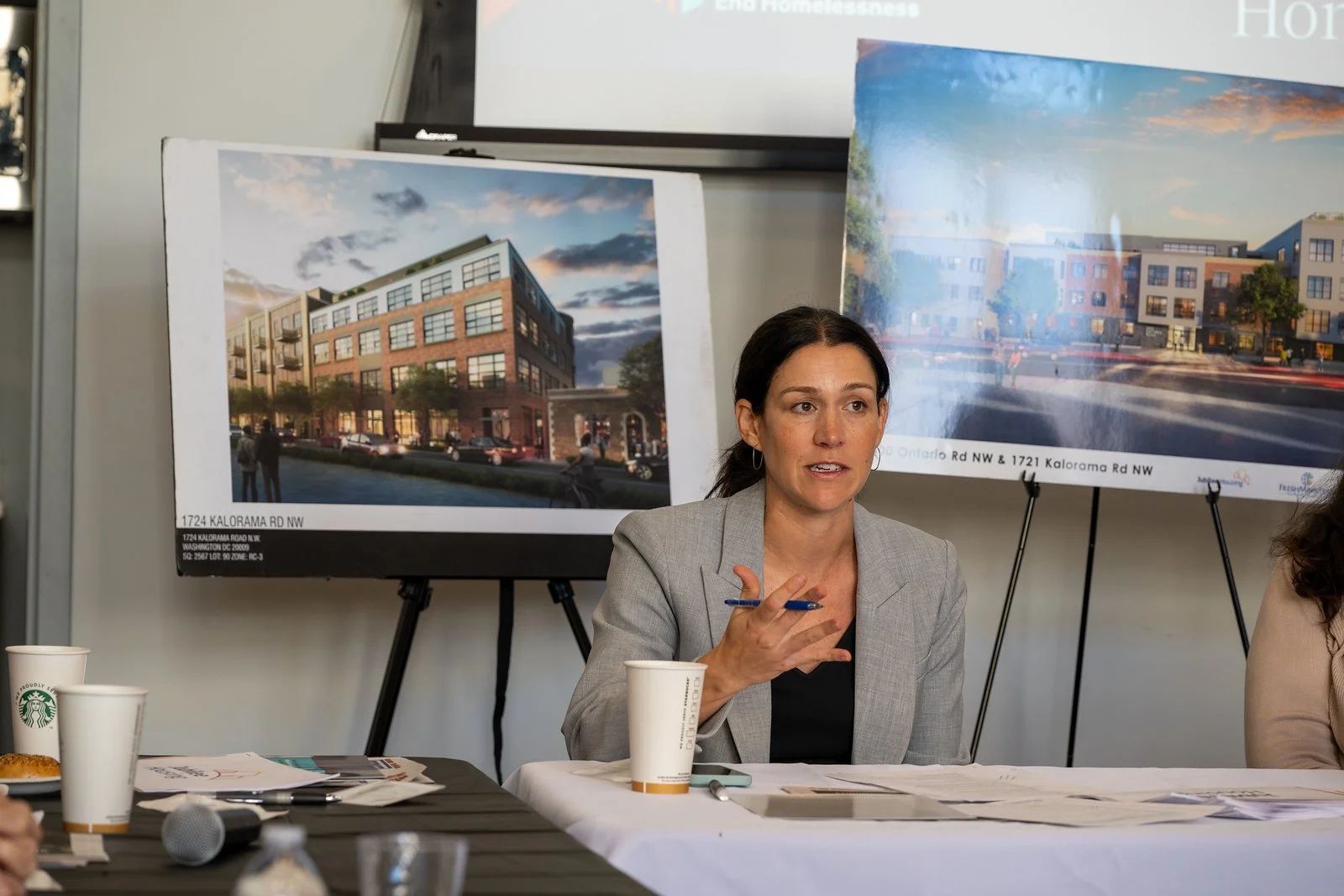
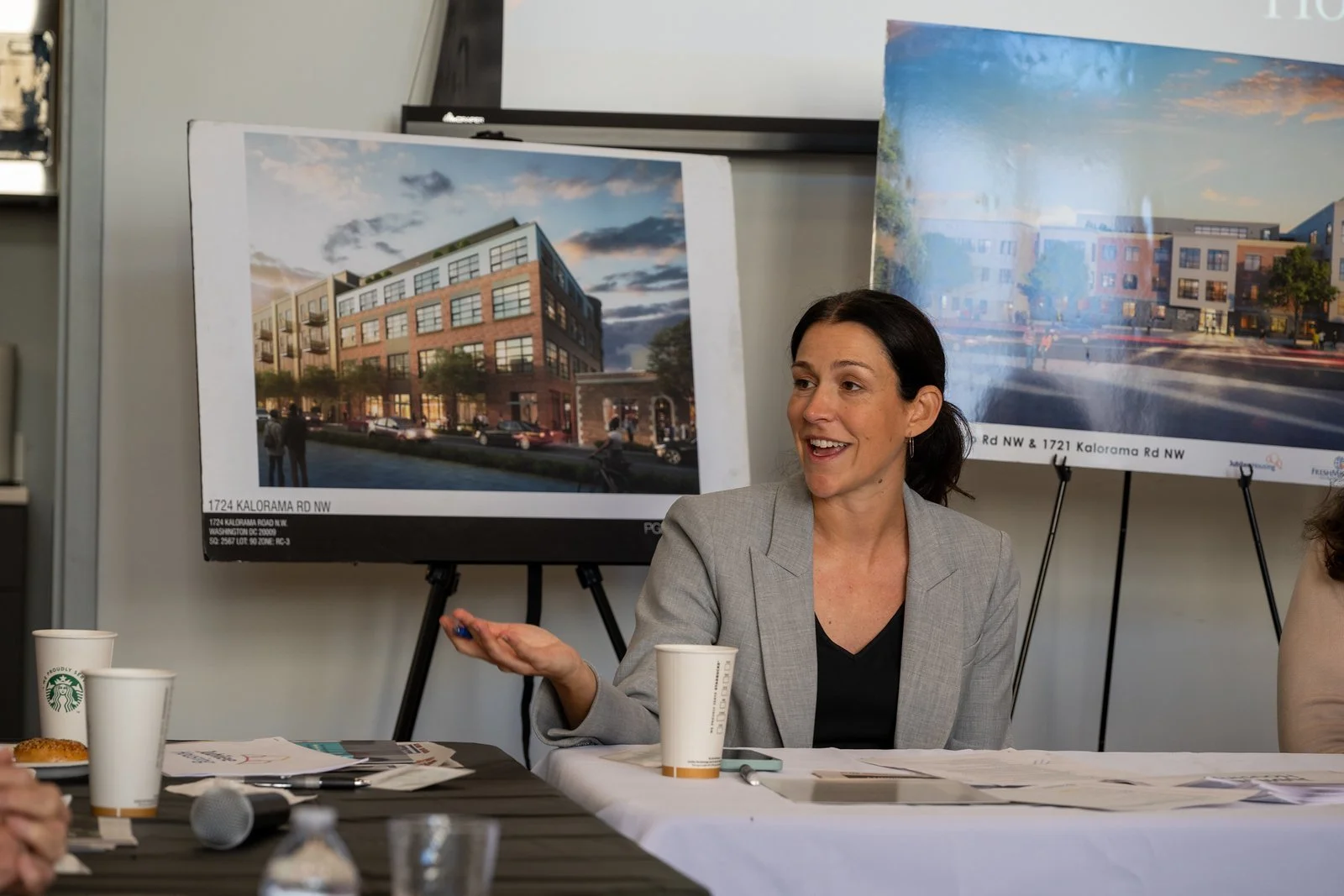
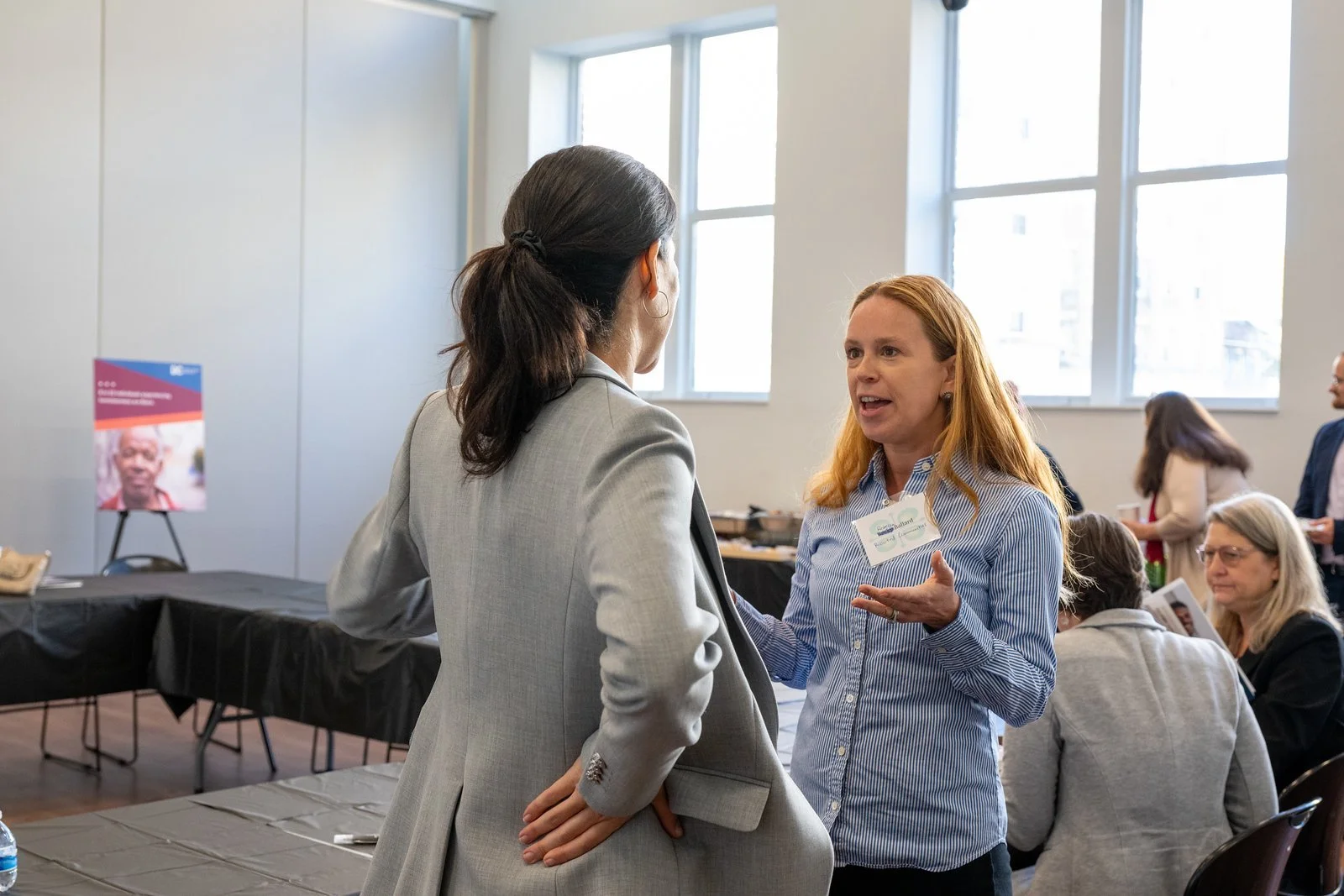
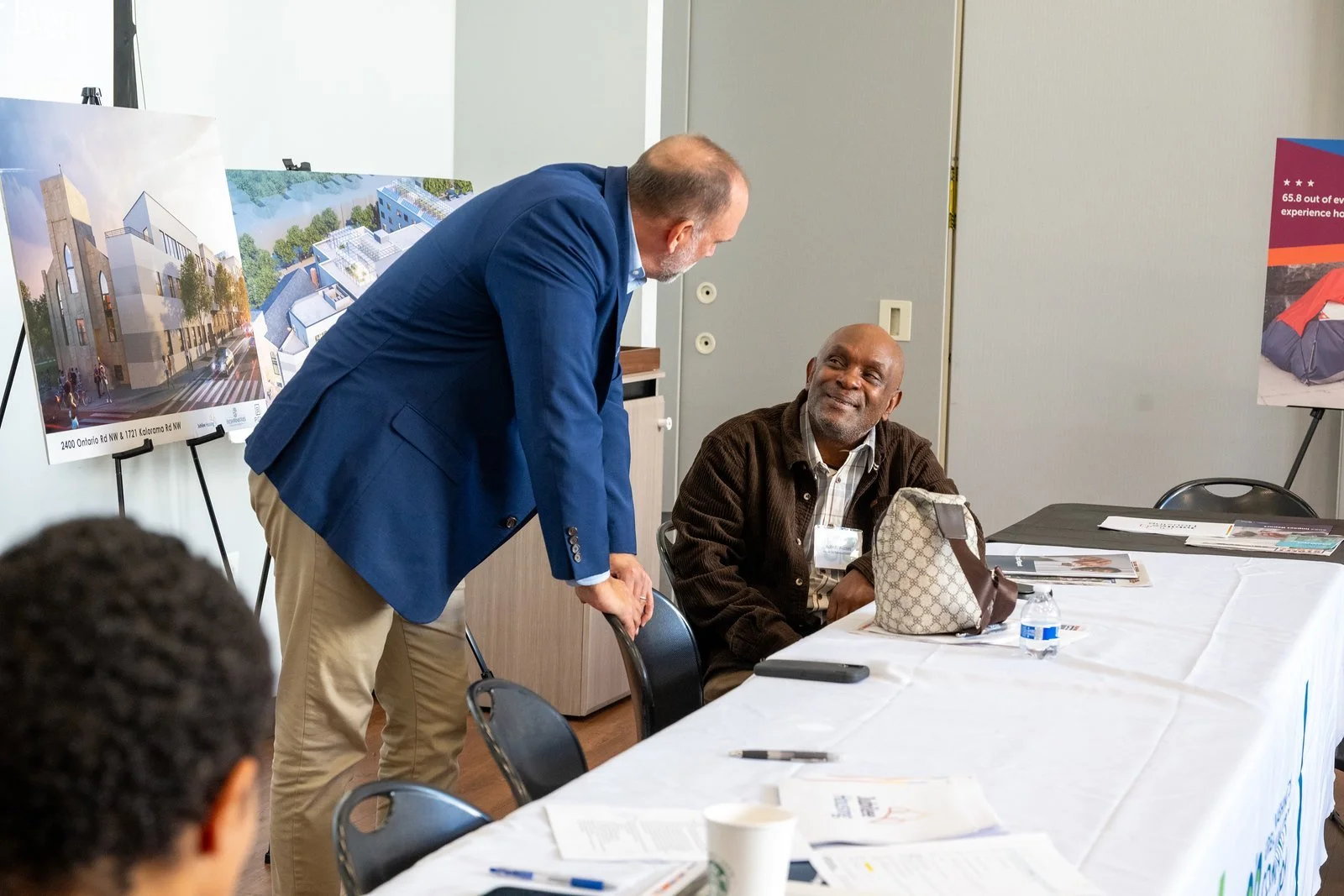
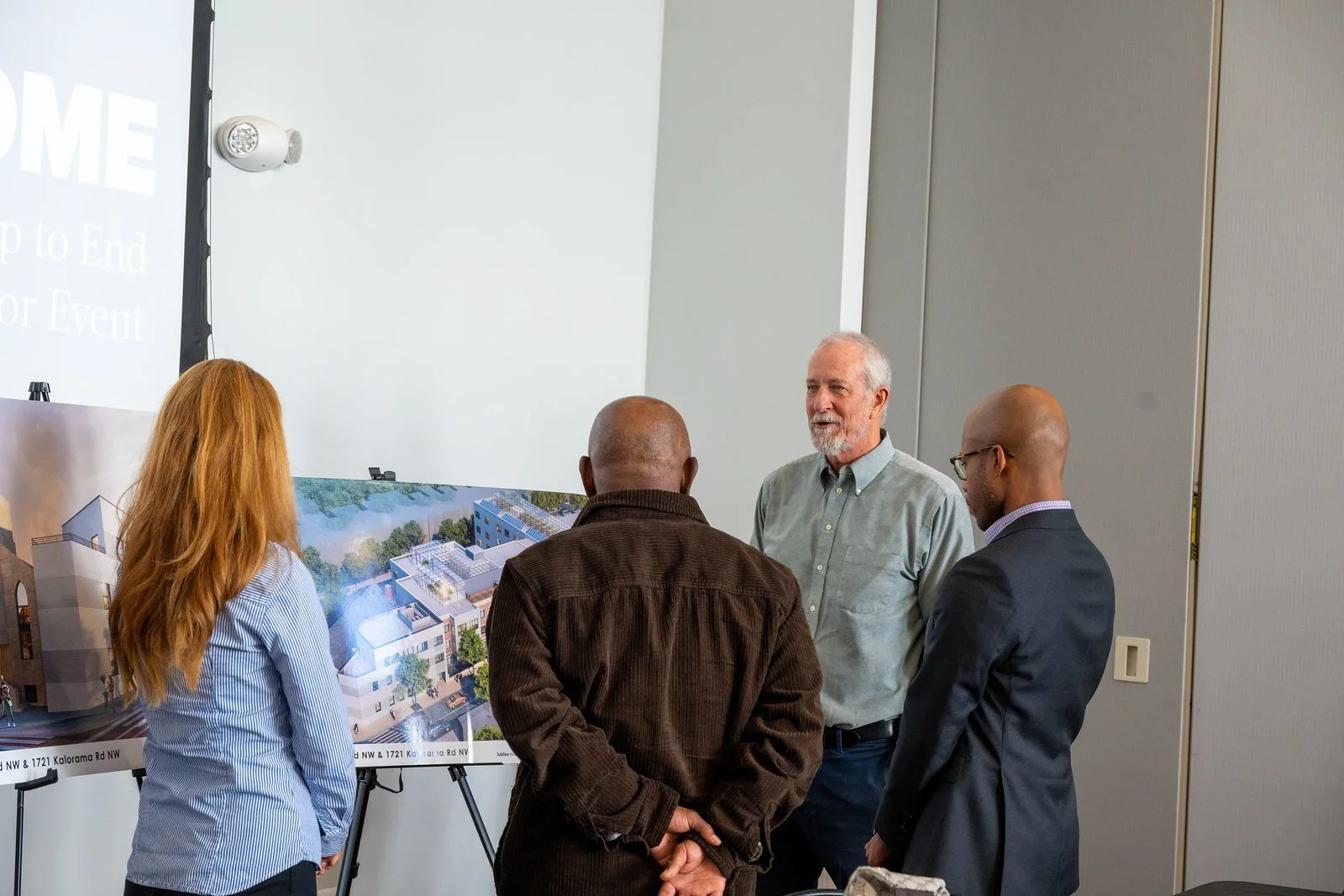
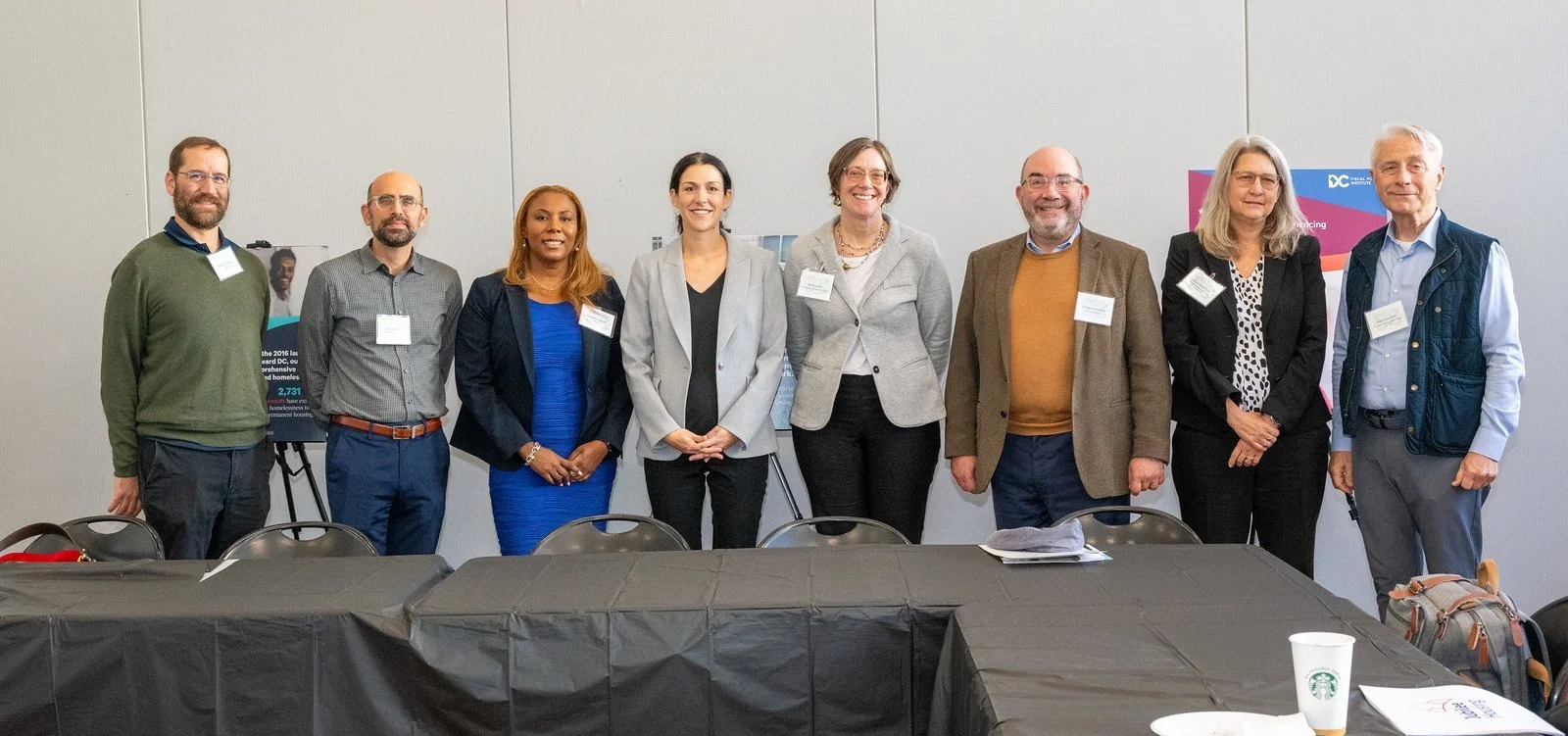
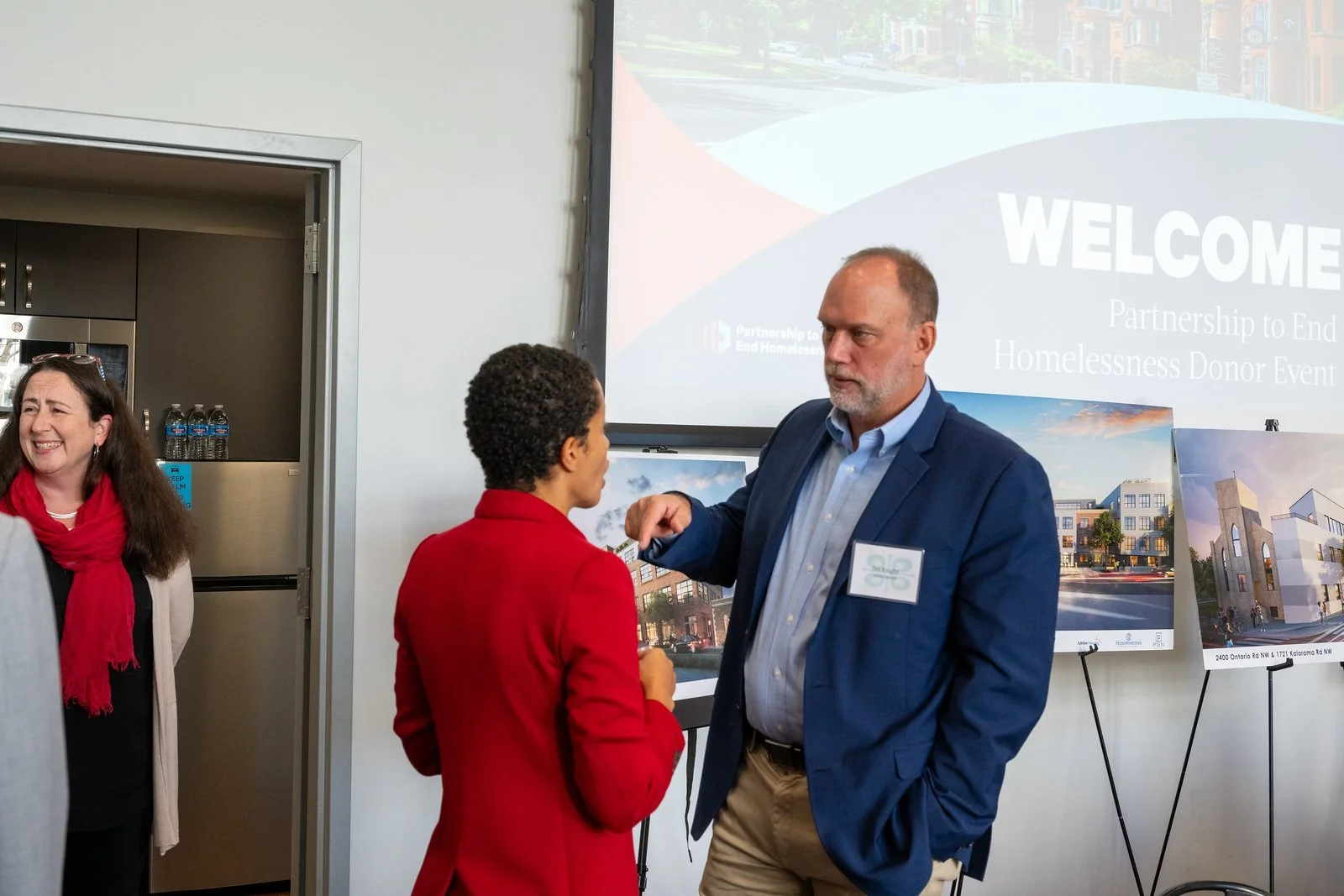
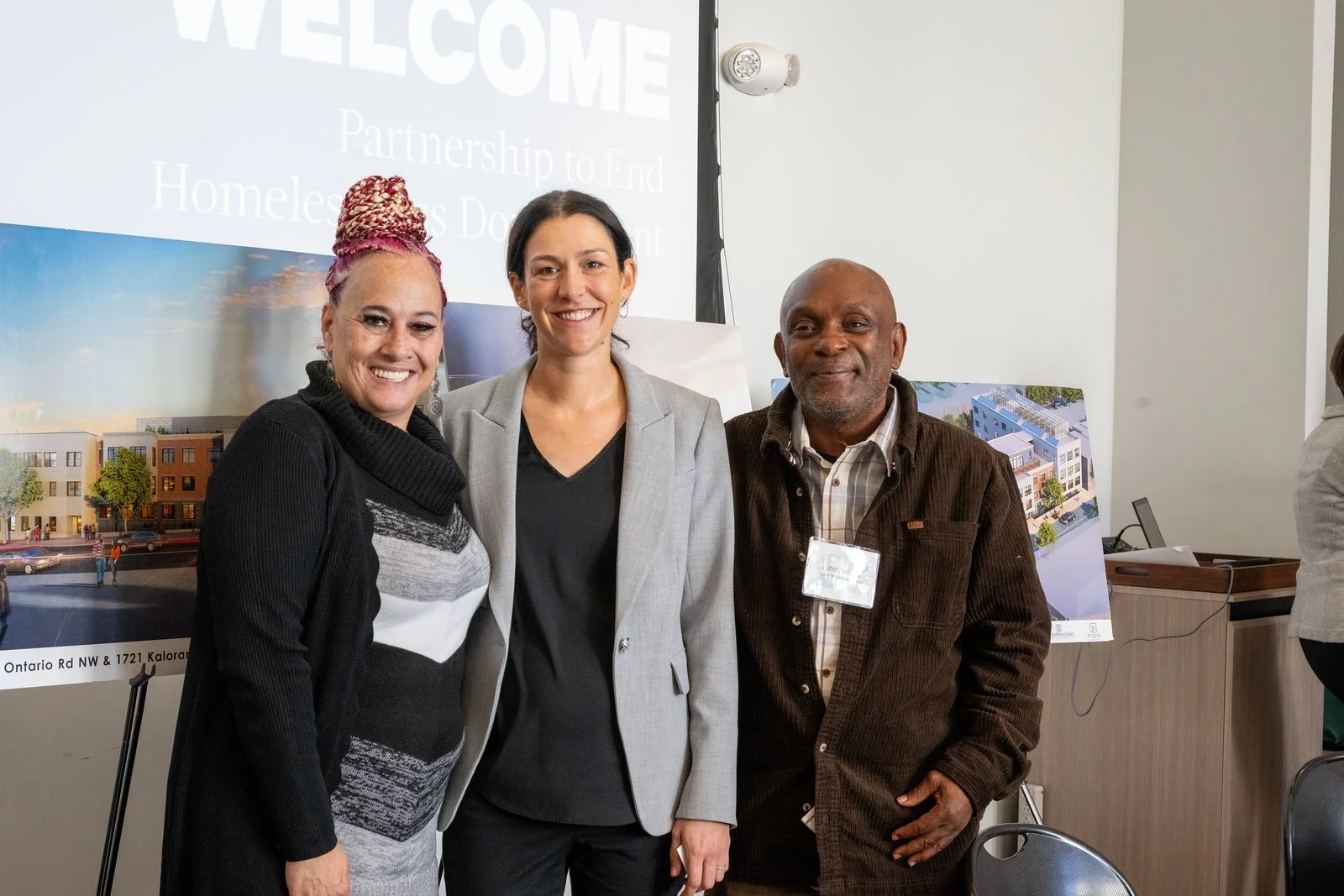
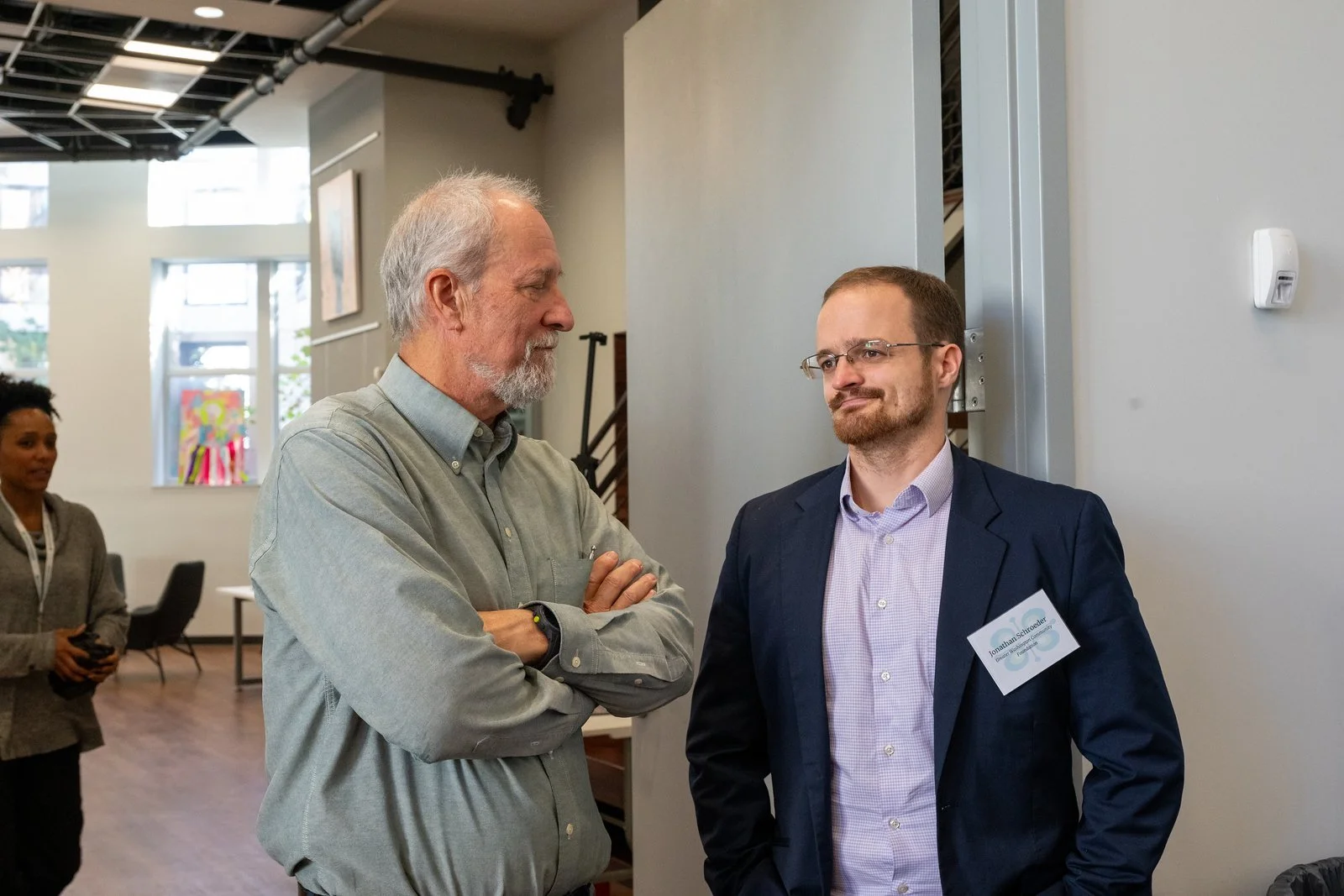
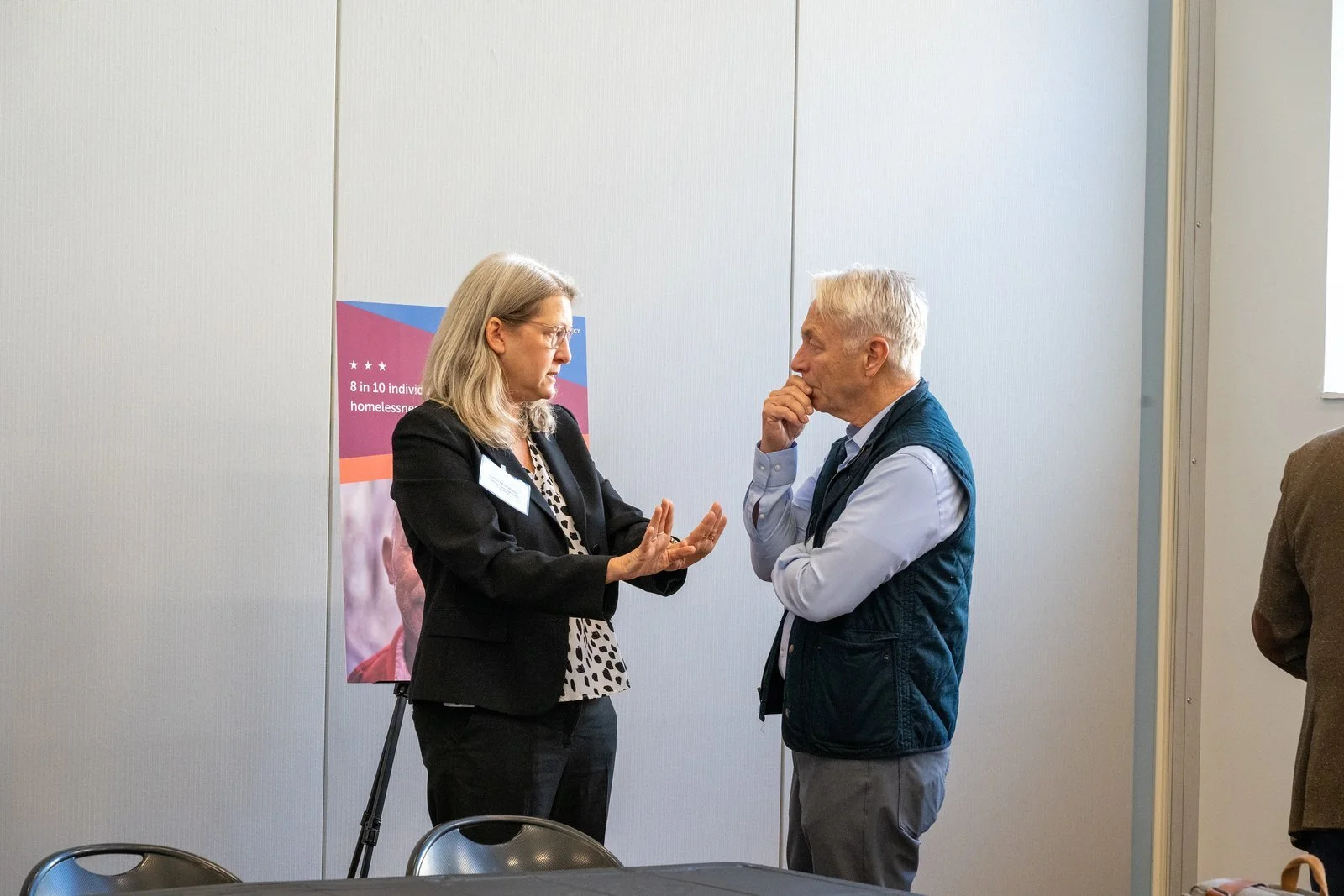
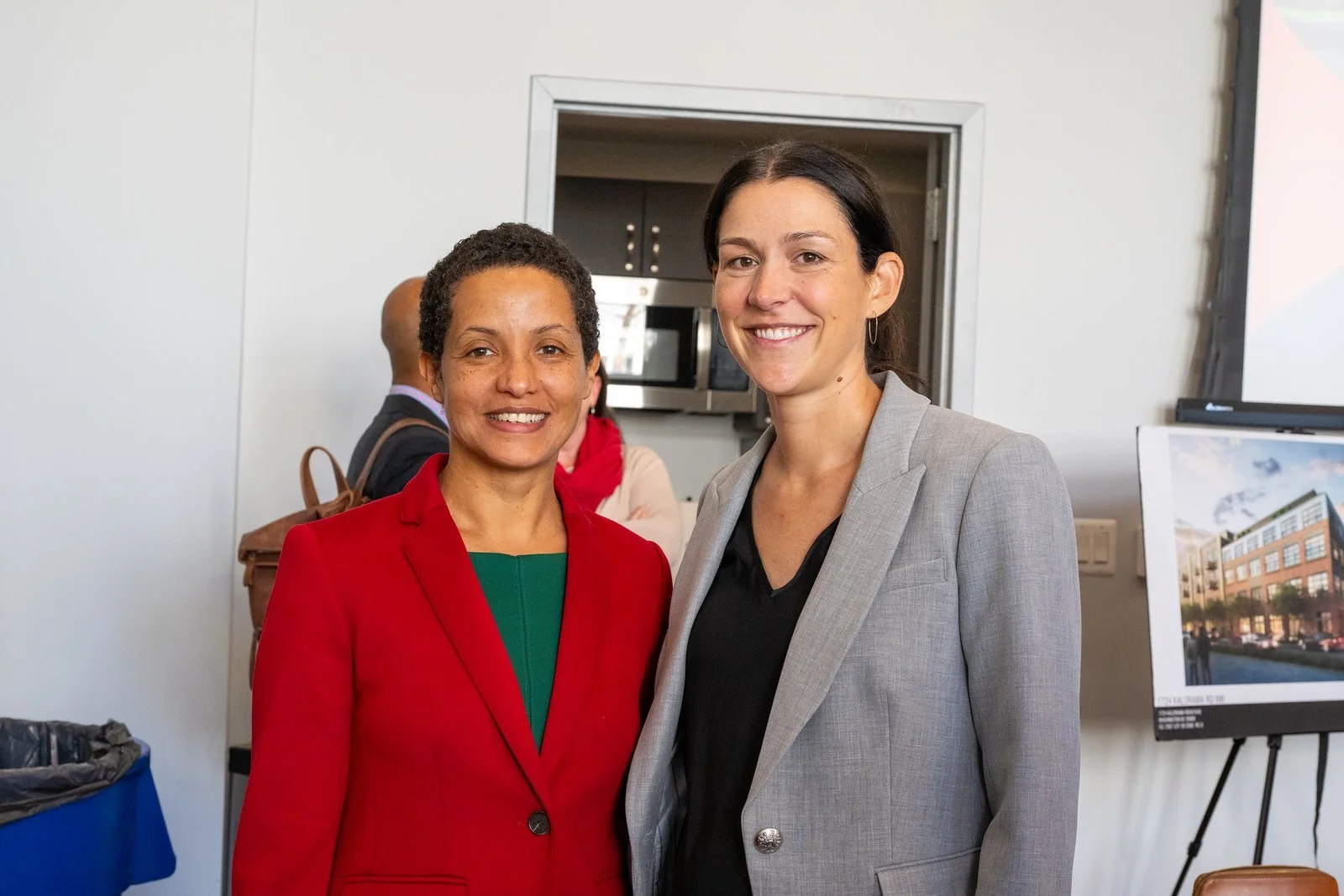
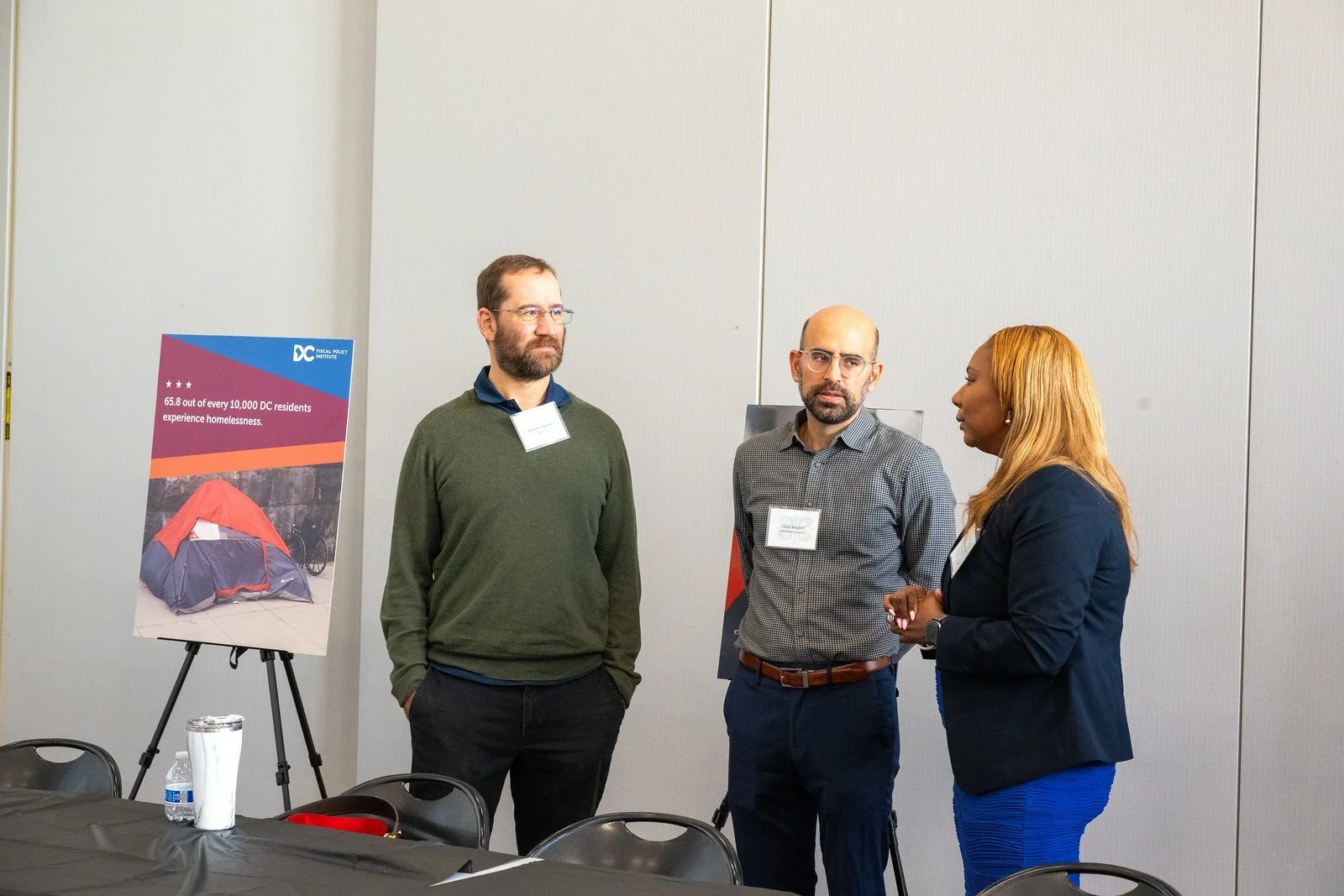
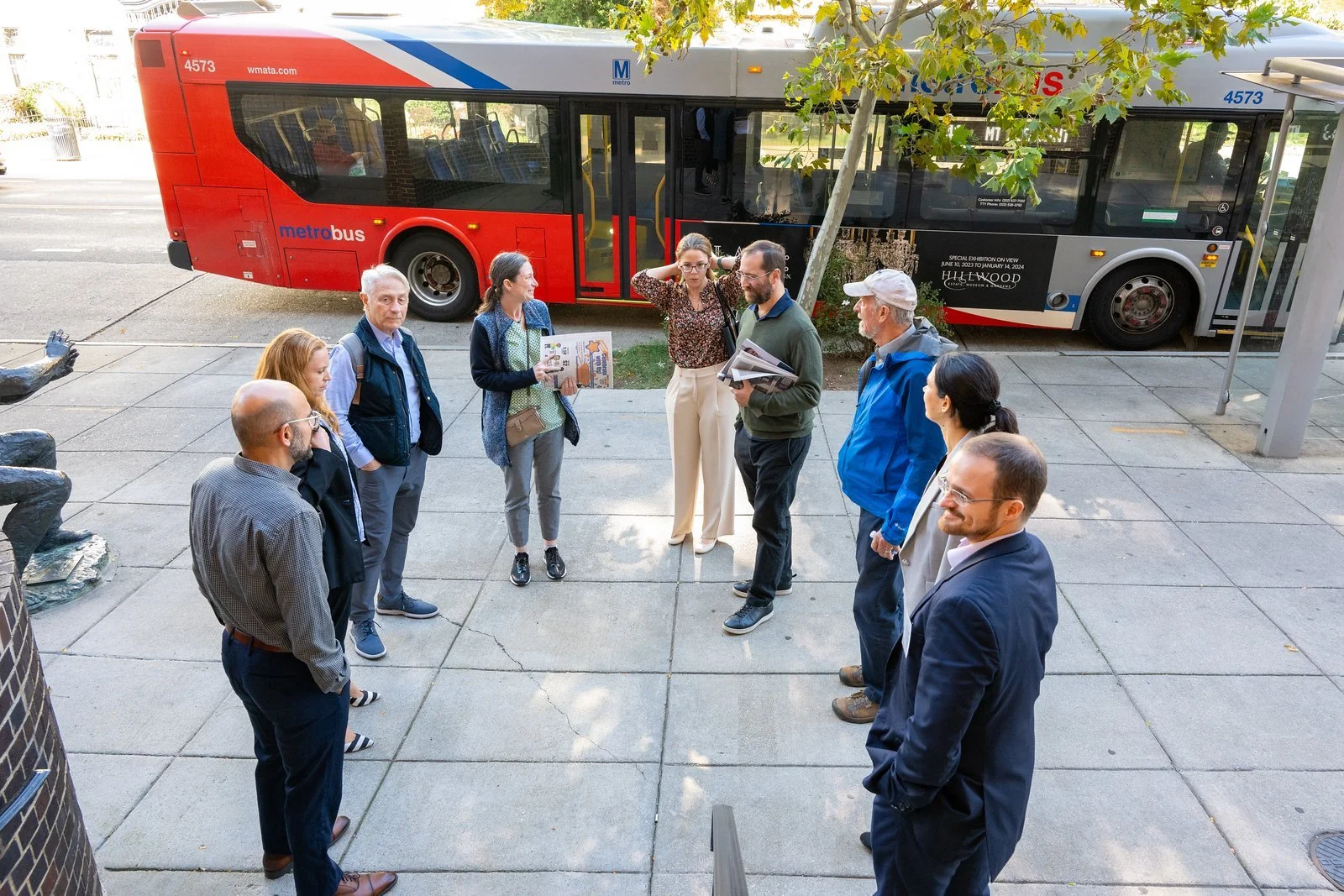
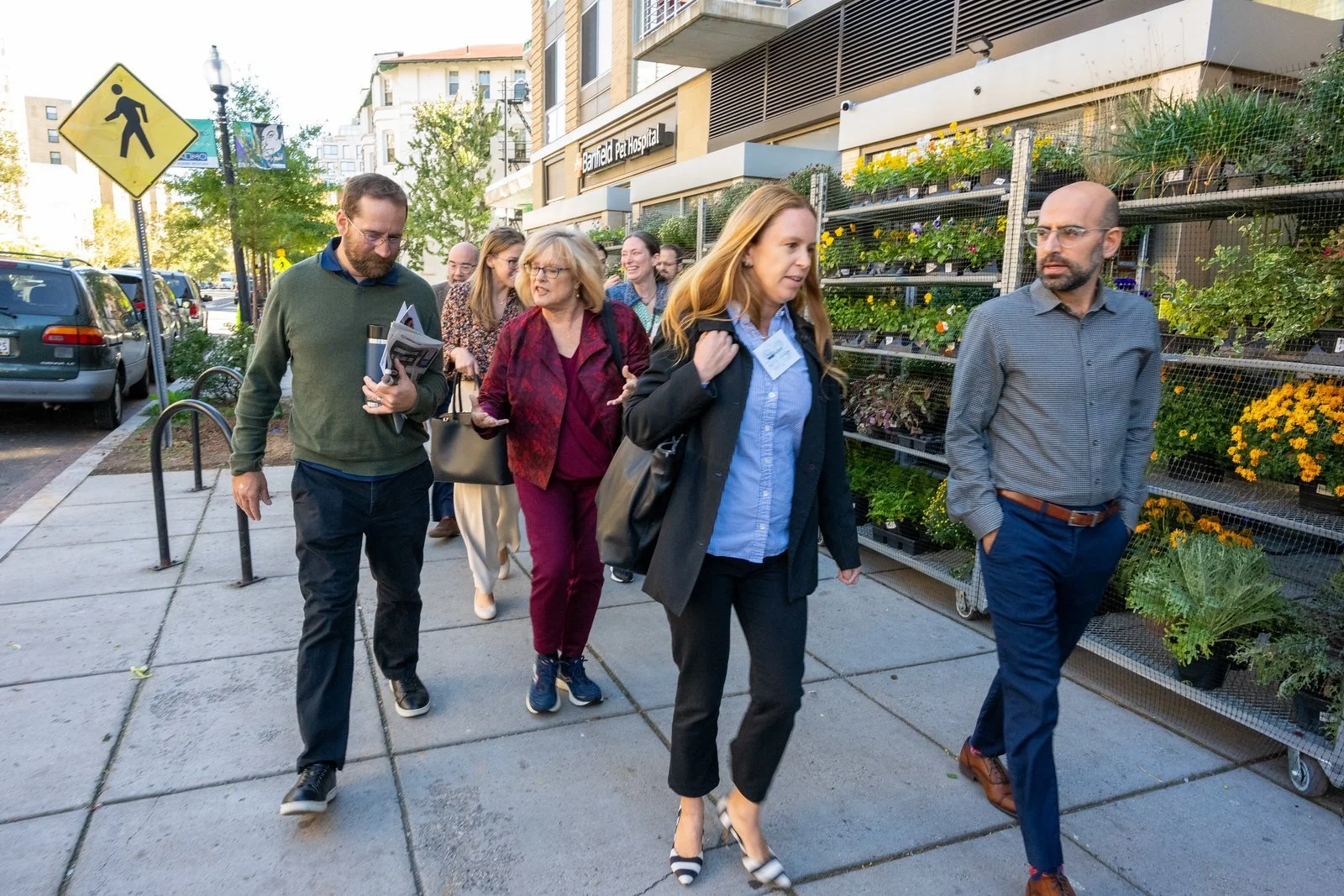
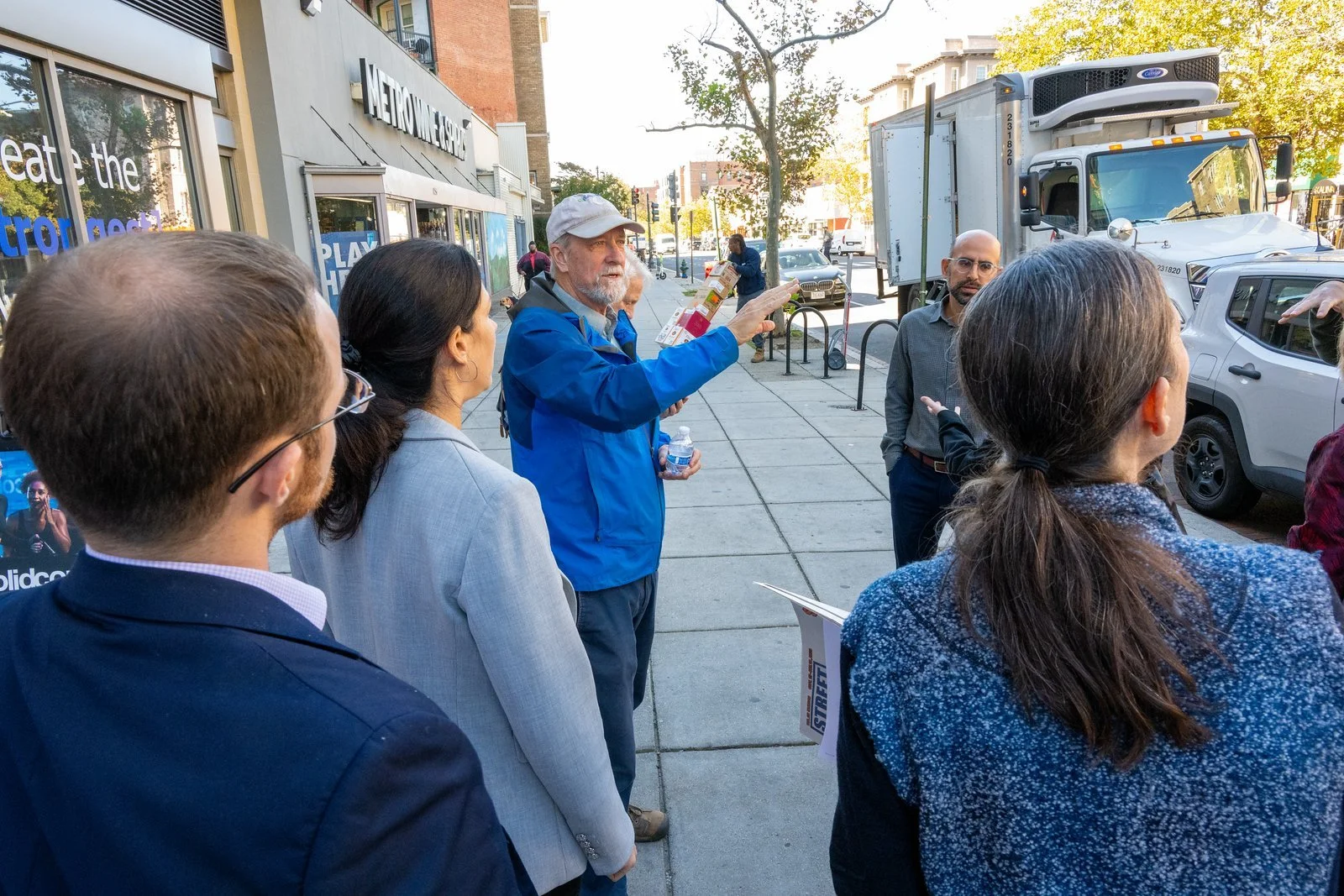
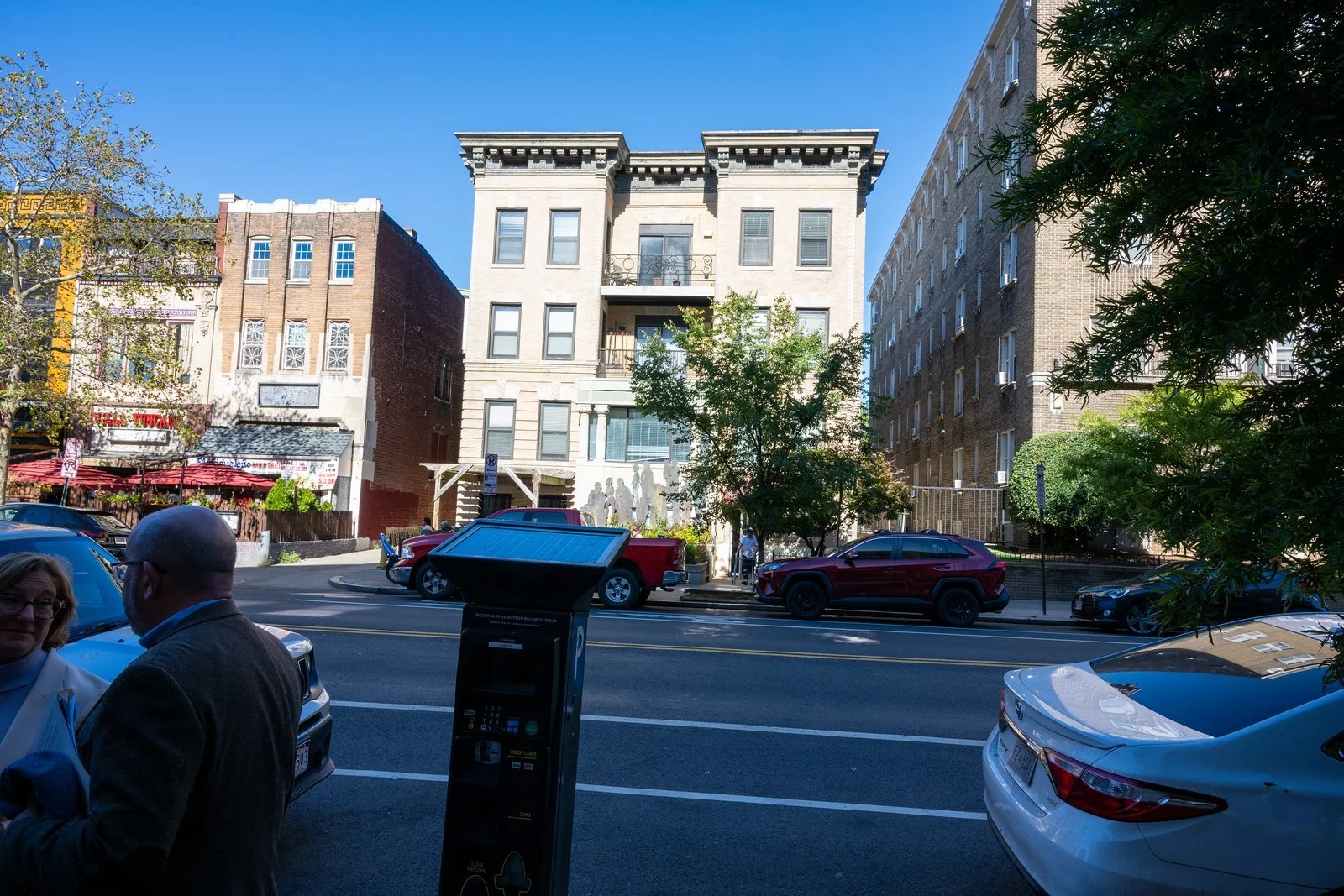
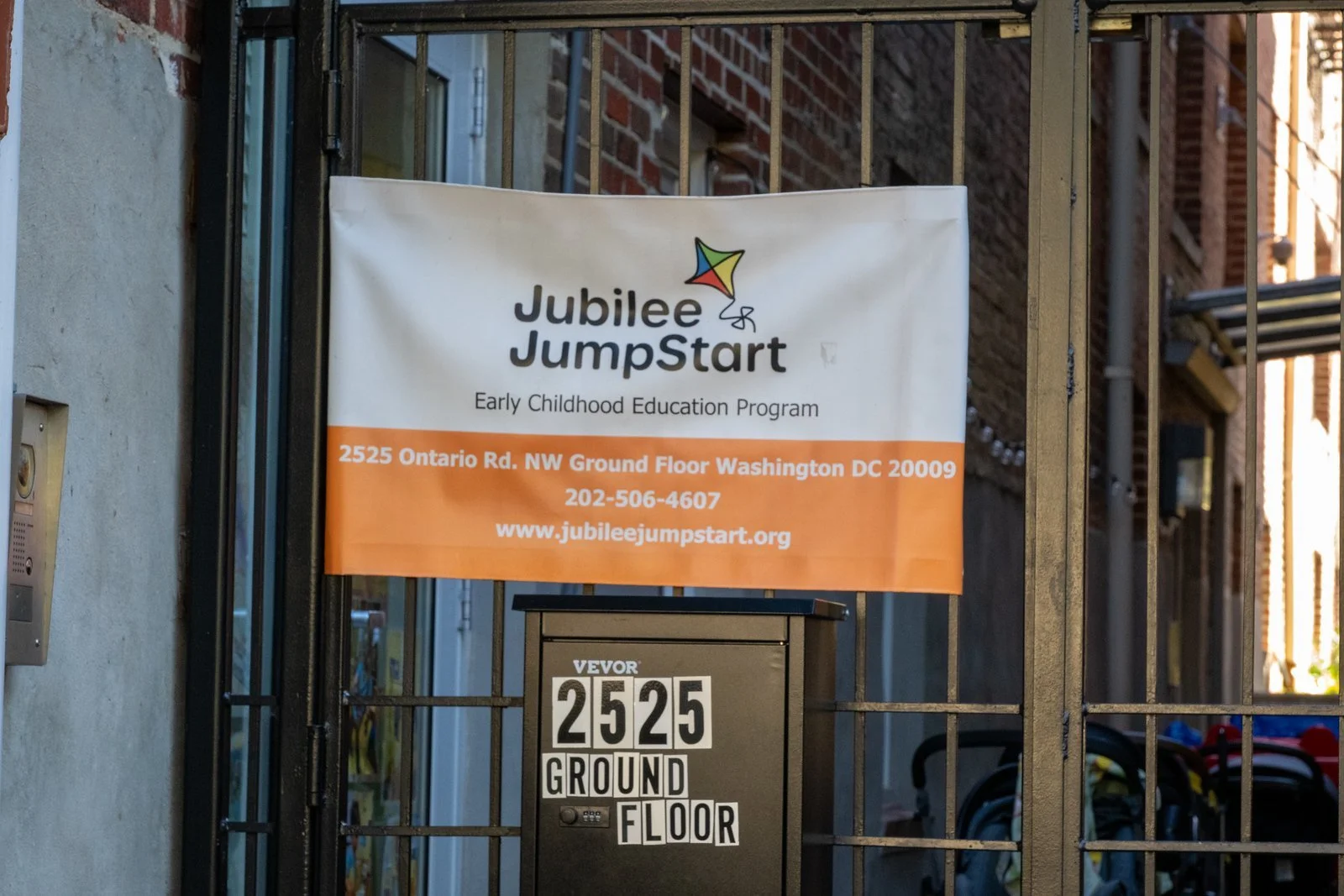
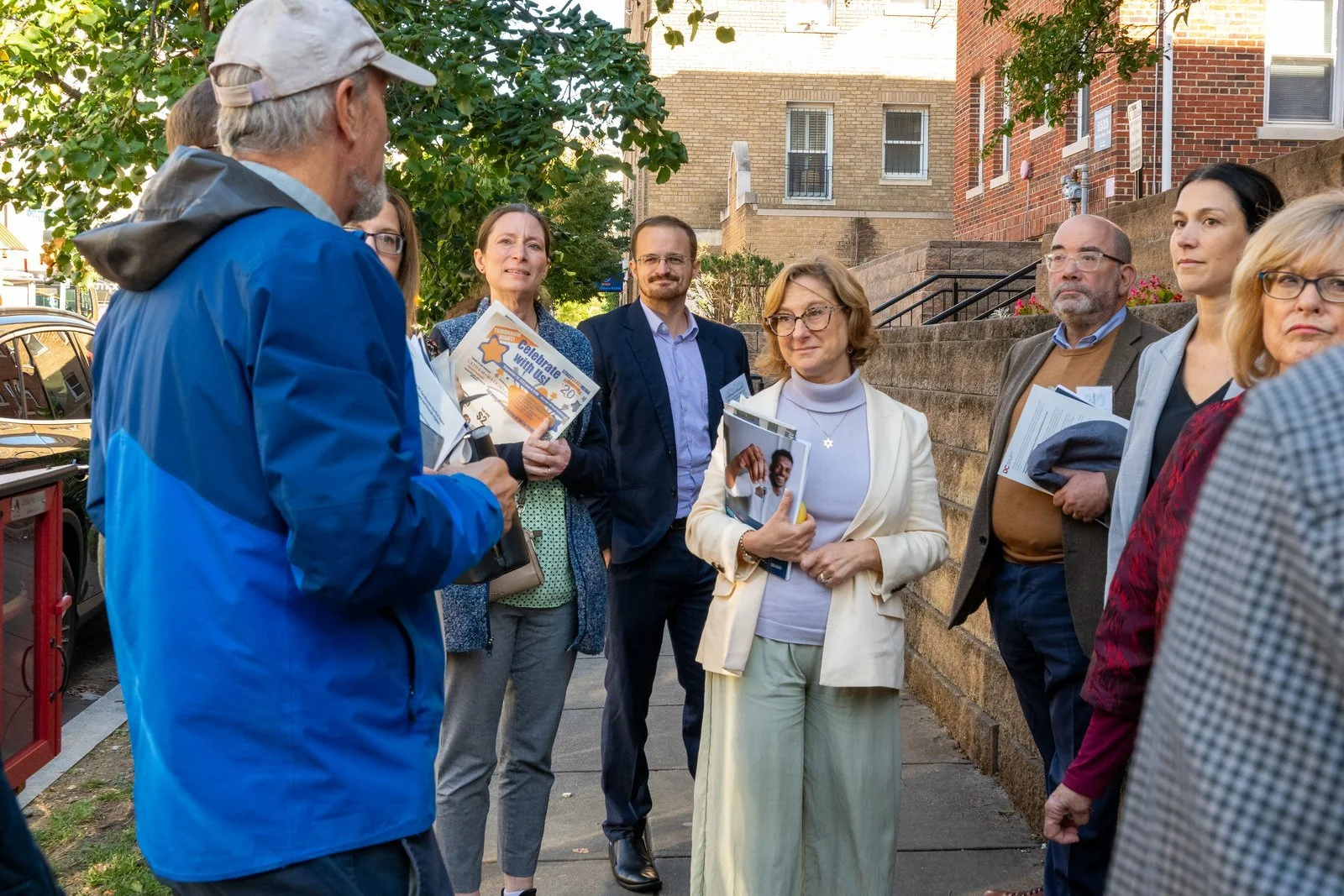
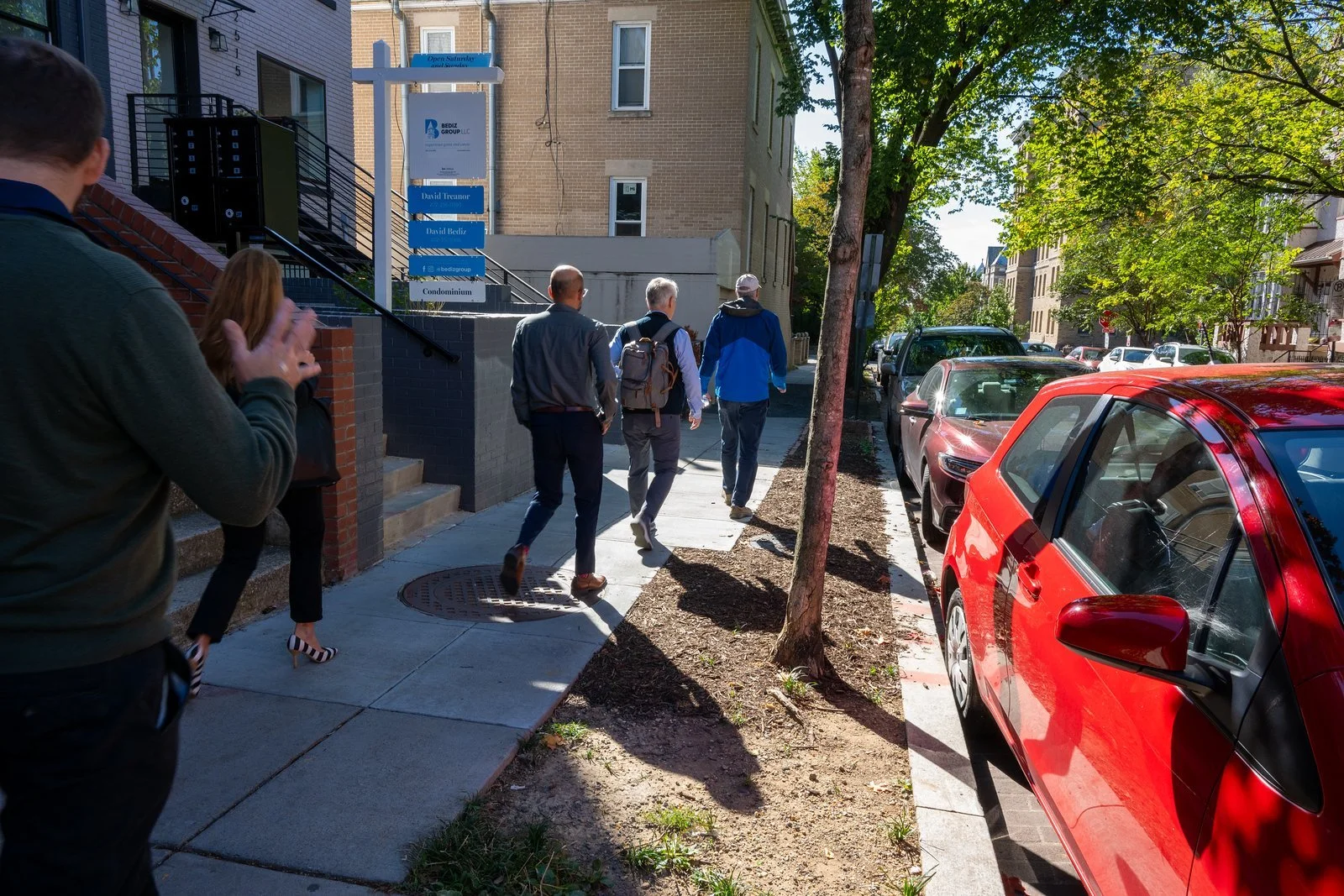
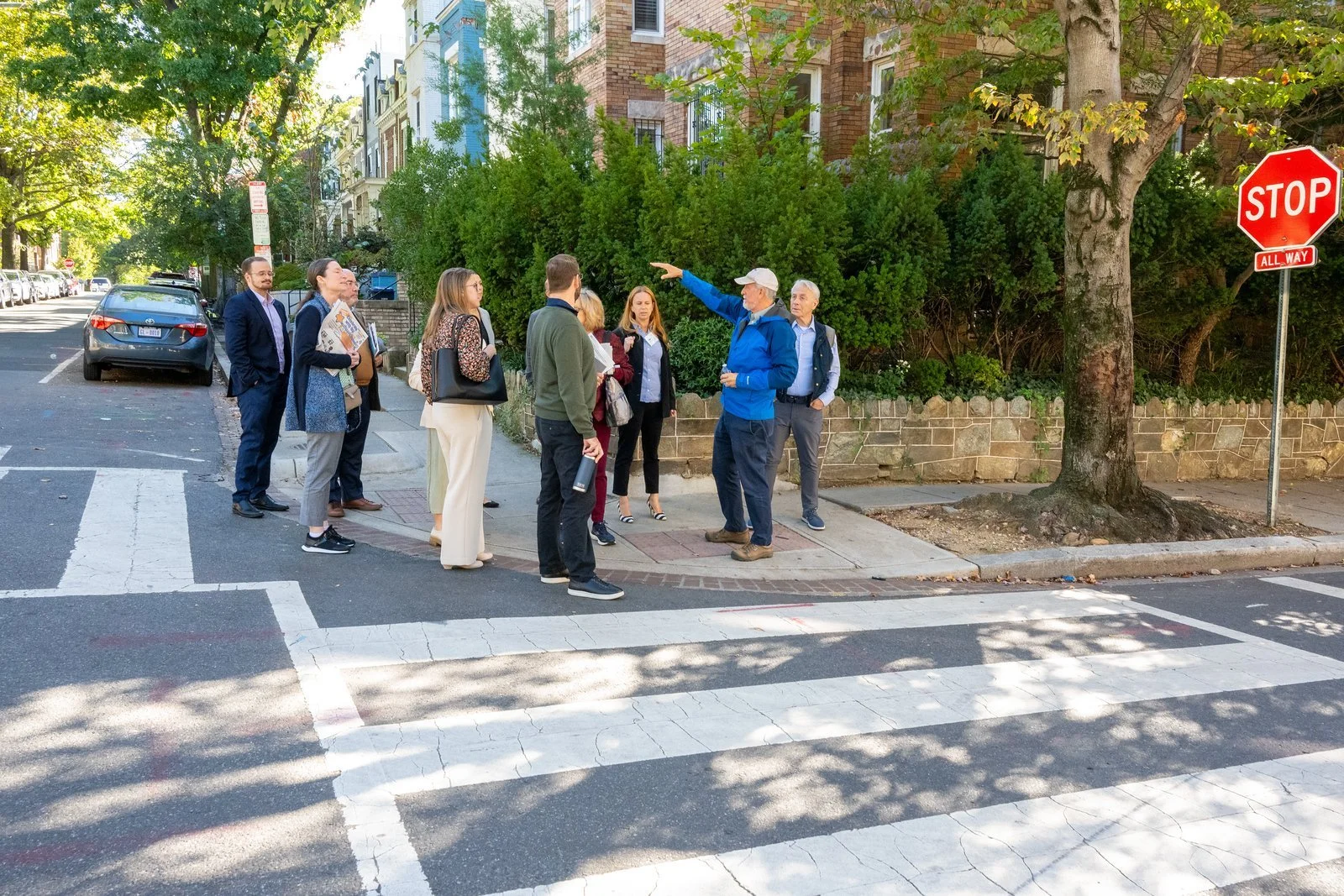
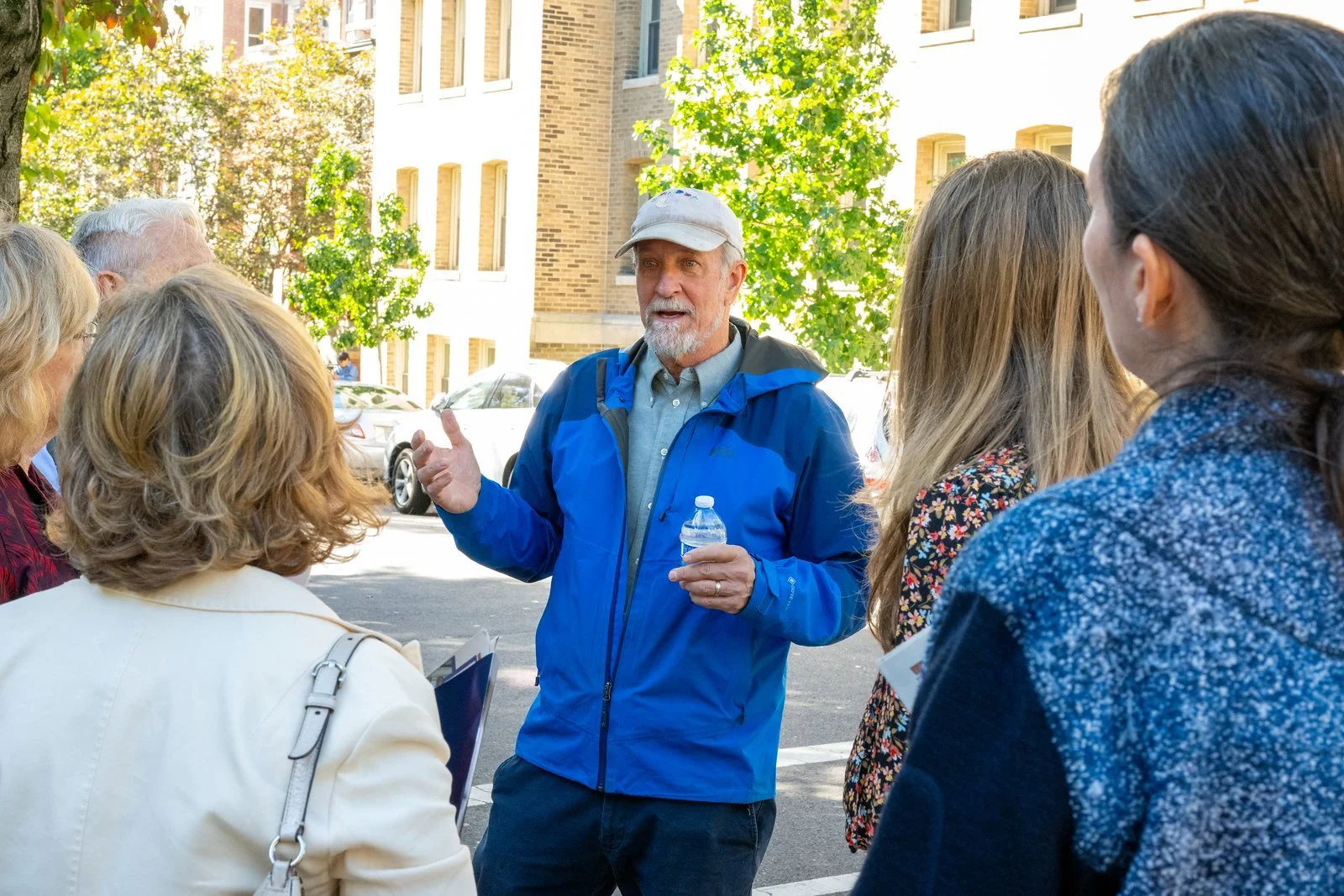
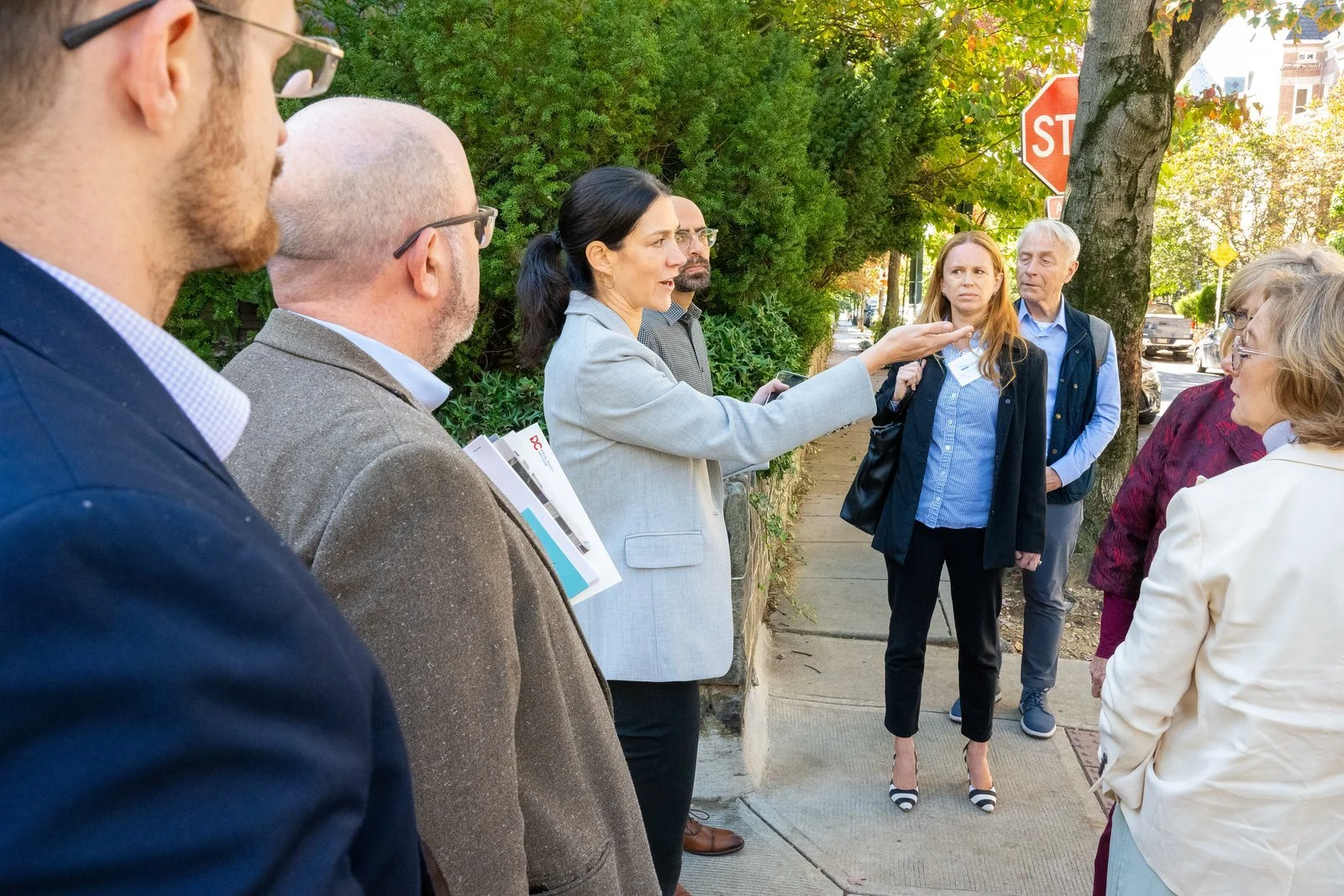
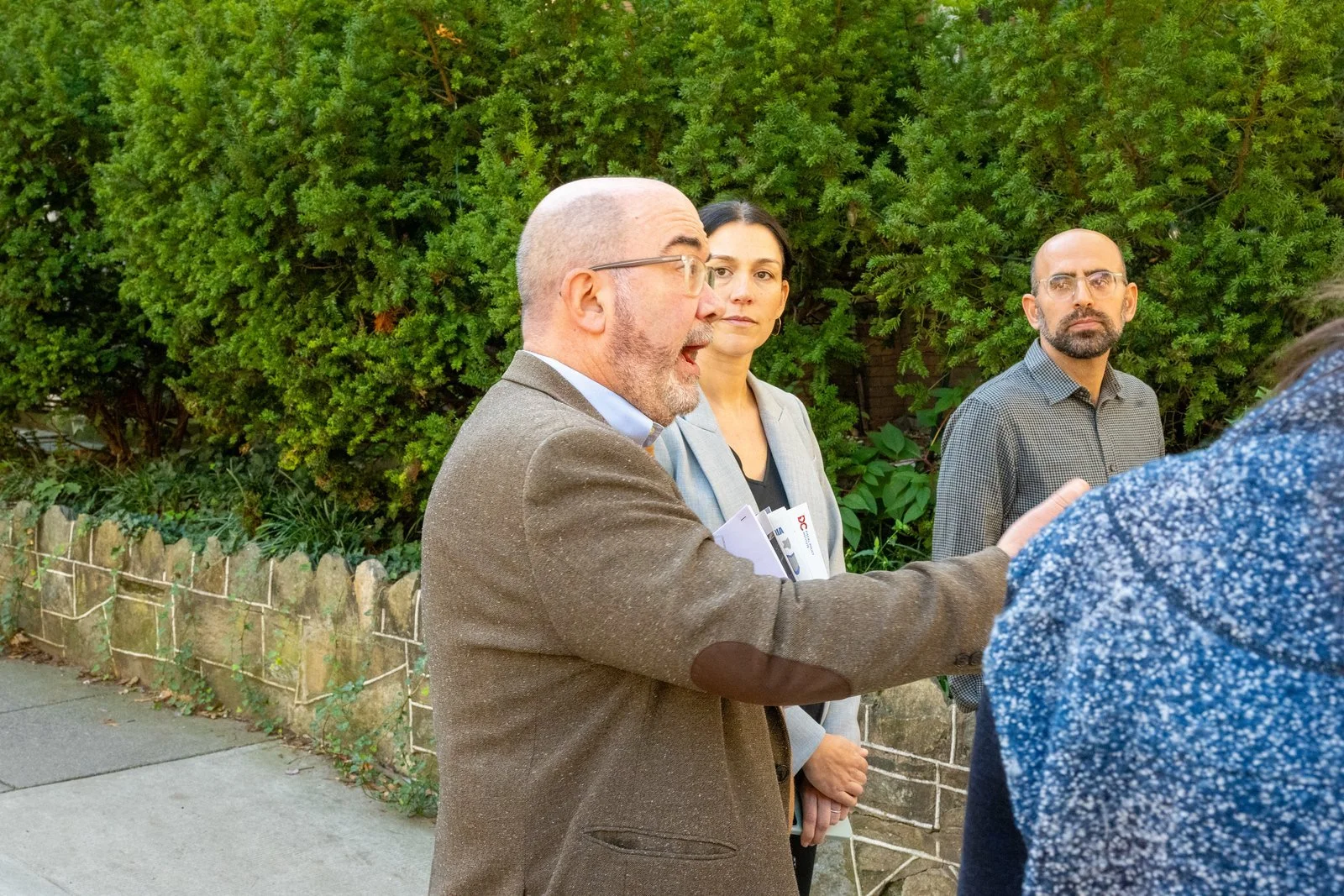
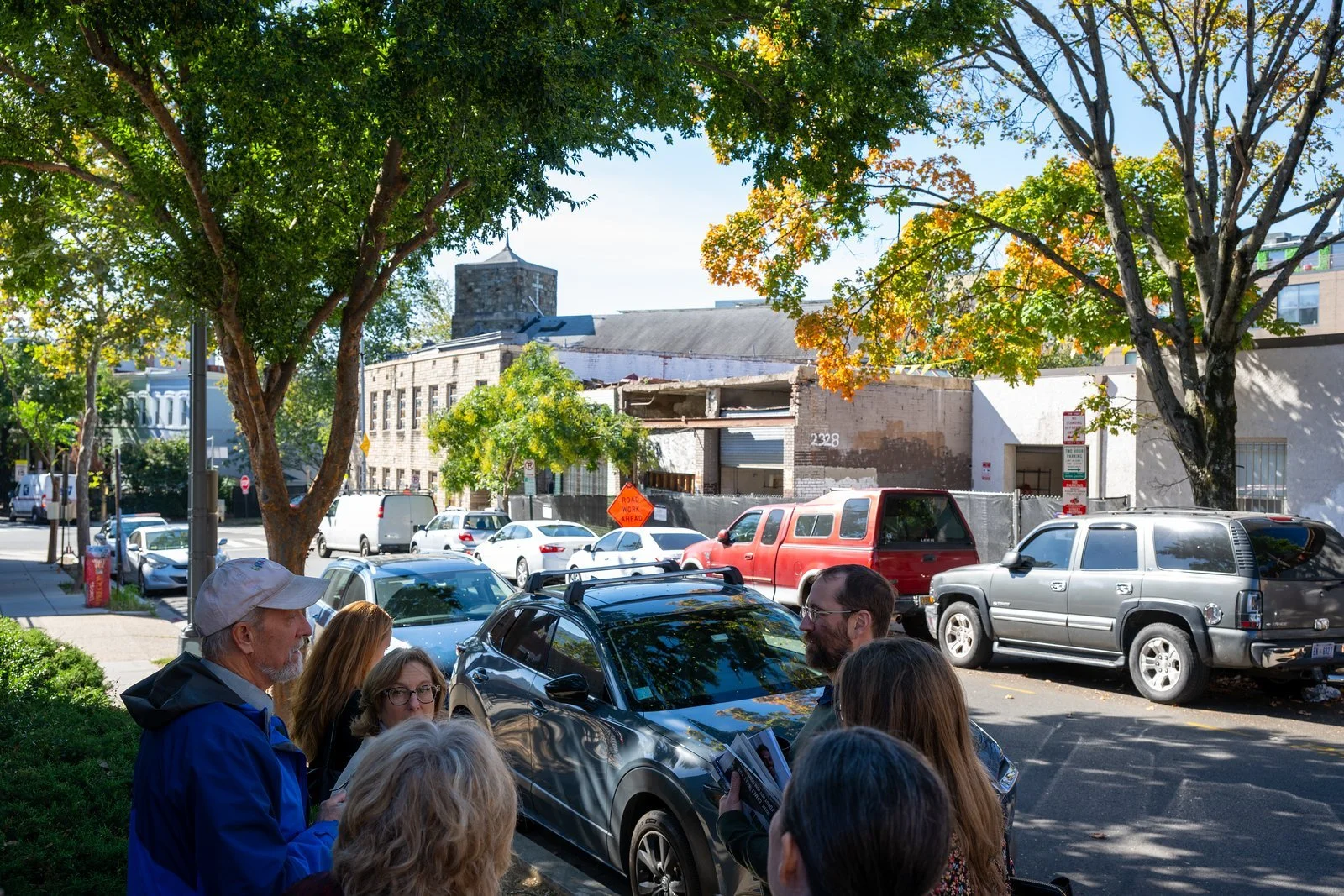
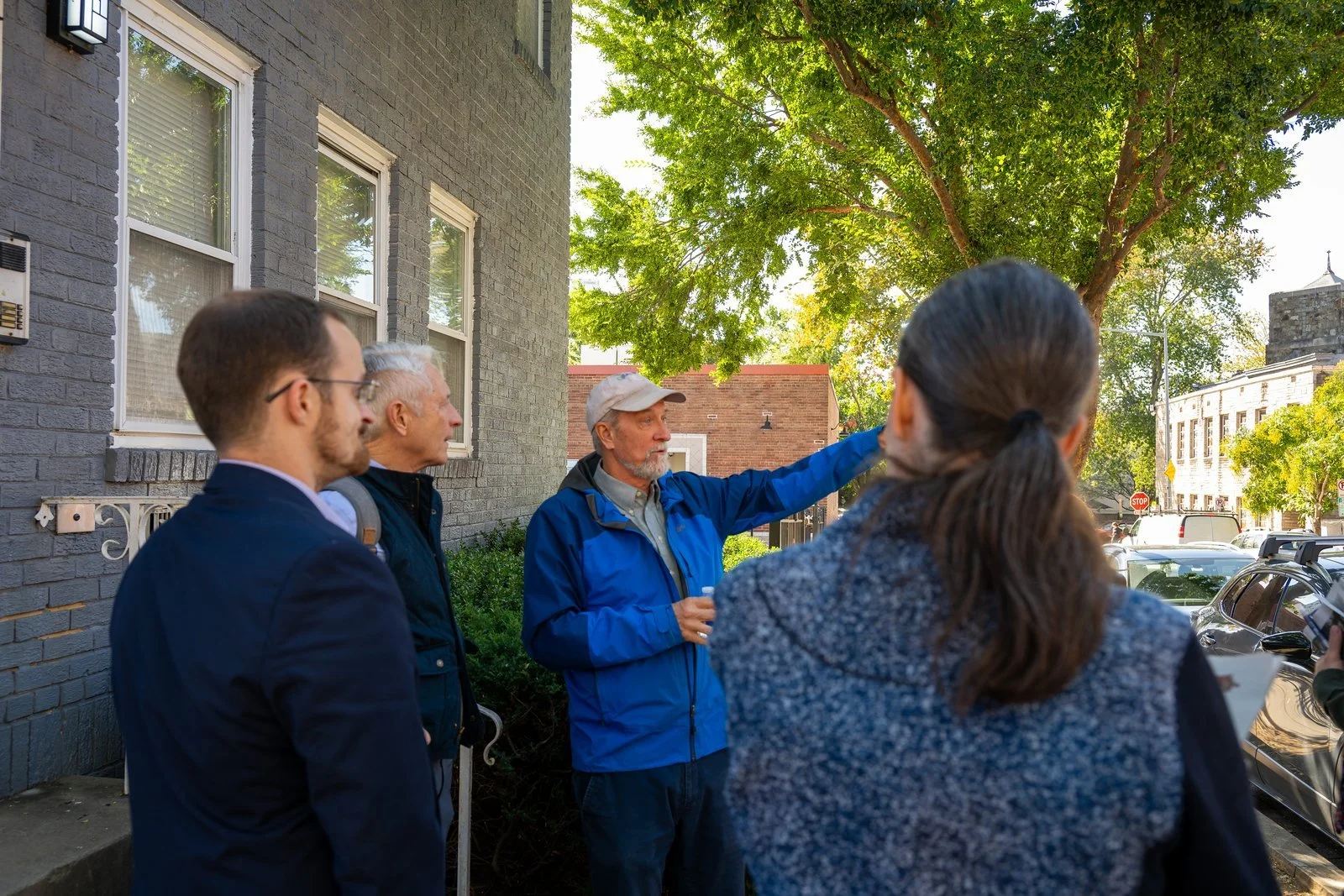
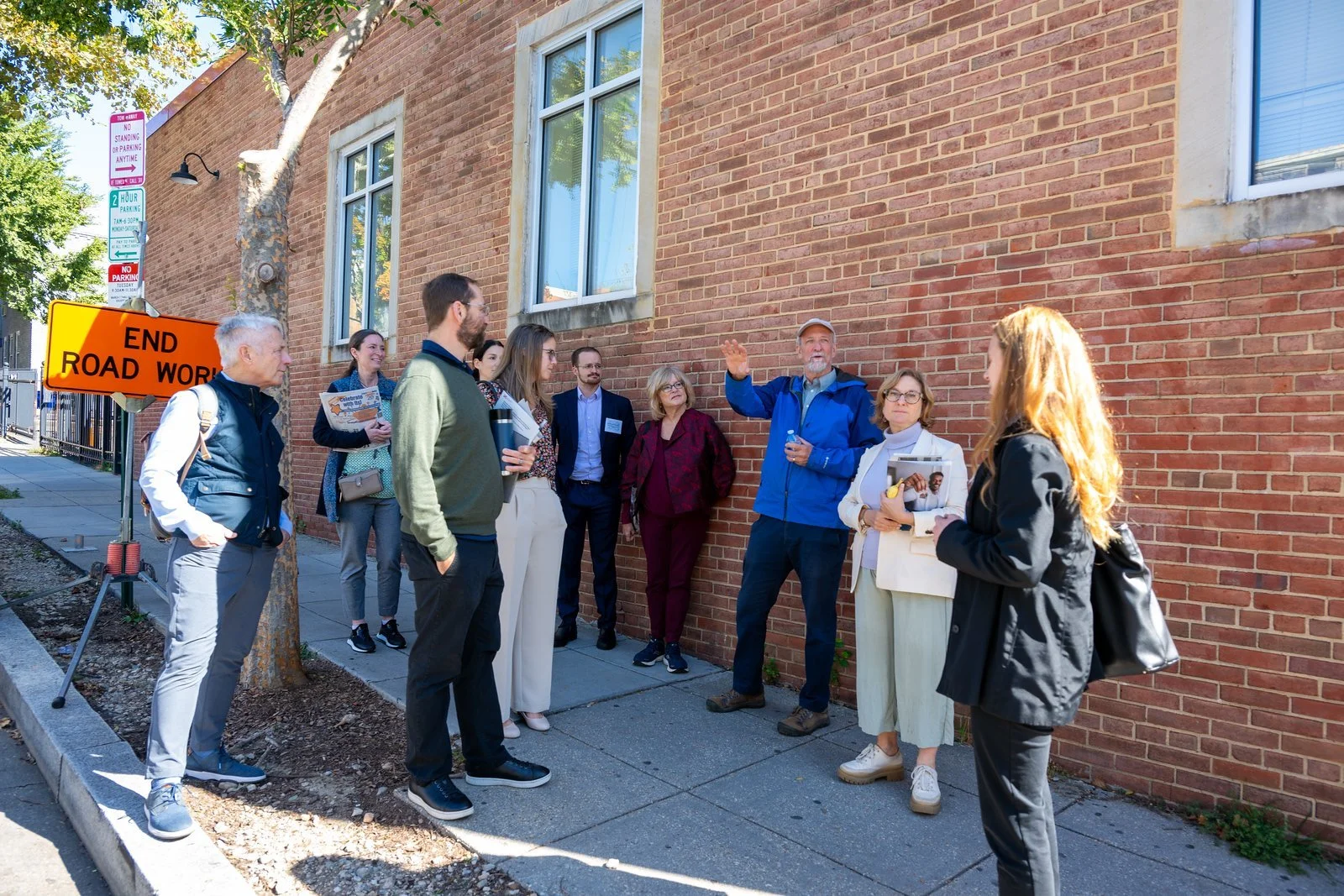
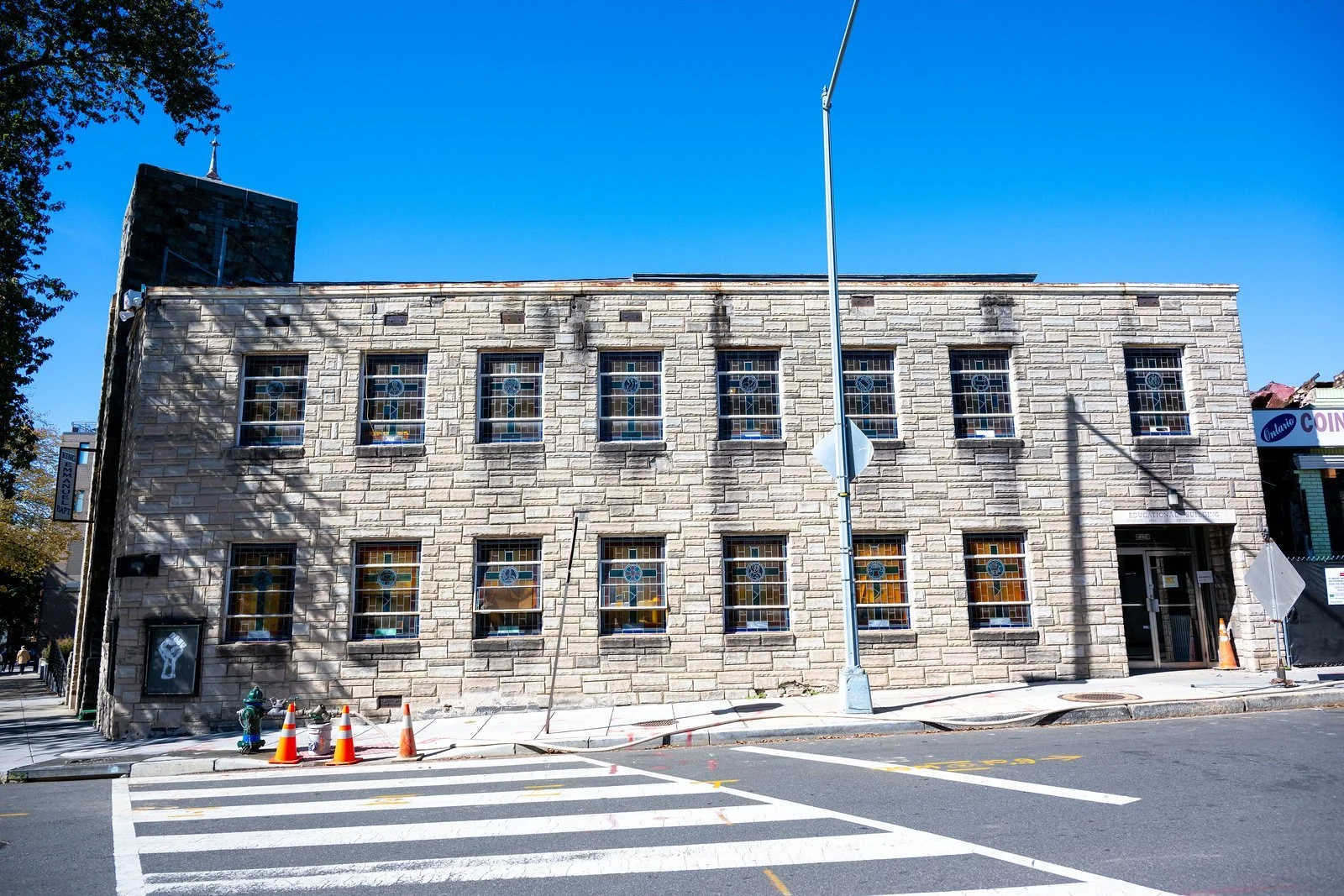
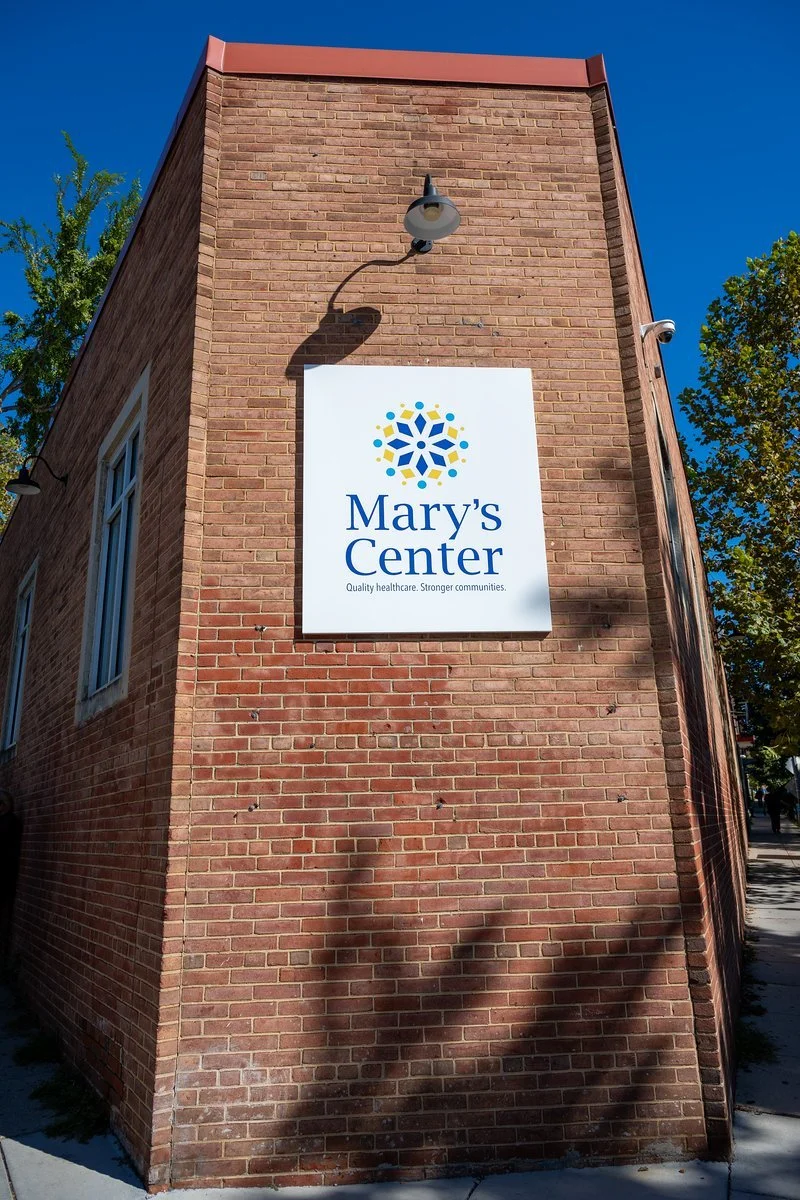
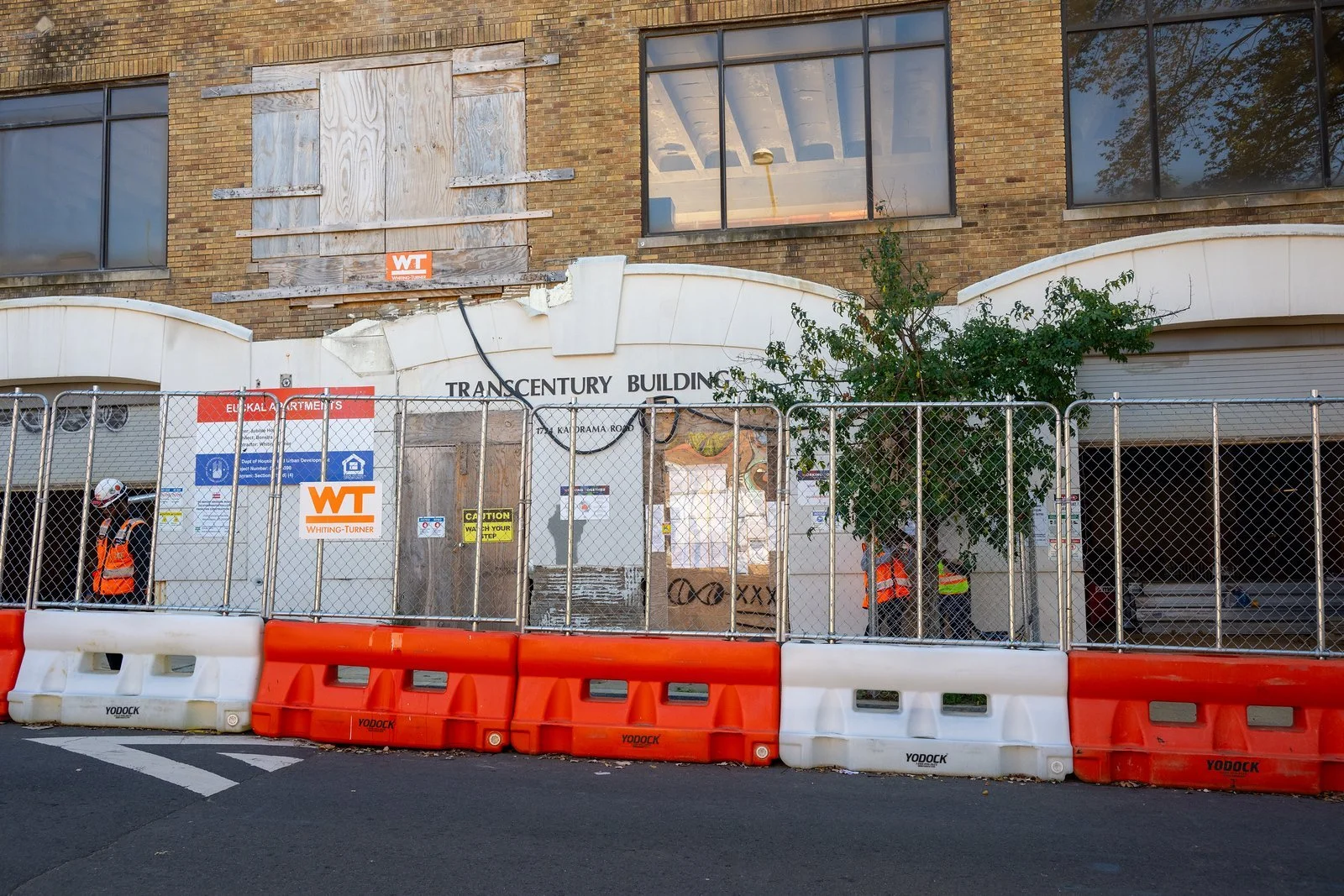
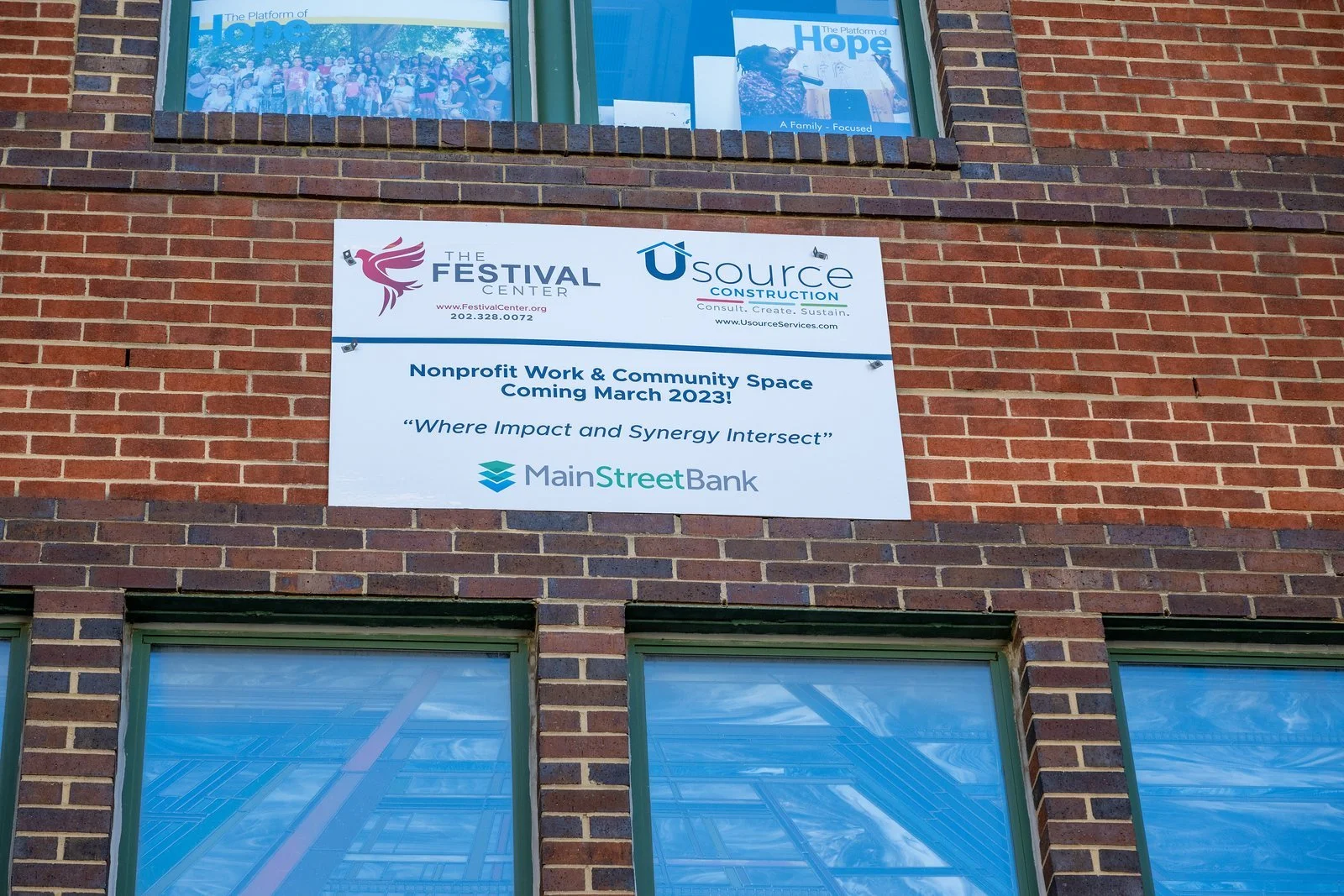
Partners then heard from Jim Knight, CEO of Jubilee Housing, a partner in the Partnership to End Homelessness’ impact investment efforts to build and preserve affordable housing for extremely low-income households.
“A vast percentage of people in our city are paying more in rent than they can afford,” Knight shared. “Investing in affordable housing allows us to alleviate that pressure so they can better provide for their future and their children’s future.”
“The impact of these investments can live on for generations.”
Thanks to partnerships with Jubilee Housing and Enterprise Community Loan Fund, the Partnership has helped create and maintain over 500 new homes affordable to extremely low-income households. Many of those are reserved for populations with specific needs such as seniors or returning citizens.
Martin Mellett, VP of External Affairs at Jubilee Housing leads a walking tour of Columbia Heights, including several service providers and affordable housing projects under development.
Following the panel discussion, attendees joined a walking tour around the neighborhood, which included stops at several affordable housing projects under development. Along the way, participants visited sites of multiple service providers including Mary’s Center, Columbia Road Health Services, Christ House, and the Sitar Arts Center – all within short walking distance of the homes. The hope is that the proximity, combined with new partnerships, will help residents gain access to all the resources they need to succeed.
“This Partnership is truly a partnership,” Olney shared at the event. “Nothing that we do would be possible without all of you working together with us. We thank you for your contributing your time, your expertise, and continued investment towards our shared vision to end homelessness in our city. Together we can build a community where everyone thrives.”
To learn more or to make a contribution to the Partnership to End Homelessness, visit our website where you can also learn more about Impact Investing and see our 2023 Impact Report!
For more information about how you can be involved in the Partnership to End Homelessness, contact Jennifer Olney at [email protected]





